THE BANNER





Dear SFS Community,






Dear SFS Community,
Welcome to another inspiring edition of The Banner. This issue holds a theme that resonates deeply with me and, I believe, with the heart of Seoul Foreign School itself: “Stay Curious!”. Curiosity is one of the most powerful forces in our lives—it shapes how we understand the world, how we grow, and how we connect with others. In a rapidly changing world, curiosity is not just an asset; it is a necessity. It fuels adaptability, resilience, and lifelong learning, all qualities we aim to instill in our students at SFS.
One of my favorite quotes is, “Be curious, not judgmental.” Although often misattributed to Walt Whitman, who happens to be one of my favorite poets, this line captures an essential truth about curiosity. To be curious is to approach the world with openness and a willingness to learn, rather than with preconceived judgments. In many ways, it’s a reminder of our role as educators: to encourage questions over answers, exploration over assumption, and wonder over judgment.
Our responsibility at SFS is to foster curiosity in our students that empowers them to learn independently, to explore new ideas, and to wonder about the world around them. Curiosity should be the foundation upon which they build their knowledge and character. As educators, we have a profound duty to ensure that students leave our school more curious than when they arrived. If they don’t, we have not fully succeeded in our mission.
This issue of The Banner celebrates that very curiosity, which can be seen in every corner of our campus. Whether in the science labs, art studios, library, or playground, our students are asking questions, testing ideas, and seeking answers in ways that are uniquely their own. Their curiosity is the heartbeat of our school, and it is this inquisitive spirit that will shape them into the leaders and learners our world so greatly needs.
Thank you for encouraging curiosity within your homes and for supporting the spirit of wonder that makes SFS such a vibrant community. Together, let us continue to foster a place where curiosity leads the way.
God bless,
Colm Flanagan Head of School

THE BANNER
Seoul Foreign School Magazine, Fall 2024
Team
Published by:
Seoul Foreign School Strategic Communications Department
Editor-in-chief: Cyrielle Bazin
Design and Photography: Juhie Suh
Editors: AhYoung Chi, Sumin Park
A special thank you to everyone who contributed to this issue
Address
Seoul Foreign School 39 Yeonhui-ro 22-gil Yeonhui-dong Seodaemun-gu Seoul, South Korea, 03723 www.seoulforeign.org
Unless otherwise noted, articles may be reprinted without permission - as long as they are not edited or revised - with appropriate credit given to “The Banner, the magazine for Seoul Foreign School.”
*All efforts have been made to check details and consistency. Please contact communications@ seoulforeign.org with any questions.
Cover: Pre-K2 students got hands-on with pumpkin fun at theirPumpkin Festival!

Dear SFS Community,
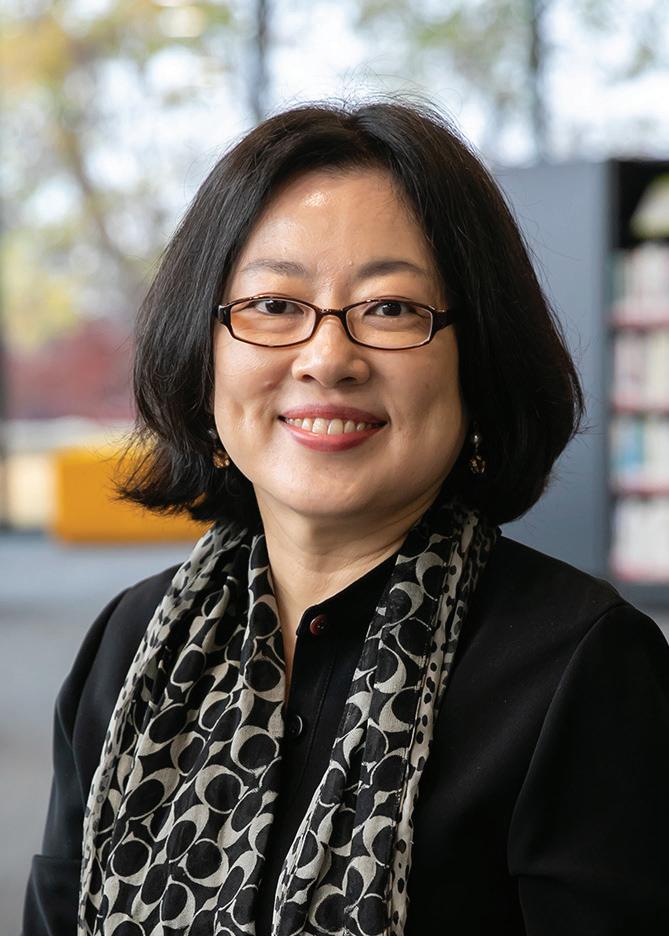
I hope you were as excited as I was at the news of South Korean writer Han Kang’s Nobel win. The Nobel Committee described Han Kang’s works as characterized by “intense poetic prose that confronts historical traumas and exposes the fragility of human life.” At SFS, we’ve been teaching Han Kang’s works at the IB DP level for the last several years. As part of SFS’s commitment to showcasing local authors, high school students in the English Literature course read Human Acts. This novel about the 1980 Gwangju Uprising is provocative, powerful, and moves us to see the world in a new light.
Han Kang’s Nobel win lifted sales in Korea not only of her books, but of literature in general. I hope that her Nobel will have a lasting impact on young people growing up in Korea, including our SFS students, and motivate them to become writers. As an English Literature professor, I would love to see a next generation of Han Kangs writing beautiful and powerful literature.
How can our children become the next great writers of their generation? They need to play and to think creatively, and to make original observations about the world around them. They need to nurture the courage to say and write things that have not been written before. And, most importantly, children need to be curious. They need to be curious about themselves, about others, and about the world we live in. As Han Kang said in a 2023 interview with the French newspaper Le Monde, “I’ve always been curious about human nature, ever since I was a child.”
Best wishes for a happy, healthy, and curious holiday season.
Hyungji Park ‘85 Chair of the Board of Governors

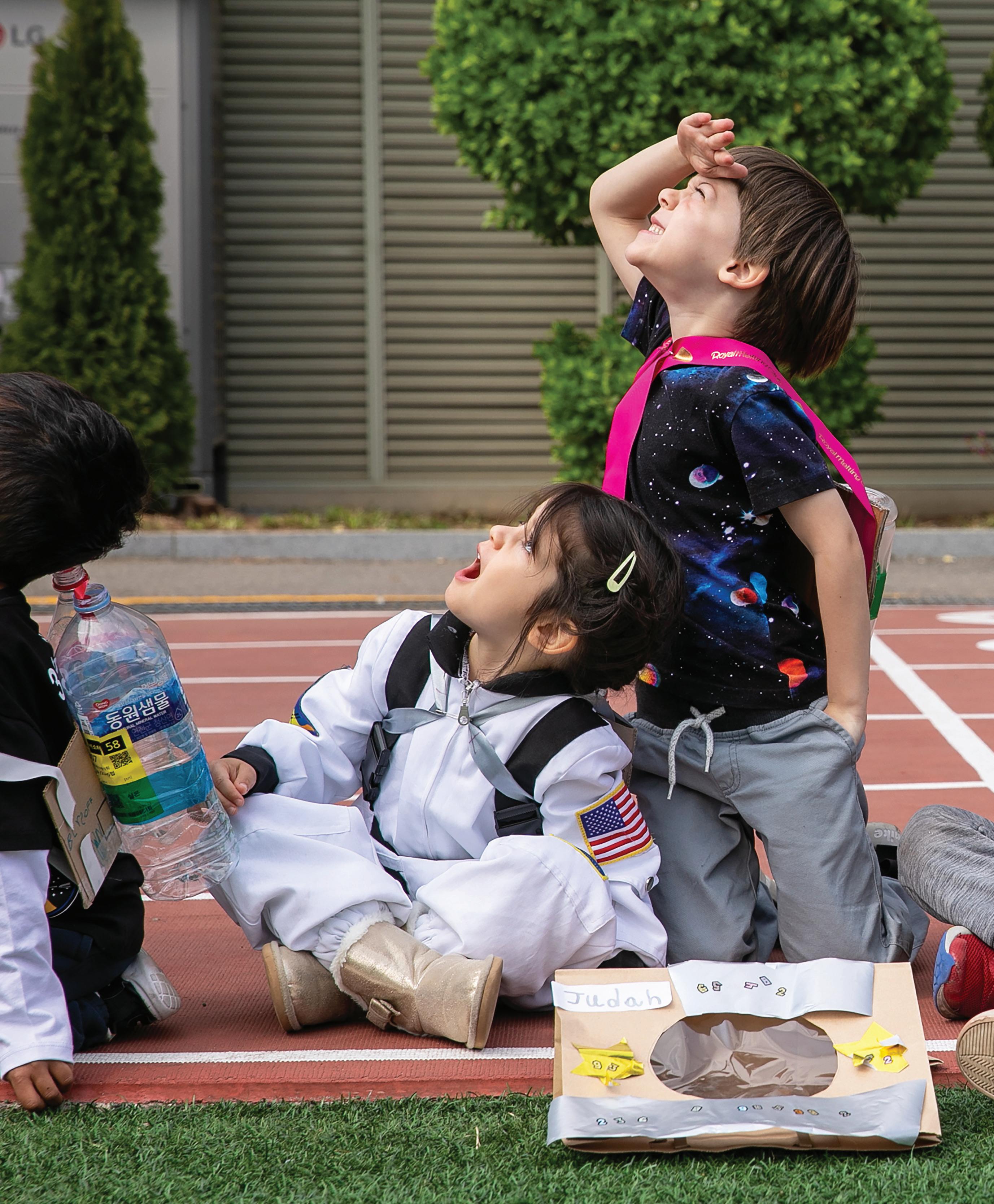

By Katy Freeman British School Foundation
"Capturing Curiosity empowers children to explore the world with confidence, giving them ownership of their learning journey while fostering curiosity, creativity, and critical thinking."
One of the key themes of our Early Years curricula here at SFS (IEYC and PYP) is Capturing Curiosity, which focuses on nurturing children's natural curiosity to explore and understand the world around them. This approach emphasizes inquiry-based learning, where children are encouraged to ask questions, investigate, and solve problems through hands-on activities and experiences.
By capturing children’s curiosity, we foster child-led learning, and give them the agency to share their past experiences and current interests. This allows teachers to identify prior learning and understand what the children want to explore further. We can then build upon these interests, guiding planning, provisions, and practices that connect with children’s new learning experiences. For us, Capturing Curiosity means…
Children are immersed in an engaging environment where they are encouraged to explore their surroundings, use their senses, and interact with different materials. This naturally stimulates their desire to learn through discovery.
Teachers pose open-ended questions and present scenarios that invite children to think critically and arrive at their own answers, strengthening their problem-solving skills while fostering creativity and independent thinking.
Play is essential for learning, and within the theme of Capturing Curiosity, both structured and unstructured play are incorporated into the curriculum. This helps children learn through experimentation, exploration, and imagination.
Children are introduced to real-world situations where they can apply their curiosity, helping them make meaningful connections between their experiences and the wider world. This approach fosters a love for lifelong learning.
Capturing Curiosity supports children’s holistic development, addressing their emotional, social, physical, and cognitive needs. Activities are designed to encourage curiosity across all areas of learning and development.
This approach allows children to have a voice in guiding their own learning and inquiry, shaping the planning, provision, and teaching practices in a way that is responsive to their individual interests and needs. Capturing Curiosity is at the heart of everything we do, making children active participants in their learning process and creating meaningful, inquiry-based experiences relevant to their development.
In essence, Capturing Curiosity empowers children to explore the world with confidence, giving them ownership of their learning journey while fostering curiosity, creativity, and critical thinking.



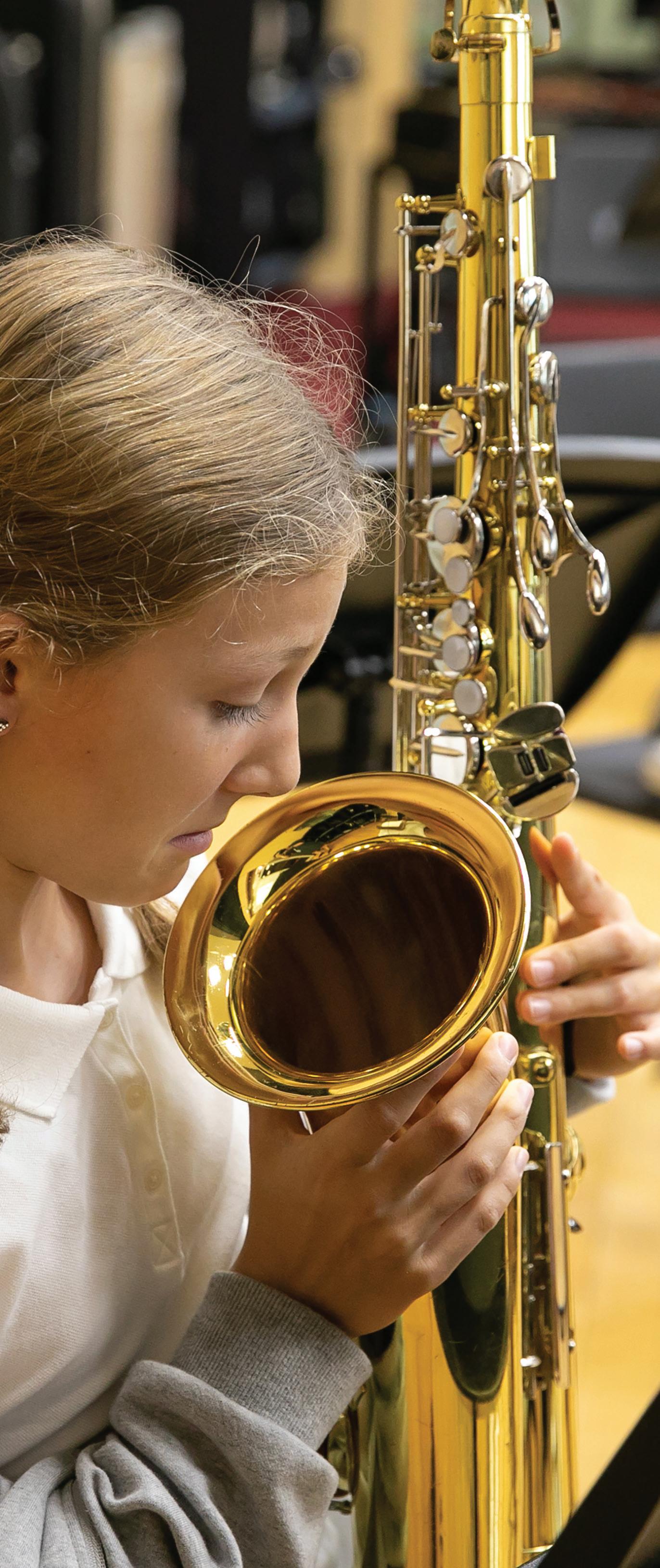
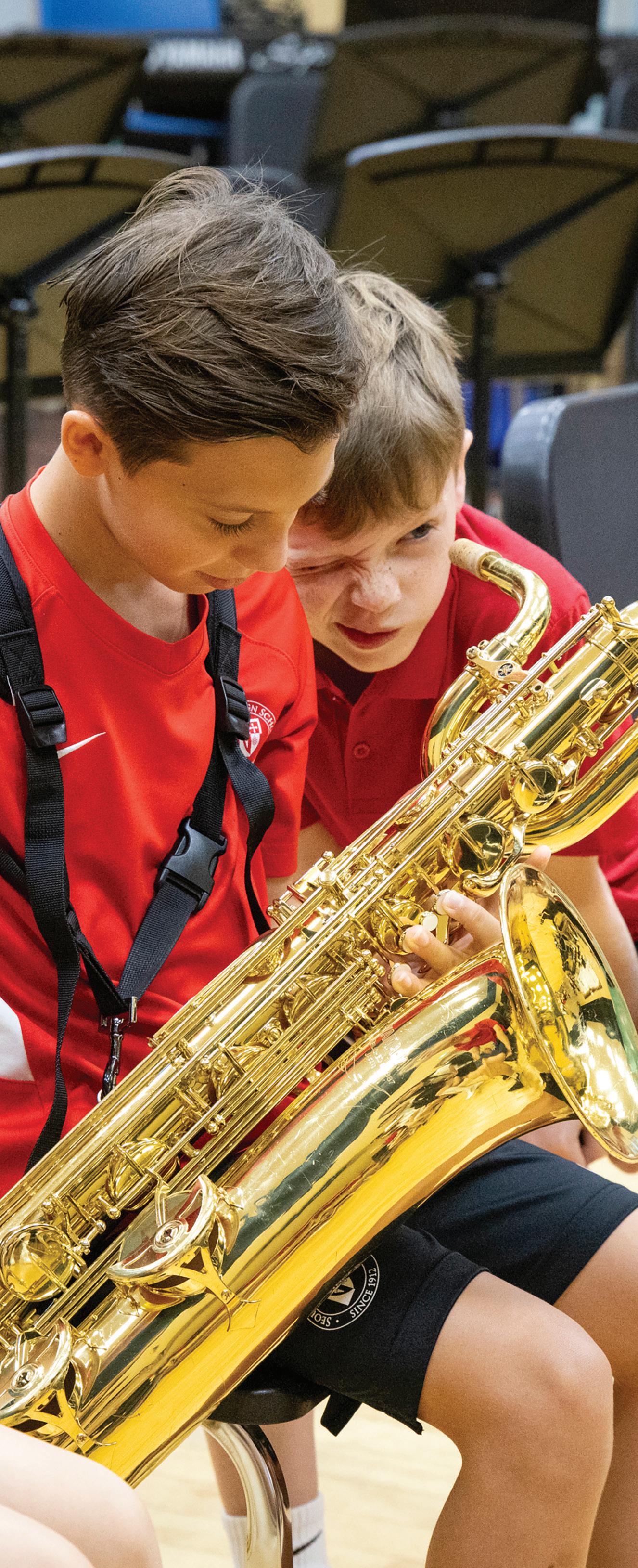
By Sophie Holbrook
Band Director
"When introduced to something new, there is often a spark that fuels future ideas. It is this initial spark that I see in Beginner Band when introducing the 5th graders to instruments and ensemble music."
Teaching Grade 5 Beginner Band is one of my absolute favorite times of the week. As a band director who teaches several ranges and levels of band instruction, there’s something special about beginners. I love the pure and raw energy that they bring to the class; it is often a controlled form of chaos, but it all comes from a place of genuine excitement. The students have so many questions, a wide range of initial sounds that they create, and such unabashed joy. Every lesson demonstrates leaps and bounds of growth, both in their ability to perform on their instrument and in their understanding of what being in an ensemble means. What I’ve noticed over the years is that the curiosity shown by the youngest members of the band program is what drives their energy and enthusiasm. That is what motivates their practice and incentive to put in the hard work to improve.
Like anything, the desire to learn comes from a natural curiosity to want to know more. Throughout time, this simple idea of curiosity has been the genesis for many of the greatest inventions and discoveries. When introduced to something new, there is often a spark that fuels future ideas. It is this initial spark that I see in Beginner Band when introducing the 5th graders to instruments and ensemble music. There are 14 instruments from which to choose, some of them with funny names and all of them with interesting sounds. Some are shiny, some are wooden, some are huge while others are small. The students are introduced to pitch, range, and timbre within the woodwind, brass, and percussion families. This is a whole new world of music that the students embark upon in their first lesson of the year. From there, students visit the ‘instrument petting zoo’ where they get to touch and hold all of the instrument options. This spurs on even more questions – Why is the tuba so heavy but feels light to play? Why is the flute so small but feels heavy to play? Why is the saxophone part of the woodwind family but it’s actually made out
of brass? Why is it called bass clarinet but baritone saxophone… is there a bass saxophone and a baritone clarinet? How does a trombone change notes if they only have a slide? And on and on and on. Our one hour class could easily turn into many hours of exploration and inquiry. Alas, they take their questions home and start to think about which instrument is the right match for them to play for the duration of the school year.
Once the students are appointed their instrument, they attend Beginner Band Day which is always a highlight of the year. Students receive their instrument, have lessons with instrumental experts on how to play the first five notes, then come together as a full 88-member band to form the annual Grade 5 Beginner Band. After some entertaining first sounds, I am always amazed that in a few hours time, the students are playing several songs and even perform a mini-concert for the parent community as the culmination of their Beginner Band Day. Every year I have doubts, yet every year it works. Then, on goes the school year and the students practice at home, some more diligently than others, and the 5th graders begin finding their voice in the band. They perform two concerts, Christmas and Spring, and at the end of 5th grade they make a choice on what music class to take the following year. Many continue in the band program while others move to different music subject areas or types of ensembles. No matter what they choose for the following year, I am always thankful for getting to be their teacher during 5th grade. It is such a formative time of life and I consider myself privileged to teach them for a snippet of their educational journey. The students who continue to stay with the band program, however, remain in my classes for many years to come. It is those students whom I have asked to contribute to this article. What made them stick with it through middle and high school? At what point did their initial curiosity turn into a passion?
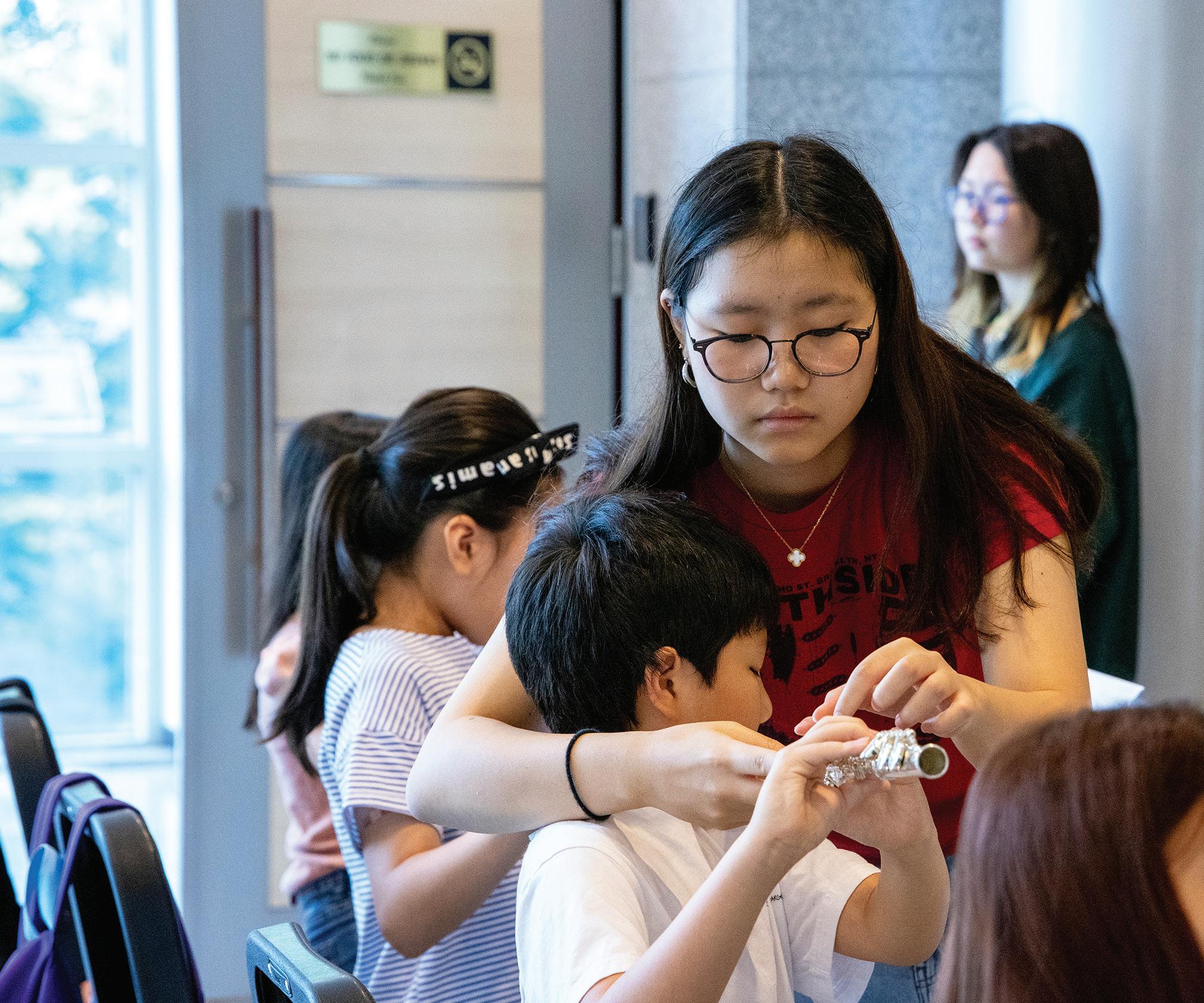
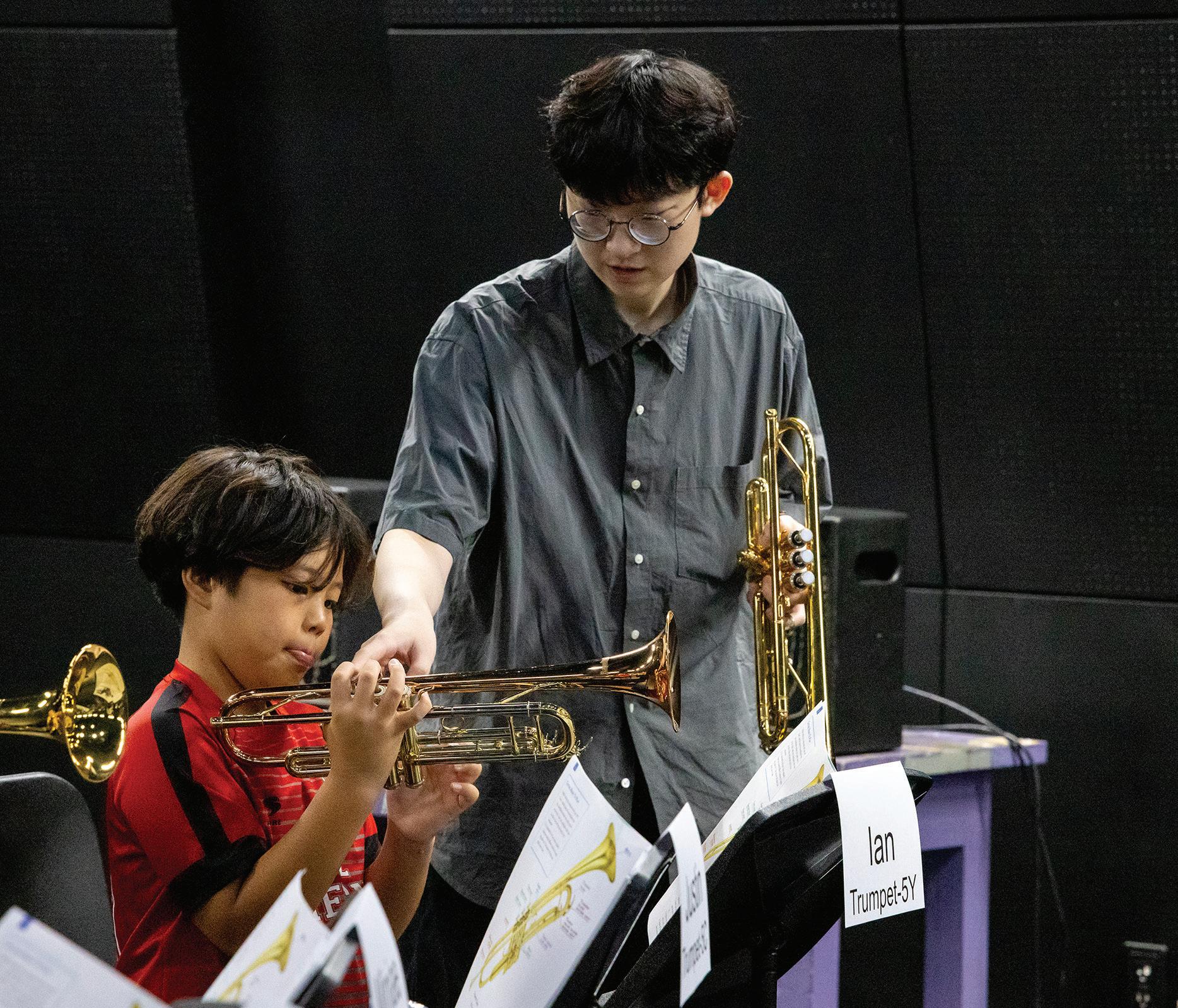
This is my 7th year teaching at SFS and my first group of 5th graders is now in their junior year of high school. We have been through a lot together. With several of the high schoolers and my wonderful colleague Josh Yaniw, we have traveled to India, Japan, and Hong Kong for AMIS and APAC band festivals, performed countless school concerts together, gone to local music festivals, played Christmas carols in the middle school atrium, worn band masks to get through COVID-19, participated in the pit orchestra for the high school musical, rocked out in jazz band, and sometimes just hung out in the band room to chat. I myself was curious to find out from the current high schoolers who did Beginner Band with me - what kept you in the band program for all these years? The responses I received filled nearly 10 pages of single space text written almost as testimonials to why they’re involved in the band program. I couldn’t help but smile and feel immensely proud as I read their words, imagining their 5th grade childish faces, even though the words were clearly coming from the mature high schoolers they now are. They, along with their peers who joined Band in the following years, as well as the hundreds of younger students in the program, are at the very heart of my profession. Seeing a number of high school students come back each year to Beginner Band Day to help the 5th graders who play their same instrument comes full circle. Being with the students on their journey of curiosity, and perhaps even helping them find a passion, is what guides my lessons every day.

Curiosity was one of the main aspects that motivated me to practice and engage with the band program. With my growing curiosity, I sought ways to answer questions [about my instrument] on my own, which helped me significantly enhance my skills and performance. Band was an especially exciting class because I could visibly see and hear the improvement over time. The tangibility of such growth inspired me to continue pursuing and extending my experience with my instrument.
- Yune Hur, Grade 10, Horn
Through time, I think my curiosity has shifted from a single instrument to the entire band. As you get more experience in one instrument, you start to listen for the other players in the band. Picking out certain sections and carefully listening for their own unique sounds, you start to hear every instrument when they all play together.
- Schaeffer Won, Grade 10, Percussion
I believe that music enriches my life in ways that grades alone cannot. Every time I walk into band class, I often feel tired and weighed down by the pressures of schoolwork, but by the time I leave, I feel rejuvenated and energized. There's something very special in music that really cannot be explained.
- Justin Kang, Grade 11, Trumpet
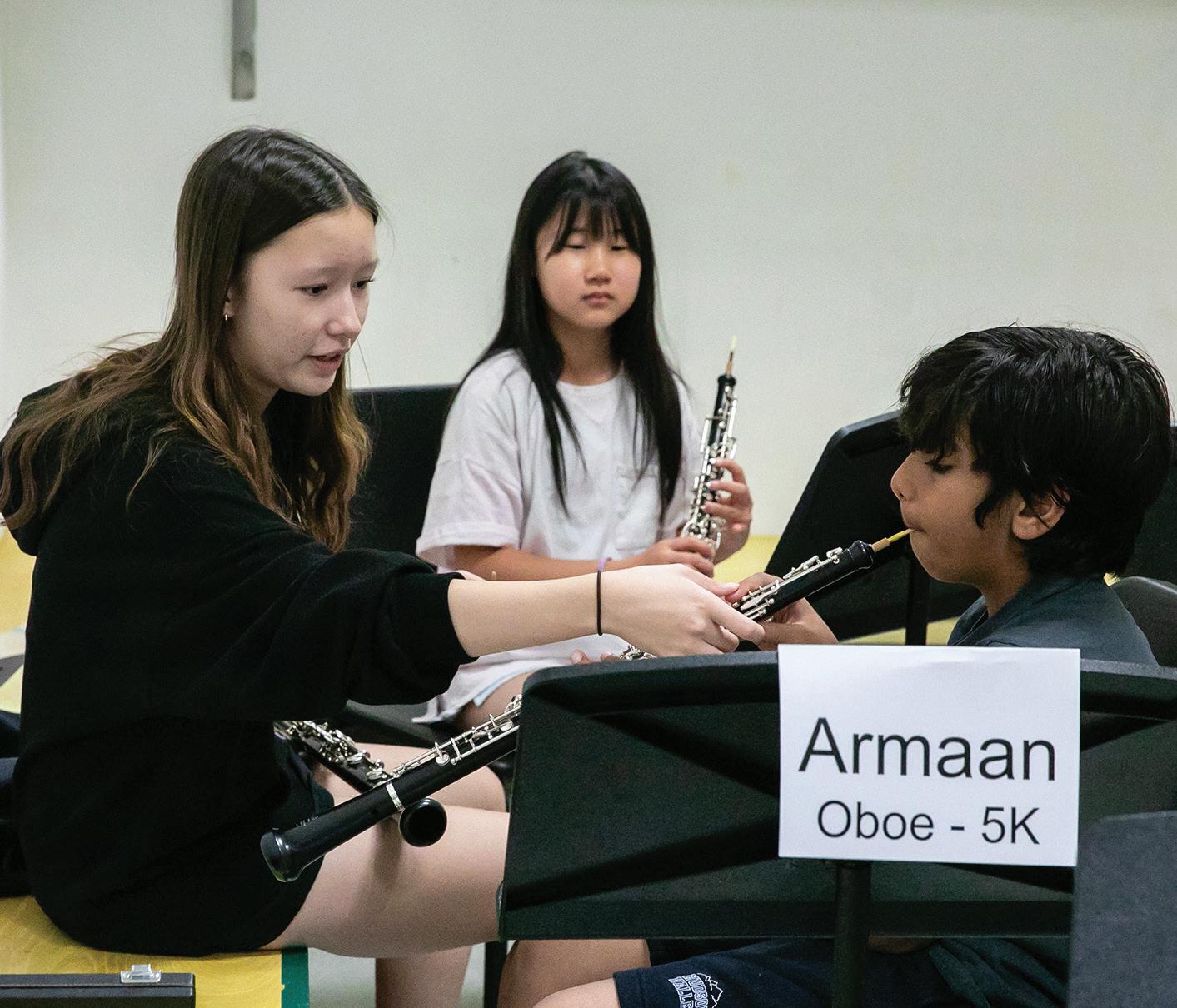


What kept pushing me to play my oboe until high school was the curiosity it SPARKED, not the curiosity I originally HAD. Throughout the year of band class in fifth grade, there were a series of questions that kept following one after another, driving me forward to find the answer. What does an oboe sound like? How do I play this note on the oboe? How do I take care of the reed? How do I control my embouchure? Band was never just an opportunity to play music; it was a place where I learned to embrace curiosity!
- Chloe Jun, Grade 10, Oboe
When we started Band, my initial curiosity as a ten-year-old mostly revolved around my euphonium and how it worked. But as years went by, I was more interested in blending my sounds with others more pleasantly rather than my individual playing. Knowing that an ensemble can only be as good as its worst member, I felt pressed to work harder to raise the standards instead of lowering the quality of our music. Every time I enter L301, I feel privileged to enjoy a class full of fellow students who want to be there, playing music. With each new repertoire, I find something new to learn by listening to the music played by a professional band and sight-reading the sheet. Then, understanding what the composer intended propels me to improve my technical skills to convey the original intent. I always try to hold my attempts to my highest standards, so hearing sounds from my euphonium that I don't like motivates me to practice
Eugenie Wang, Grade 10, Euphonium
When I first started playing the flute, I thought I was going to lose my mind. The tricky fingerings; I've done it before, it was quite similar to the piano. But embouchure?? My lips and tongue felt like they were bruised every time I finished a lesson with my teacher. It was difficult. And I didn't like it. I'm a very goal-oriented person, and so when I dislike something, I will be determined to change it. That determination flared into passion; I started having genuine fun playing the flute. I think that once you dedicate yourself fully to something, it's incredibly difficult to let go. And plus why would you quit something you love when you can just continue getting better?
- Jane Chang, Grade 10, Flute
[In Grade 5], the trumpet immediately caught my attention. As soon as I picked it up during the trial day in the ES classroom, the trumpet was the only instrument that fell perfectly in my hands - like it was meant to be there. Many of my classmates struggled to produce a sound, but when it was my turn I was able to get a relatively clear buzz right away. At that young age, I had a fairly competitive spirit. Seeing that I could do something others found challenging sparked my determination. I thought to myself, "This is it - this is the instrument for me." I was filled with curiosity about what I'd be able to play in the future. The possibilities seemed endless, and I couldn't wait to start my musical journey with the trumpet.
- Olivia Kim, Grade 11, Trumpet
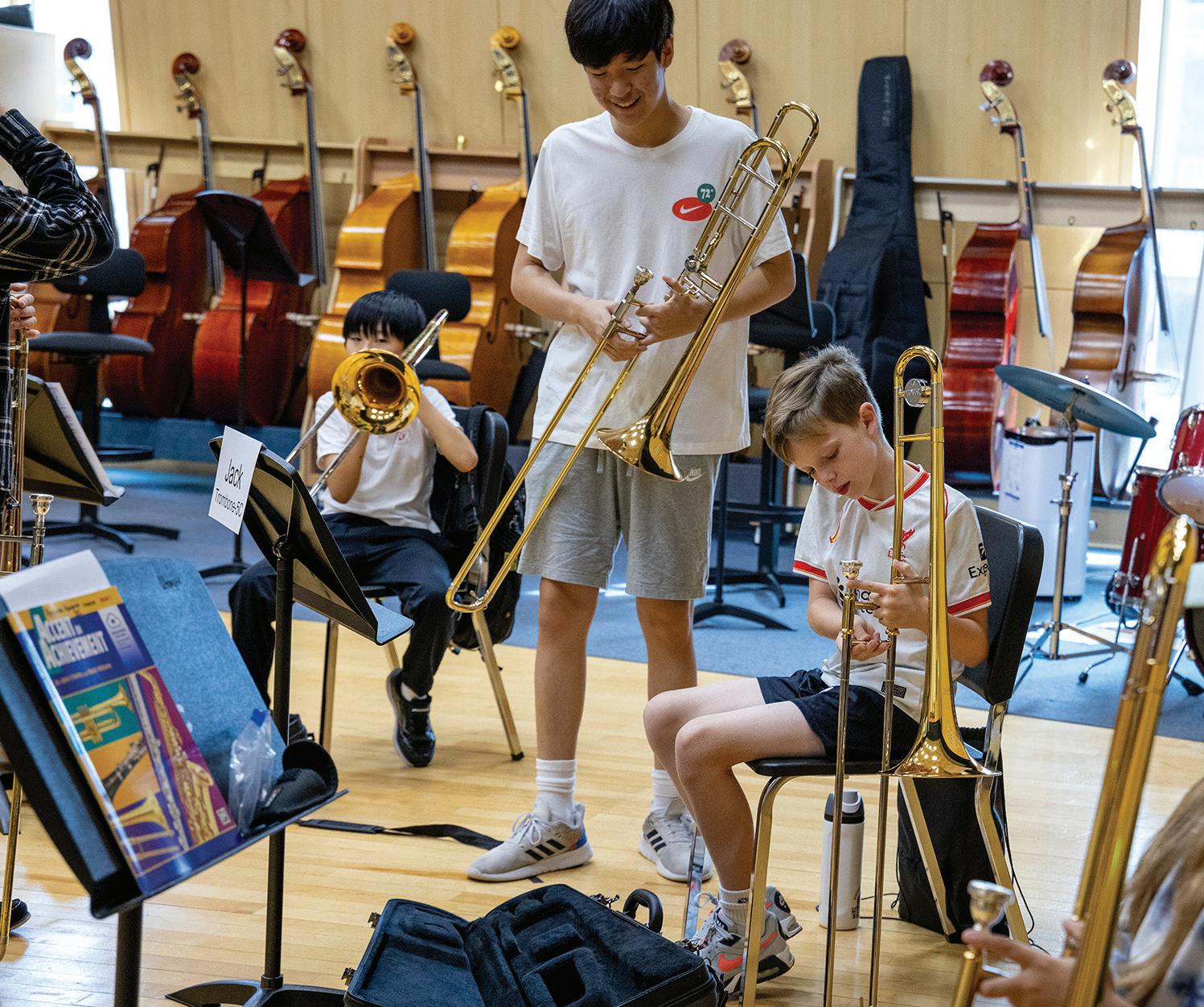
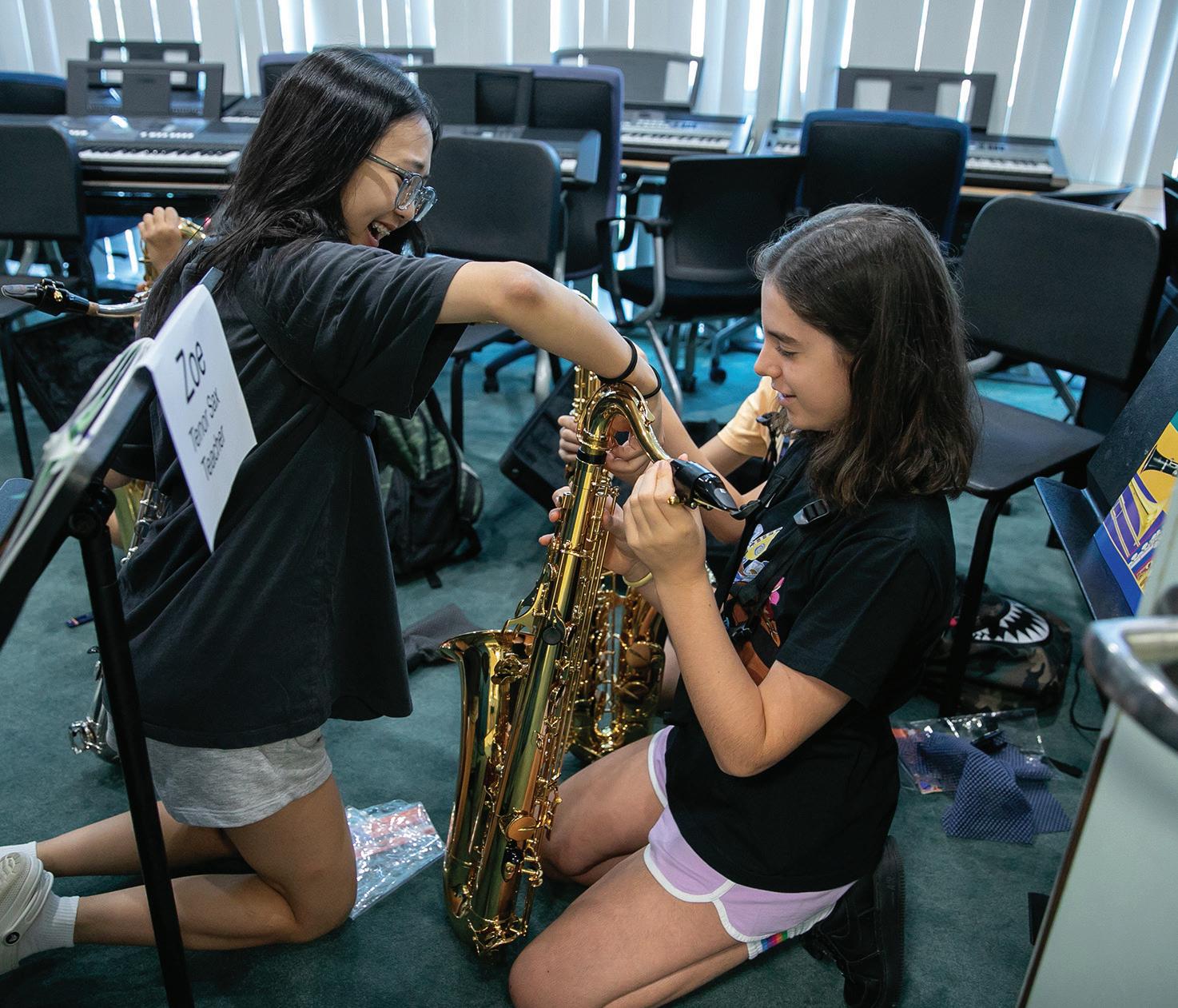

I was most curious about all the opportunities I would be able to get in middle and high school, and now, I would say I'm less curious about those experiences, and more curious how I can improve myself to match the band, like how I can tune better, how I can blend lower notes, or how I can transition from low to high notes with the rest of the flutes. I'm also learning the piccolo again, so I'm also pretty curious on how I can improve that! I was definitely determined to learn as much as I possibly could about the flute so I could fully understand what it meant to play the flute. Seeing other people around me improve and learn new things also pushed me to work harder and practice more. I want to say that people should pick an instrument that they love, and from there, their efforts should come naturally. Treasuring my instrument is what has pushed my efforts this far, and if you love music like I do, I think everything should come naturally to you.
- Jiyu Lee, Grade 10, Flute
I really wanted to do the oboe because it was such a special, yet challenging instrument. And I loved a challenge. Learning the oboe has by far been the most rewarding experience. In all honesty, the thought of me teaching during beginner band day was sort of like a light in the tunnel for me in the first few years of learning the oboe. I admired my high school beginner band teachers so much- I thought they were the coolest people
- Leah Kim Andersen, Grade
10, Oboe
Curiosity can only get you so far, and it is up to you to immerse yourself in the music to reach for the stars. I believe every note has a story behind it. Whether it's to shout, hide, or support others, they have a story. My inspiration to continue comes from the determination to strive to tell that story as close as possible. That accomplished feeling of finally getting to hear the music and what each note is saying is like no other. The beautiful thing about all of this is that music is endless, with each playing session unfolding the story of music to a new level. Ultimately, I will never get bored of band for the very reason that I get to be the storyteller of such intricate and magnificent messages. At the end of the day, when the music is finally finished, it's the people next to you that matter. I've personally met so many amazing people in my time as a Band member, getting to know so many new perspectives. I strongly urge everyone to take part in music outside of Band, whether it'd be through outside activities (e.g. Jazz Band) participating in events, or playing with friends in your free time. The habits people hold as musicians are incredible, and surrounding yourself with other individuals who strive to create music is the prerequisite to success and happiness. Stay curious!
- Jayden Lee, Grade

By Rebecca Emrich High School Science Teacher
& Mara Hakim Elementary School Teacher-Librarian

Taking a step back from the classroom to explore personal passions and discover new perspectives is a bold decision. In this two-part article, teachers Rebecca Emrich and Mara Hakim share their inspiring sabbatical experiences. Rebecca's year was filled with family connection, personal growth, and unexpected twists, while Mara embraced adventure on the Mediterranean, learning to navigate both boats and self-discovery. Their journeys remind us that curiosity can lead to unexpected, life-changing experiences.

Having now settled into the school year, I can say that my leave of absence was meaningful. Thankfully, it wasn’t just what I had planned but rather, I was where God wanted me to be. “ ”
By Rebecca Emrich
What would you do if you had a year off of work or school? This is one of the main questions I pondered as I walked the Camino de Santiago in the summer of 2022.
During the 800 km journey from the south of France to the city of Santiago in Spain, I prayed about the urge I had to take a leave of absence. After teaching at SFS for 12 years, I was growing weary and in need of fresh focus. Initially, I had come to SFS intending to work for two school years (2010 - 2012) and then return to America, but once I arrived, it was too great of a school to leave and all of a sudden I had just finished my 12th year. In the time I was here, my parents aged and my nieces and nephews grew up and I had missed much of it. During my time as a pilgrim, I decided to ask for a year off and to focus on the following goals:
• Be with each of my nieces and nephews on their birthdays
• Take my parents on a trip
• Become a certified running coach
• Attend cooking classes
• Bike the Southern Tier - a bike trail across the southern part of the US
• Do intentional service
With that list in hand I asked for and was approved to take a planned leave of absence for the 2023/2024 school year.
Almost immediately my plans were thrown off when my father needed hip replacement surgery in early August. I was
drafted into chauffeur service for the 6 weeks of recovery taking him to and from daily mass, breakfast with his cronies, physical therapy and doctors appointments. As I imagine many parents can attest to, there is a special connection that forms when driving loved ones from place to place. My relationship with my father became stronger than ever as we learned more about each other as adults in the world.
The second major change I encountered was the planned pilgrimage to Israel with my mother for January of 2024. When the war started, the trip was reorganized to Italy in April. The change in time for the trip meant aborting my plans to ride a bike across the country in Spring 2024. The bike trip was replaced with a dedication to running and during the school year I ran 6 races, including a half marathon. Sadly, the trip to Italy wasn’t meant to be as my mother was diagnosed with COVID-19 the day before we were scheduled to fly out. She was the sickest I had ever seen her and I was grateful to be there to help care for her and my father as we recovered as a family. There were several Italian inspired meals around the pool as the three of us recovered and lamented the second canceled trip. Ultimately, this goal was achieved when we drove from Florida to New York for my father’s 60th high school reunion at the end of the summer of 2024.
Throughout the year, I was able to spend birthdays with each niece and nephew and to do much more. I participated in such activities as gymnastics practice, driving lessons, a 10 mile hike, quinceanera dress shopping, and homecoming pictures. During this time, one of my siblings started chemotherapy and I was there to help watch the baby, cook meals, fold clothes and do whatever else needed to be done so they could focus on her health and recovery. I was able to experience the thrilling and the mundane with my family which was priceless to me.
In between my travels to see my college roommates, family, and friends all over the US, I did indeed become a certified running coach and completed a week-long course at the Napa Valley campus of the Culinary Institute of America. I also took 20 credit hours of university courses, fell in love for the first time, became trained to volunteer along the Camino de Santiago, reconnected with my oldest childhood friend, acted as my godson’s confirmation sponsor, met with two SFS alumni, saw 9 major Broadway productions and volunteered at my former summer camp.
When I returned to Seoul in August of 2024, people wanted to know how the year had gone. It was hard to describe in a sentence, especially when I just returned. Having now settled into the school year, I can say that my leave of absence was meaningful. Thankfully it wasn’t just what I had planned but rather, I was where God wanted me to be.
19 12




I began to question the traditional norms of work, wondering if it was okay to take a break, to recharge my batteries, and to explore the world beyond my comfort zone.
By Mara Hakim
“ ”
fter raising two kids and sending them off to conquer the world, I felt a surge of freedom that was almost electrifying. It was like a firecracker going off inside me, igniting a desire to step outside my comfort zone and dive headfirst into the unknown. This newfound sense of adventure was a thrill I could not ignore, a spark that had been waiting to ignite for years.
My curiosity was first sparked by the idea of a sabbatical, a concept that was completely foreign in Arab culture. You know, the whole "work hard, play hard" thing? Well, I was starting to think that maybe a little less hard was not such a bad thing. I began to question the traditional norms of work, wondering if it was okay to take a break, to recharge my batteries, and to explore the world beyond my comfort zone.
Taking a break from teaching after three decades was a huge leap of faith. And embarking on this adventure in June 2020, smack in the middle of a pandemic, was even more courageous (particularly for someone who's not exactly known for being spontaneous). But sometimes the biggest risks lead to the greatest rewards. Working on a beautiful island like Malta was the perfect opportunity to step outside my comfort zone and discover a whole new world.
Malta, a tiny island south of Italy, is like a hidden gem. Imagine stunning beaches, friendly locals, a mix of ancient ruins and vibrant culture, and scenery that is so beautiful it's almost unreal. And during COVID times, Malta was a breath of fresh air. With its relatively relaxed restrictions compared to other

countries, it was like a little oasis where you could actually enjoy yourself without feeling cooped up.
Instead of teaching, I decided to explore a completely different path. I worked for a company that rescued used boats, gave them a makeover, and then sent them off on adventures. It was like being part of a treasure hunt, except instead of gold, we were uncovering hidden gems in the form of pre-loved boats. This unique experience not only taught me about boats but also gave me a chance to get my hands dirty – a fun and rewarding experience.
The real magic, though, happened on the open water. Sailing the sparkling Mediterranean between Sicily and Malta was like straight out of a dream. I explored hidden coves around the charming Maltese islands of Comino and Gozo, the turquoise water begging to be dove into (which I did, of course!). And let me tell you, witnessing epic sailing races like the Rolex Middle Sea Race was exhilarating– seeing those skilled sailors navigate the waves with such precision was awe-inspiring.
Sure, there were a few moments where I became best friends with seasickness pills but my determination to conquer the waves won out. This entire sabbatical was a rollercoaster of adventure, pushing me outside my comfort zone in the best way possible. It was a journey of self-discovery, reminding me of the importance of taking care of myself, embracing new experiences, and proving that it is never too late to set sail on a grand adventure.
19 12
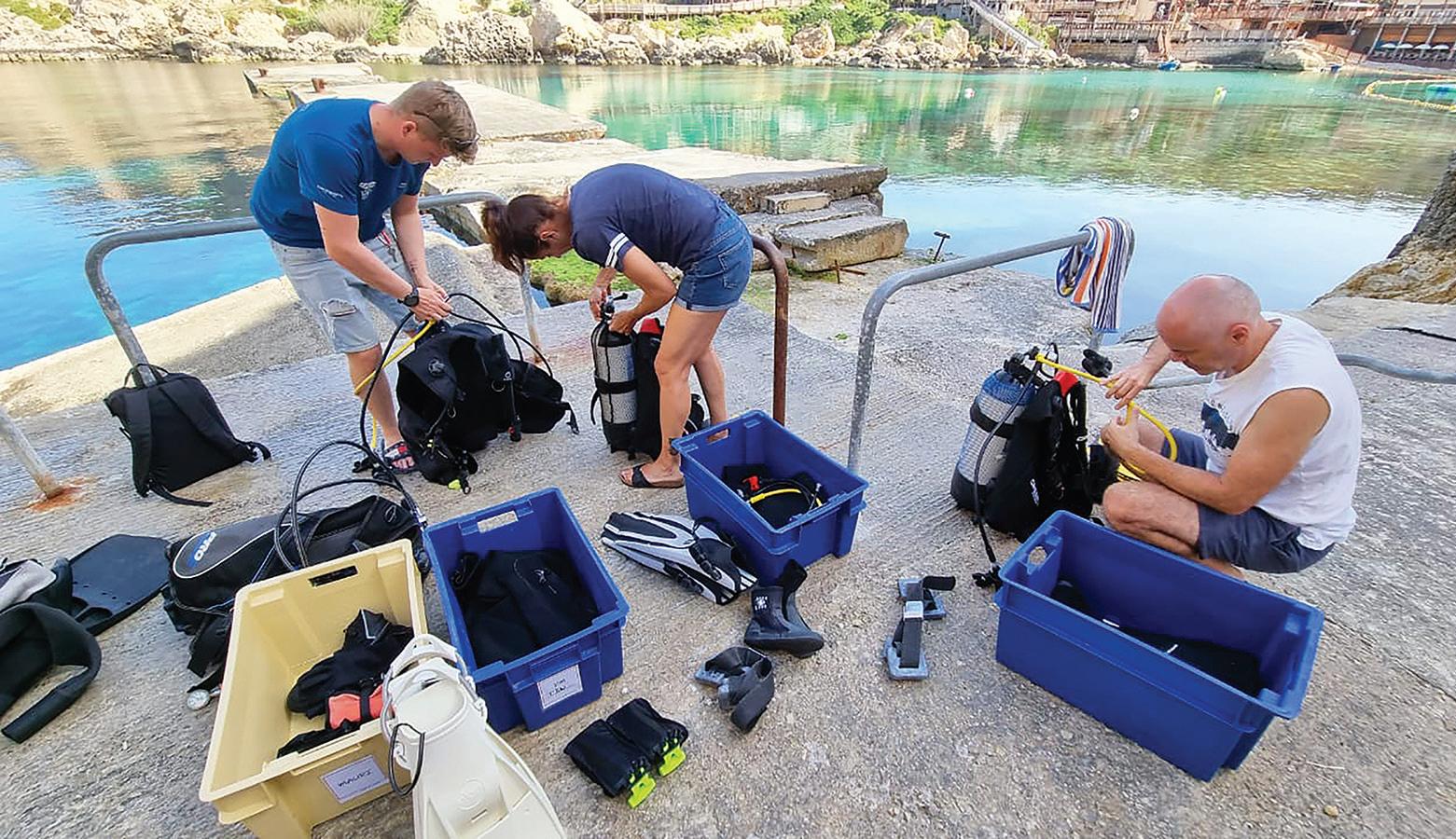

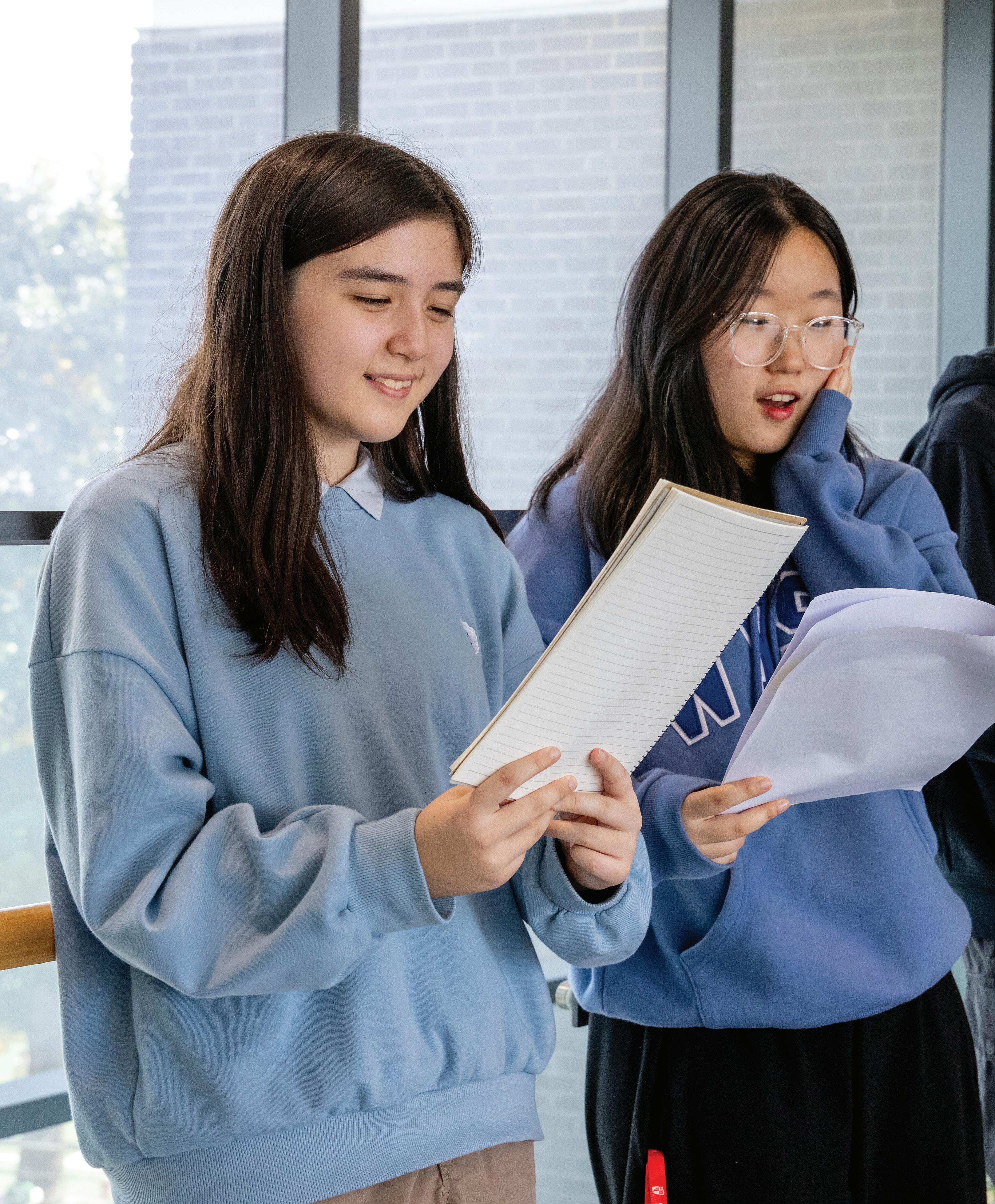

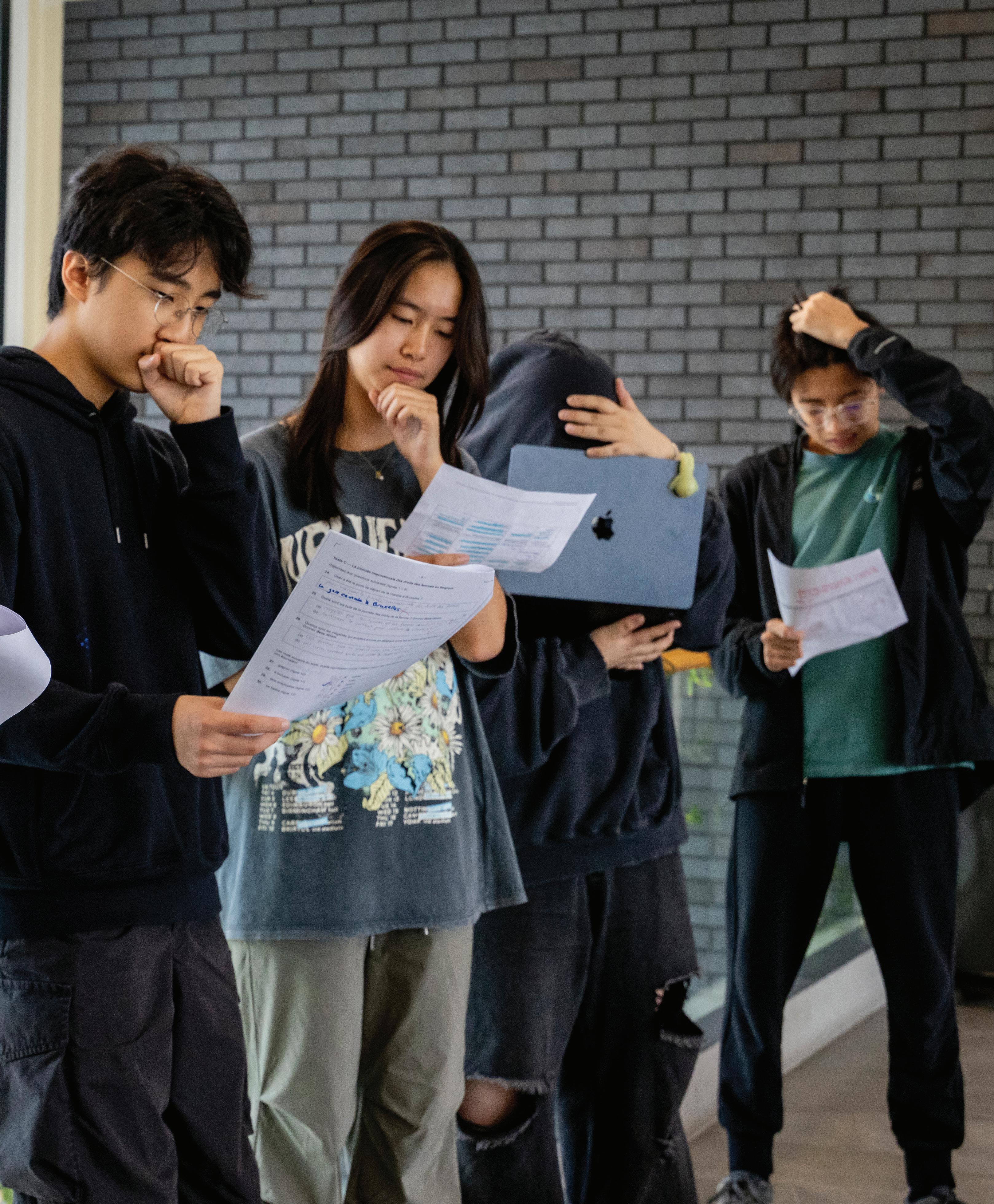
By Zoe Greenhalgh
Alright, raise your hand: how many of you currently reading this article have received at least one piece of feedback before? Perhaps it was for work. Perhaps it was from school. Keep your hand raised if you remember, almost word for word, a piece of feedback you had received. Now, I am going to assume that the majority of you do indeed remember receiving such a thing and, most likely, having to apply it whether you like it or not. I know that I have. But that is just the thing: was the feedback you received actually beneficial? Or did it simply discourage you? Constructive criticism can be truly favourable, yet there is a fine line drawn between the “constructive” and just the “criticism”. That, dear readers, is the prime conundrum faced in classrooms today. Whether it’s feedback given directly to the students from the teacher or, even, peer feedback, these mere comments have the ability to shape the values and interests of young minds. The curious minds of the students at Seoul Foreign School. The minds who will have the ability to shape the future. So with that, let’s dive a little deeper into the puzzling world of giving and receiving ideal feedback.
First, we must face the facts. According to a piece of physiological research published in 2016 focusing on “Teaching and Teaching Effects on Student’s Attitudes and Behaviours” (Blazar and Kraft, 2016), it is evident from the two studies conducted to test a theory pertaining to such an idea that teachers, or teaching effects, do indeed have an effect on a
student’s attitude towards certain subjects. It was seen that a teacher’s interactions with students in addition to classroom organisation and the encouragement of other skills such as critical thinking in specific areas of learning showed a clear correlation between such teaching practices referred to as “teacher effects” and a student’s test scores, as well as their emotional and social development. While the research was primarily conducted with upper-elementary school students, the outcome still showed that a teacher’s emotional support is strongly related to a student’s self-efficacy within a subject, whereas errors in questions and negative emotional support discouraged a student’s interest, which was, in this case, mathematics (Blazar and Kraft, 2016).
Understandably, some behavioural changes may occur when such an experiment is conducted on high school or middle school students. However, it is safe to infer from such data that certain methods of teaching, especially through positive reinforcement and constructive feedback, has a strong impact starting from as young as elementary school. Is this not the age when our minds are developing the most? When we start to form our values? When we are the most curious? In order for us to stay curious about a subject, a student must have a personal connection with it. Just one piece of feedback, not worded correctly or rushed over, can impact a student's future. Their values, their interests, and- in some cases, even their career. I remember when my Year 5 teacher told me “You Can Do It” and
"Teachers wield that power. Feedback doesn’t mean giving compliments to people. Feedback also doesn’t mean blatantly criticising a person’s ability to do something. Feedback means to shape, to fuel one’s mind. To grow."
made me repeat it to the whole class. I have never forgotten that piece of advice. Now that I’m in high school, well, let’s just say it still applies. My past English teachers have given me more than enough feedback to fill an entire room to the brim and is what shaped my writing style today. They motivated my interests and even my career ambitions. Teachers wield that power. Feedback doesn’t mean giving compliments to people. Feedback also doesn’t mean blatantly criticising a person’s ability to do something. Feedback means to shape, to fuel one’s mind. To grow.
TO STAY CURIOUS. But, you may be asking, what exactly is considered the “ideal” form of feedback? Well, as stated by an article published in 2023 (Cherry, 2023), formative feedback, or constructive feedback as well as performance feedback, are most commonly given when one is learning a new skill, hence is why this is usually the kind of feedback students receive at school. Whether it’s written, verbal, or peer feedback, it often contains areas of improvement directed at the personal growth of the person it’s given to. However, while having an open mind is the first step in receiving feedback, it is still important to assess the value of what’s given. Ideally, dear reader, given feedback should be specific, balanced.
BALANCE IS KEY. Positive comments can sometimes be just as good as those constructive in nature. Focusing on actions, rather than one’s personality is also an area to pay attention
to. Preconceived perspectives on a person could hinder the effectiveness of the comments given and may foster a fixed mindset, rather than the ideal growth one. These are just a few little tips that can make all the difference. That difference between “constructive” and “criticism”. That difference between growth and fixed. That difference which forms a curious mind.
So to the students, I say: stay curious and keep an open mind. To the teachers, I say: foster curiosity the right way. And to you, dear reader, I say: whether you’ve made a comment that discouraged another. Whether you made any mistakes when giving a seemingly harmless piece of feedback. Forget it. You know why? Because it’s what you do, what you give next that matters. However bad the comment was, however ugly the impact was: change it for the good. That’s what ideal feedback is and how, together, as an SFS community, we can solve this classroom conundrum.
19 12
Works Cited:
• Blazar, David, and Matthew A. Kraft. "Teacher and Teaching Effects on Students' Attitudes and Behaviors." Educational Evaluation and Policy Analysis, vol. 39, no. 1, 8 Oct. 2016, pp. 146-70, https://doi. org/10.3102/0162373716670260.
• Cherry, Kendra. "How to Give Feedback Effectively and Respectfully." Edited by Rachel Goldman. Verywell Mind, Dotdash Media, 27 Oct. 2023, www.verywellmind.com/how-to-give-feedback-8363534.

By Arnaud Boulestreau MYP and DP French Teacher
WhenI was first introduced to AI less than two years ago, I saw it as an opportunity to level the playing field. I was mostly excited and concerned about how I could use AI for my work or how AI would impact my students’ learning. I could see how I could use AI to alleviate some of my burdens by helping me prepare my lesson plans as well as write and bring clarity to the feedback I had to write for my students. Since then, I have learned how to better use some of these tools for my work and how these tools had their own limitations. For my students, I was first concerned about them using this new technology to cheat or to take shortcuts in their learning. However, I have discovered that cheating is not more prevalent now than before. What has changed are our teaching practices and our understanding that most of our students are mainly using this new technology to expand their knowledge.
Of course, there is still a definite need for AI literacy and AI fluency guidance for all of us as we try to navigate these new tools that keep on evolving faster than ever before. However, the topic of this opinion article is not about how AI is impacting our academic school life but more about how AI is going to impact our social and human relationships.
Less than 20 years ago, social media took over the world and we are still trying to grasp today the long term effects of these algorithms and screen time on our physical and mental health.
If I had the knowledge that I have today about social media and screens, would I be making the same choices for myself, my students and my children? Certainly not. Social media definitely helps us to keep in touch, share knowledge and interact with each other, but we now can see the perverse effects of social media on our safety and well-being. With that in mind, I don’t want to repeat the same mistakes with AI. In my opinion, we should stay on the side of caution and that’s the reason why I won’t be giving any AI tool names in this article. We don’t have enough knowledge about privacy, safeguarding consideration or the effects on brain development, to promote most of these generative AI tools. Not that I believe that they are necessarily good or bad, but simply because I don't have enough knowledge about them and I don’t have enough retrospect with them yet.
AI is redefining once again what relationships mean to us. Social media did the same as I remember thinking that virtual or online relationships were not real relationships. Now, I believe that they are distinct types of relationships that complement each other. In other words, real life relationships and virtual relationships can coexist while meeting different needs in our social interactions. AI is now bringing a different layer to our relationships in this post COVID-19 world, where another global epidemic is luring: the loneliness epidemic.
Anxiety, stress, depression are common words for all
"But can we have meaningful relationships with AI companions and most importantly, can it replace human relationships?"
generations and despite not being alone, more and more people are feeling lonely. People may sit next to each other playing video games, watching their favorite show on the subway surrounded by people, eating a meal together while on our device and still feel isolated. Social media may compensate for our loneliness but now AI may be where people will seek to find the support needed for their mental health and their loneliness.
On a limited scale, AI tools have the potential to support our real life relationships. For example, we can now ask AI generative tools for some advice on how to deal with a particular relationship or situation. But some AI tools are now going further. Some of the most popular generative AI tools (especially with young people) are persona AI where users interact with AI companions or companion bots. Some of these tools are already very developed and can now have a face, a voice and a persona of your choosing and can understand your tone, your voice and even some of your body language. People can now have access to an AI tutor, an AI therapist and for some of us an AI friend or even an AI boyfriend or girlfriend.
The potential of these AI companion bots are tremendous and we can definitely see some value in these companions. Thanks to these AI tools, students from various socioeconomic backgrounds could have access to AI tutors and teachers, which would give them a way into receiving some content knowledge for a fraction of the cost. Some started using AI companions as
their therapist and despite some obvious ethical implications, some early research and data suggest that it could reduce the suicide rate (Maples, B., Cerit, M., Vishwanath, A. et al) as having a relationship with a companion bot is better than not having any relationship at all. Some dating sites are also now offering AI companions for their introverted or shy users to practice interacting with them before meeting a person in real life and some recruiting agencies have AI companion bots to practice interviews. For all of these examples, AI is either building social, emotional, conversational capacities and skills or supporting the individuals in their daily life.
But can we have meaningful relationships with AI companions and most importantly, can it replace human relationships?
Like for social media, we may already foresee some issues regarding self regulation and control as we navigate this new technology. These AI tools, like social media were created and designed for ultimately creating a profit for their creators. These are not philanthropic tools for the good of humanity, they are created to maximize the number of hours users will spend on them and some of these AI companion tools want to profit from the loneliness epidemic. But what differentiates social media to these chatbots and AI companions is the fact that we do not realize or sometimes even know that they are not real people. How many stories are we hearing these days about people

being fooled by an AI bot calling them with a human voice and sounding exactly like a real human being? Some are even using the voice of someone you know to fool you or scam you.
But, what could be even more problematic is that we may not be able to distinguish between real life relationships and AI relationships. One definite difference is that real life relationships will have friction as we may disagree with each other or argue with each other. This friction is ultimately what makes us humans. Human relationships can be messy and complex. They can be uneasy and stressful. However, thanks to these real life interactions and friction, we are forced to adapt, use empathy, and learn how to behave as social entities. On the contrary, these AI companions are here to please us and will limit the friction as we may decide to leave this AI companion for another one. As a result, the company producing the AI companion will be losing money. AI companions will learn to tell you what you want to hear. The relationship will definitely be easier, almost effortless. Now, imagine that you get used to these types of relationships, you may want to have the same types of relationships in real life and it may redefine what relationships mean to you and how to approach another person. Social media and its algorithms feed us with content which is tailored to us without showing us contradictory views of the world. Consequently, society is more polarized. AI tools and companions have the power to create this division on a much larger scale as we may forget what defined real life relationships. On a more disturbing level, like social
media, AI companions can help us escape reality. We may see people, not accepting that their boyfriend or girlfriend broke up with them and create an AI companion with the face, the voice and the persona of their girlfriend so that they can perpetuate this relationship. We may even see this with loved-ones who have passed away for which people do not accept their death. In fact, these are not dystopian examples but rather are recent uses of AI companions as they become more and more sophisticated.
Everyone will be using AI tools and I can imagine that AI bots and companions may be everywhere in the near future redefining sectors such as customer service, education, marketing, the health sector to cite a few. We need to have these hard conversations with our children, our students, our colleagues and friends. We also can’t make decisions without having all the stakeholders involved. As a school, it means that students, parents, and educators need to sit together and talk about AI and not only on how it may affect our academic life but most importantly how it will affect our relationships. We have an opportunity to use these tools for the greater good, but we need a common understanding and guidance. As we learned from our past experiences with screens and social media, we don’t want to hear ourselves say in 20 years from now: I didn’t know AI could do that to us!
Let’s have these conversations now!
By Rafael Jimenez Learning Support Specialist, EAL Teacher
Ona sunny day, my uncle Pedro dropped the shiny, white tub where my mom intended to shower me. "Wow, Uncle Piti, you messed that one up!" I shouted. My mom and everyone in the room gasped for air. I was just fourteen months old.
Thirteen years later, as a teenager, my mom recounted the moment I said my first sentence. Her words reminded me of the vivid details of that moment and even of the soap's familiar scent and the bathtub's feel.
I recall this day as the first time I was genuinely curious about the brain, how it operates, and how I could remember the smell of the soap and the temperature of the water even though it was so many years later. There was no internet at my parent's farm, so I talked to my mom for hours and asked her at least a million questions, but she didn't have the answers.
Sometimes, I wonder if this conversation with my mom as a teenager contributed to my journey to become the educator I am today or if this was just an early sign of neurodivergence. Although my questions did not lead to any significant discoveries in the brain, there are other teenagers whose insatiable curiosity led them to become adults known for their tremendous impact on the world. For example, Steve Jobs' questions and curiosity during the iPhone project is a fascinating example of how curiosity can drive a human to groundbreaking innovation and spark a desire to transform people's lives.
The word neurodiversity is defined by T. Armstrong et al. 2015 as the term that recognizes and values the natural
variations in human cognition and neurological functioning. The idea of neurodiversity proposes that neurological differences, such as autism spectrum disorder, ADHD, dyslexia, and others, are part of the typical spectrum of human diversity rather than deficiencies or disorders that need to be cured. Simply put, our brains are like the leaves of a beautiful plant; each is unique and plays a vital role in the plant's overall health and growth.
Consequently, let's continue intentionally empowering our students with neurodiverse brains by creating an inclusive environment that respects and accommodates varied learning styles and cognitive profiles, fostering academic achievement and personal growth. This approach can guide our community inclusion journey to foster a culture of curiosity and innovation where we value diverse perspectives and cultivate a learning environment where all community members feel empowered to ask questions, challenge assumptions, and think critically.
References:
• Waller, Kwelin. "Kwelin Waller | American Institutes for Research." American Institutes for Research, https://www.air.org/experts/person/ kwelin-waller.
• Armstrong, T. "The Myth of the Normal Brain: Embracing Neurodiversity." AMA Journal of Ethics, Jan. 2015, https:// journalofethics.ama-assn.org/article/myth-normal-brain-embracingneurodiversity/2015-04?fbclid=IwAR1uiMkXbDR28VzNeFFd36SrCdk 5af56TBJwB_4yzt3AjuPcKw6B5RimTnQ.
• Dwyer, P. (2022). The neurodiversity approach (es): What are they and what do they mean for researchers? Human Development. https:// karger.com/hde/article-abstract/66/2/73/828432
NEURODIVERSITY IS CHANGING THE WORLD.
Let's hear what the great thinkers in the fore-front says about Neruodiversity!

Don’t compare yourself with anyone in this world, if you do so, you are insulting yourself. Microsoft's diversity program aims to enhance performance, communities, and employee lives. It's a part of our strategy for recruiting and developing diverse talent. We're evolving our approach to increase workforce diversity, believing in untapped potential and future-setting roles.
- Bill Gates
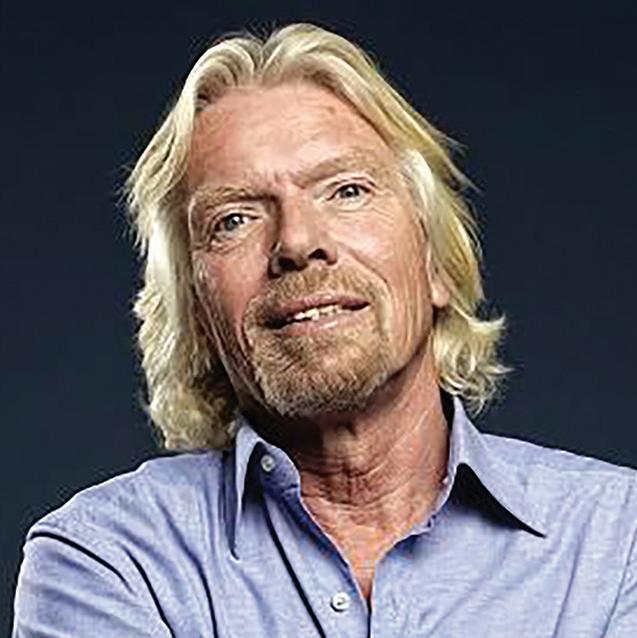
As a dyslexic myself, I know that everyone living with dyslexia can also thrive with it. In fact, it has been such a positive force in my life. After dropping out of school at an early age, my dyslexia has helped me think creatively to solve problems and to keep things simple. That has been so important when building our Virgin businesses. And it’s also made a huge difference when leading and empowering people to be the best they can be.
- Sir Richard Branson
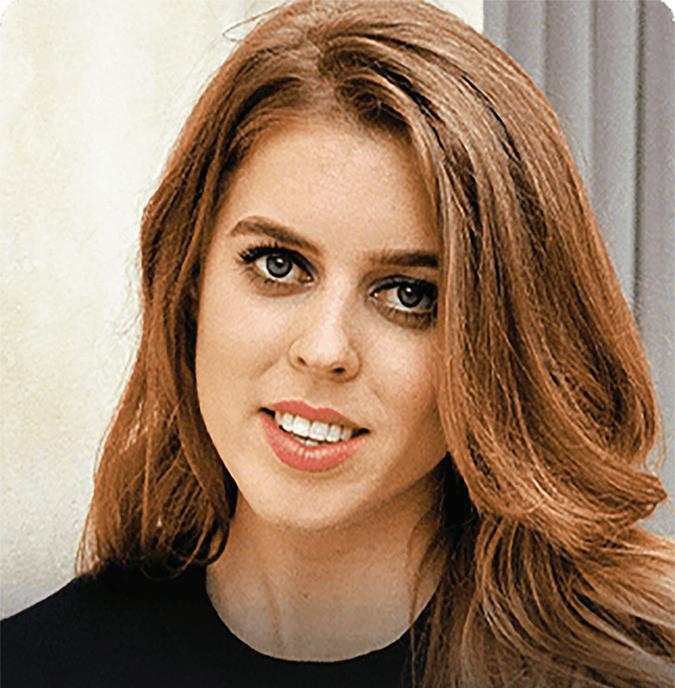
Dyslexia is not a pigeonhole to say you can’t do anything. It is an opportunity and a possibility to learn differently. You have magical brains, they just process differently. Don’t feel like you should be held back by it.
- Princess Beatrice
By Melissa Brabon High School Philosophy, T.O.K, Spanish Teacher
Whatis a good life? Are human beings really free? How can God and suffering coexist? What would it mean for AI to achieve consciousness? What is our moral responsibility to the environment?...
Welcome to DP Philosophy, where “staying curious” is what we do on a daily basis!
Philosophy explores the human experience by asking questions, engaging in new ways of thinking, and embracing uncertainty: all of which lead to new and interesting possibilities about ourselves and the world. By building skills in critical thinking, communication, and moral reasoning, philosophy is preparing our students for an increasingly complex and information-saturated world.
The world once seemed somewhat predictable to you and me, but today's students are increasingly drawn to philosophy to understand and navigate the complexity of the time. This is beneficial to both their present and future because philosophy also encourages intellectual flexibility, a trait that builds resilience and innovation.
With this in mind, why wait until the DP to do Philosophy
with our students? How can we encourage philosophical thinking at an earlier age? Here are a few practical tips on how to engage in philosophy outside of the classroom!
Tip #1: Ask “Why?”
We often focus on “how” questions because we can easily find the answer: we Google or ask our AI helper to find it for us. “Why” answers aren’t as straightforward. They require a deeper dive, often into the underlying values and assumptions that lie beneath the surface. Asking “Why do you think we call or visit Grandma every Sunday?” or “why is it important to carefully consider what we spend our money on?” encourages careful deliberation and communication about our beliefs and the values we hold. Not only does this encourage critical thinking and moral reasoning, but it also teaches our kids that our decisions affect the people and the world around us.
Tip #2: Encourage curiosity by spending time together techfree!
Kids are actually the best philosophers. They don’t limit their imaginations or constrain their ideas to social norms the way adults do. But we tend not to wonder or use our imagination

as much when we have a device in our hand: it does it for us. Spending time off of devices with our children will help to build curiosity. Try wondering about everyday life together. For example, “I wonder what makes a piece of art beautiful?” or “I wonder if food tastes the same to me as it does to you?” If needed, start even less philosophically with something you know interests your child, try “I wonder how the maker of Minecraft came up with the idea? What do you think?”
Tip #3: Answer questions with a question.
When kids ask questions, we tend to give them answers. Child: “What’s your favorite movie?” Adult: ”Jurassic Park.” Child: “Why do I have to do my homework?” Adult: ”To master the material.” What if we responded to their questions with questions when appropriate? Child: “What’s your favorite movie?” Adult: “What do you think makes a movie good?” Child: “Why do I have to do my homework?” Adult: “Why do you think homework helps us? What makes something worth doing or learning?”
I hope this gets us all thinking a little more deeply and enjoying philosophy in our everyday lives! Be sure to also check out the free Philosophy magazines in our library app!
Philosophy explores the human experience by asking questions, engaging in new ways of thinking, and embracing uncertainty: all of which lead to new and interesting possibilities about ourselves and the world. “ ”
By Michael J. Knox and Kirstjen Pollock
MYP Individuals & Societies Teachers
Have you ever heard of Plato’s “Allegory of the Cave”? It’s a powerful story that challenges us to think about how we see the world and what it means to understand "reality." In this Middle Years Programme (MYP) Individuals & Societies (I&S) class, students recently explored the allegory, diving deep into questions of perspective, curiosity, and selfdiscovery.
The class began with a hands-on activity in photography, where students practiced capturing everyday scenes from different angles. Just as a camera lens shifts to reveal new details, curiosity can help us see life from fresh perspectives. Inspired by this, students reflected on Plato’s story about prisoners who only know the shadows on a cave wall, until one day, one person escapes and sees the real world outside. Guided by the question, How does curiosity allow us to shift or expand our perspective, and ultimately help us to escape “the cave”? students reflected on how curiosity shapes their own thinking. Their responses highlight personal journeys, small yet profound shifts in understanding, and, at times, moments of wonder that light the path out of their own “caves.”
Emory Son - Grade 8
Curiosity allows us to escape the cave because curiosity is the key to learning and thinking, which therefore leads to the discovery of the ability of the ways in which we can escape our cave. Firstly, curiosity leads to positive skepticism which
is the key to positive doubt, which is needed for questioning the reality in which we live. By questioning our own cave and our beliefs, we can escape using our new-found knowledge. In class, we discussed the ways to escape from our caves. Our caves trap us in a restricted world, however when we escape our caves we are free. One way to potentially escape our cave is to strive for the love of learning - philosophy. Curiosity leads to philosophy, and philosophy leads to curiosity. Both are good for escaping our cave. This is because philosophy leads to massive sums of knowledge, which helps us to find all of the ways to escape our cave. Thirdly, curiosity IS learning and thinking, and questioning. Learning, thinking, and questioning things are what’s needed to potentially escape our cave. Therefore, curiosity is needed to escape our cave. Fourthly, curiosity leads to knowledge, which helps us shift our perspective on our cave and find ways to escape it. Shifting our perspective helps us see new ways to potentially escape our cave. Without the concepts and understandings of curiosity, we will never be able to find a way out of our constricting cave.
A potential counter argument would be that curiosity can either lead to positive or negative skepticism. Negative skepticism raises negative doubt, which leads to mistrust, suspicion, and denialism. However, negative skepticism can still be useful for escaping our cave. The theory of questioning is one of the best ways to escape our cave. Therefore, curiosity is always necessary to escape our cave. A second potential counter

argument could be that even though knowledge is required to escape the cave, there are also potential pieces of knowledge that will stop you from escaping the cave - for example, incorrect pieces of information, or fictional stories that blend into fact. Negative pieces of knowledge are ever-present in our current lives and especially the cave. But skepticism and doubt will question the knowledge, and common sense can be applied to still positively gain useful knowledge and to further attempt to escape our cave. To conclude, curiosity allows us to escape the cave because curiosity is the key to learning and thinking, which therefore leads to the discovery of the ability of the ways in which we can escape our cave.
Juha Lee - Grade 8
Curiosity is essential; without curiosity, it’s hard for people to be creative if they don’t wonder. I think curiosity allows us to expand our perspective. For example, I took a photo with my group. And it looked like I was holding another person’s head. In the picture, I looked five times bigger than that person. If you think about it, am I five times bigger than him? Or is it just an optical illusion? If you look at the picture and do not wonder about it, you will likely believe I’m five times bigger than that person. To explain this, if you are curious about something suspicious, you might find the truth that many people have not found out. People nowadays all have similar perspectives, so it is almost impossible to find the truth. They just need to believe what other people believe. However, the 1% who wonder will

eventually discover the truth.
In conclusion, we must stay curious and keep wondering about things throughout our lives, or we will get stuck in a cave. You are stuck in the cave; you need to live an unhappy life and believe what others believe, and you get tricked. The “allegory of the cave” is one example that can be used; in the story, it shows us how the prisoners in the cave do not know that they are in the cave and live a happy life there. They do not wonder! If they had wonder something will chance. Their perspective, they would see the world differently and realize that they are in the cave.
It is not an easy thing to change your perspective. However, if you do not change it and live like others, you will eventually get stuck in the cave too. You need to wonder and stay curious about everything. Your life will be happier, and your perspective will change.
Curiosity, defined by Oxford Languages as “a strong desire to want to know or learn something.” Technically, this definition is correct, but at its core, curiosity is about opening ourselves up to new possibilities, challenging our beliefs, and expanding our perspective. Curiosity is a fundamental component of escaping “the cave,” a metaphor used in Plato’s Allegory of the Cave as a symbolic representation of the ignorance and limited view of reality that humans are oblivious to everyday. When we are curious and venture outside of our
usual boundaries, we can discover diverse viewpoints and perspectives that deepen our knowledge of the world outside of our Cave.
We explored the concept of perspective through photography in eighth grade Individuals & Societies. In groups of three to five, we were able to ‘trick’ the camera lens into seeing false depictions of reality through factors such as scale, depth, and color. Although it may look like someone’s foot is about to step on ten people’s heads, this is an image that our team manufactured. However, if I were to look at this image for the very first time, I would not know this. I could either take this image at face value and accept that giants exist, or I could be doubtful, skeptical, and question the true reality behind this image, encouraging exploration through research, conversation, or even hands-on experimenting. Ultimately this process leads to discovery and knowledge, which is also why asking questions is at the core of the scientific method. If one always feels that they are 100% certain about everything, there would be no need to further explore alternate explanations of observations.
I have also had several personal stories that have demonstrated the use of curiosity to change my point of view and gain new knowledge. One that I want to highlight in particular is my experience with robotics. This is currently my third year on a competitive robotics team, but I still remember the first time that I watched a competition in third grade. I was amazed at how a pile of parts could turn into a working, drivable robot. At first, I was overwhelmed by that but I soon realized robots are made up of multiple subsystems and it is easy to simplify and reduce complexity by breaking each component down and designing each of them separately. The same can be said for many other things in our daily lives, such as cars, video games, and even the internet. If I hadn’t been curious I would have never changed my perspective on pursuing robotics.
Plato’s Allegory of the Cave teaches us to question what we see, to be curious, and to challenge our perspectives. Not only does curiosity allow for deeper understanding of staged photographs and new activities, it is what allows us to step out of our caves of initial misconceptions and broaden our perspectives to better connect with ourselves, the world around us, and others.
Curiosity enables us to shift and expand our perspective, helping us to escape our limited viewpoints or “the cave,” as described in Plato’s “Allegory of the Cave.” In our photography activity during I&S class, we played with perspectives by taking
photos where it looked like someone was being cut by a scissor that the cameraman was holding, which questions the viewer’s sense of size and dimension. This activity demonstrates how curiosity invites us to see things differently. By exploring new angles and framing, we break free from ordinary ways of seeing the world. It’s not just about the final photo; it’s about asking, “What if?” This shows how curiosity in life helps us go against reality and discover new perspectives. A simple observation, like seeing a rainbow, can lead to deeper questions. Why does a rainbow form? How do the colors appear? When people ask these questions, we can research the scientific process of light refraction and dispersion through water droplets. Curiosity transforms a beautiful phenomenon into an opportunity to understand spectroscopy, which is the study that measures and interprets electromagnetic spectra. This shows how curiosity expands our perspective from a limited understanding to a more complete view and prompts us to learn more.
In Plato’s “Allegory of the Cave”, the freed prisoner ventures into the world beyond the cave, driven by his curiosity, which becomes a pivotal moment in his life. The freed prisoner represents how curiosity helps us escape our narrow ways of thinking. By being curious, we move from seeing only shadows (a limited reality) to understanding the world. This demonstrates that curiosity is the key to expanding one’s perspective. Some might argue that curiosity can lead to confusion or misunderstanding, as people often question things they cannot easily explain or grasp. While it’s true that curiosity can sometimes cause uncertainty, this process of questioning is essential for growth. Even if answers aren’t immediate, curiosity pushes us to seek deeper understanding, which broadens our perspectives rather than limiting them.
Others might suggest that staying within our comfort zones, like the prisoners in the cave, is safer and more familiar, avoiding the discomfort that comes with challenging our perspectives. While comfort zones may feel comfortable, they also keep us stuck. By choosing curiosity, we embrace the discomfort of learning and growth. Like the prisoner who escapes the cave, curiosity allows us to see the world as it is, making the temporary discomfort worthwhile for a more meaningful understanding of reality. Curiosity allows us to expand our perspectives, just as the freed prisoner in Plato’s “Allegory of the Cave” learns to see the world beyond the shadows. Whether through playful activities like photography or exploring the science behind natural phenomena, curiosity challenges us to break free from our limited views and see the world in its true complexity.
Seoyoon
Three prisoners are trapped in a cave, arms chained in front of a wall. Ignorant of the external world, they only see manipulated shadows of objects behind them. As these shadows are the only accessible explanation of the world they inhabit, these prisoners espouse a false reality centered around these shadows. This is Plato’s allegory of the cave. While this allegory seems nonsensical, many parallels can be found in our own lives. Social media, one would argue, is a “cave.” Just like how the prisoners are misled by the shadows to believe in a limited, ignorant world view, social media misleads users, through inaccurate information and lack of other perspectives , to believe in misconceptions. All of us are in a cave, one way or another. Fortunately, there are many ways to escape this state of ignorance that we call the “cave.” Philosophy, skepticism, and the scientific method are all pursuits of knowledge that aid in avoiding a limited perspective. However, there is one particular method that I will be introducing—curiosity.
On a dull Saturday afternoon, bored, I found myself scrolling through Youtube’s never-ending columns of videos. Amidst my browsing, I came across a video of the presidential debate between Kamala Harris and Donald Trump—aired the day prior. After watching the video, I was swamped with an overwhelming deluge of pro-Trump videos on my page. As I skimmed through these videos, I noticed that none of these videos displayed both political perspectives. Instead, they constantly promoted certain ideals of Trump and rebuked that of the other candidate. As I delved deeper, this became even more true. The algorithm kept providing me videos of the same nature, refusing to expose me to any videos that were pro-Harris, nor middle ground. Out of pure curiosity to learn more, I deliberately scouted for videos that supported Harris.
But while I have successfully been exposed to the other perspective, I was again faced with similar patterns: the algorithm thrusting me into rabbit holes of pro-Harris videos, once again, refusing to expose me to the opposite perspective. Only once I had immersed myself into the extremes of the two political sides, I realized that both were a “cave.” Each one, pushing me further and further into believing a certain notion. By means of curiosity, I was able to pursue other political perspectives, expanding my world view. If I did otherwise, the algorithm would have entrapped me in a limited, ignorant outlook. Through this curiosity and subsequently the pursuit of other perspectives, I was able to thwart ignorance. Therefore, through curiosity, we can escape the “cave.”
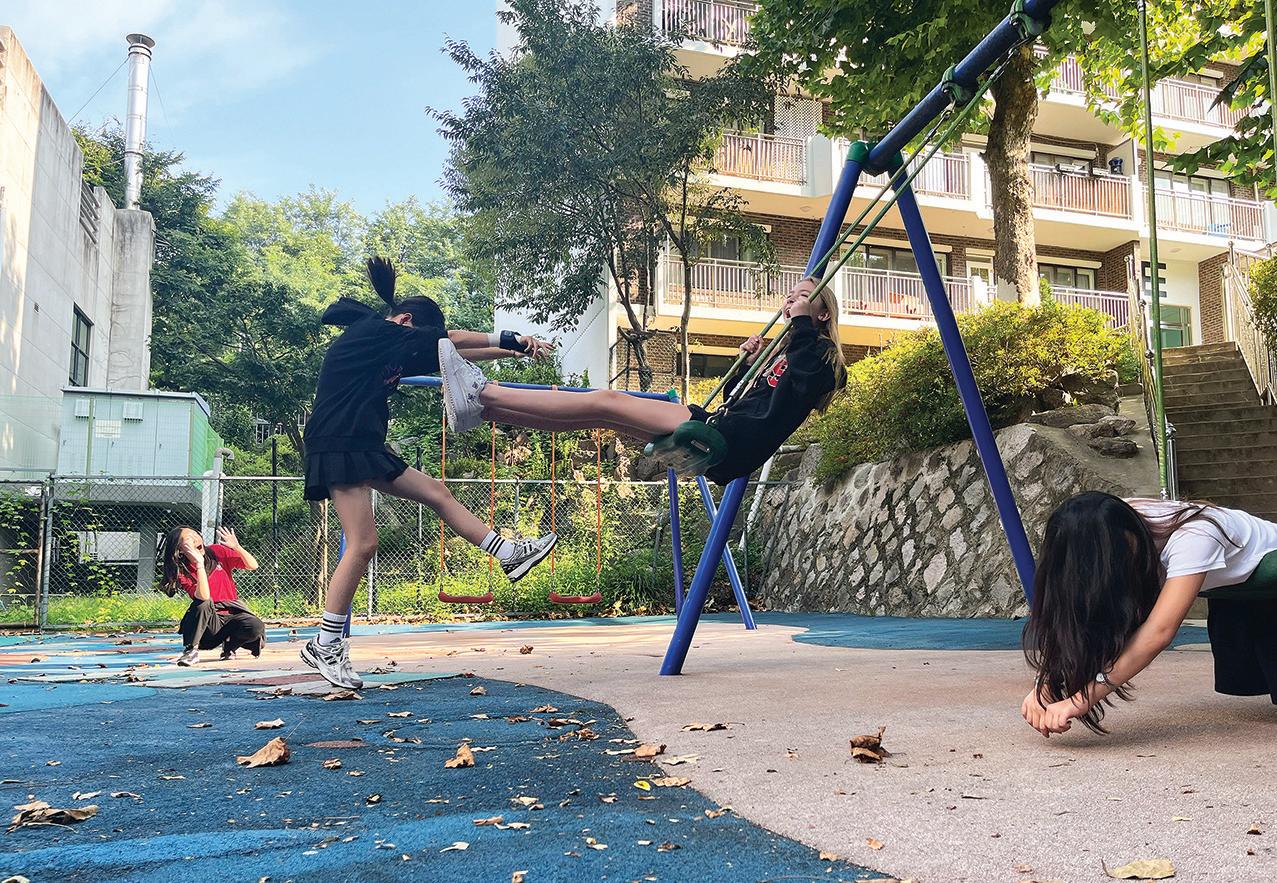

Plato, a foundational ancient Greek philosopher and student of Socrates, wrote extensively on topics like ethics, politics, and the nature of reality. His "Allegory of the Cave," part of The Republic, is one of his most famous works. In it, prisoners live chained in a dark cave, seeing only shadows on the wall cast by objects behind them. For them, these shadows are the entire reality. One day, a prisoner escapes and discovers the outside world, realizing that the shadows were mere illusions. This allegory represents the journey from ignorance to knowledge, showing how curiosity and open-mindedness help us see a more complete reality, encouraging us to question accepted truths and seek deeper understanding.
Ever wondered what's inside a Middle Schooler's locker? We asked some of them to take a peek and here it is!
Sara Yoon & Chloe Brule -G7

“Our vibe is very chaotic and chill. Normally we just shove our things in our lockers since we’re in such a rush. One thing in our locker we couldn’t live without is our food. We’re always starving and since we can only go to the cafe during break time we usually stock up our food every week.”
“Our posters are very important to us. We made these posters to decorate the lockers and make it look lively.”
" If my locker would talk it would say that we're very forgetful people! Heehee."

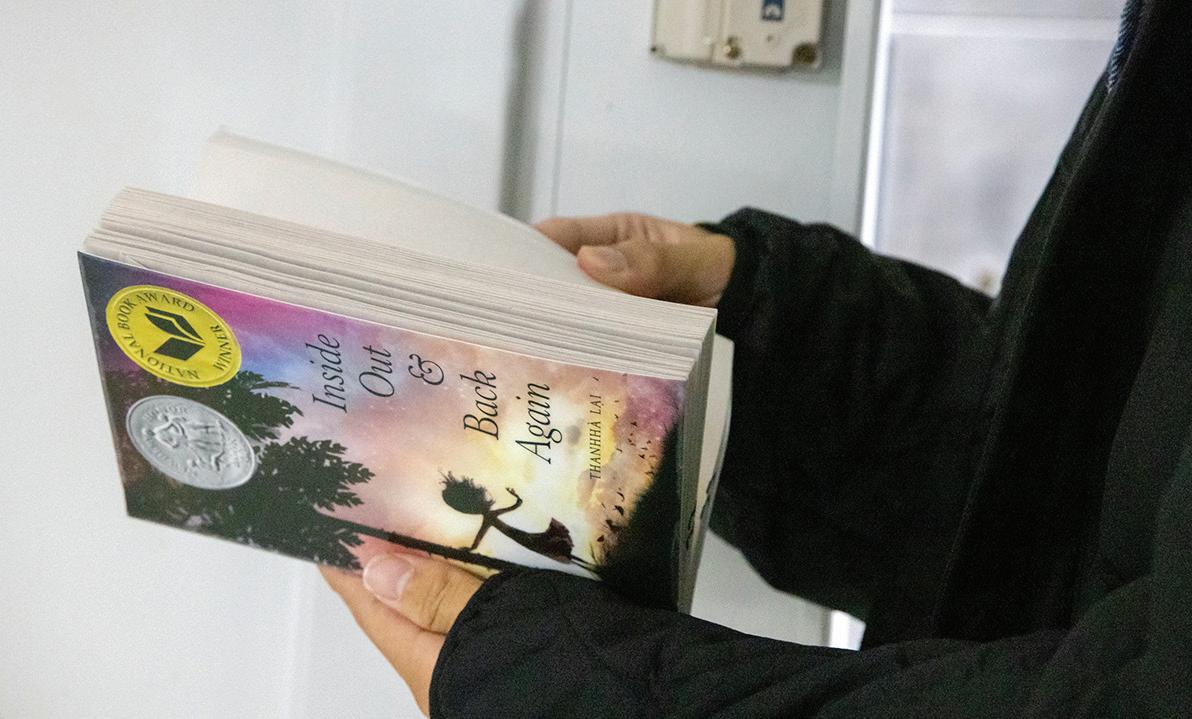
“I had to read this book for class a while ago. The project is over now, but I just kind of felt miserable because I couldn't finish it, I didn't feel good about it. So I just decided to borrow it from the library and read it on my own. It’s a collection of poems about a girl, like a young girl who had to move to a different country because of the war.”
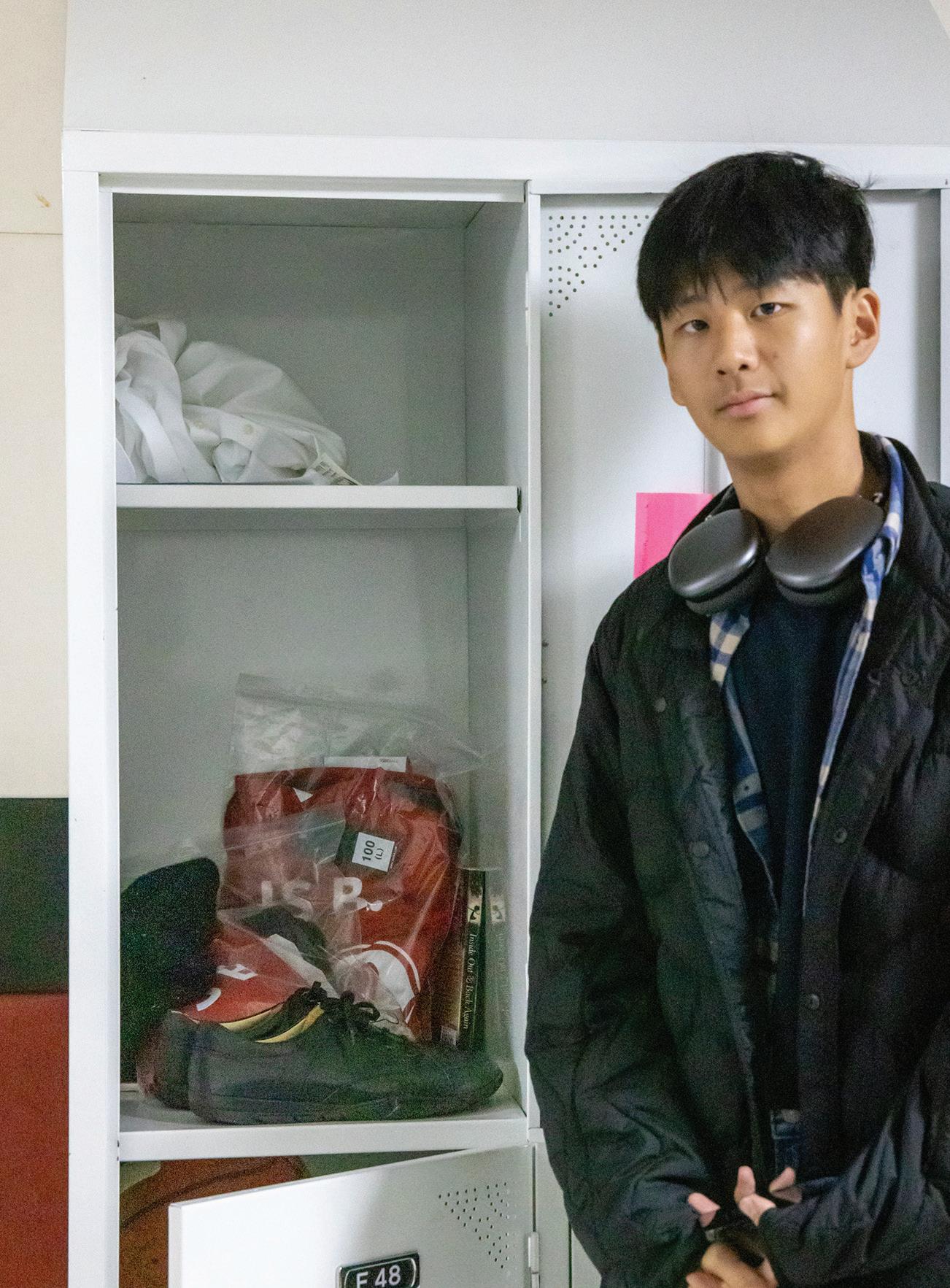

“Why would I decorate my locker? It’s a locker, it’s functional. I don’t want things to fall off, it would be annoying. I don’t decorate my room for the same reason.”

“My locker looks different everyday.”

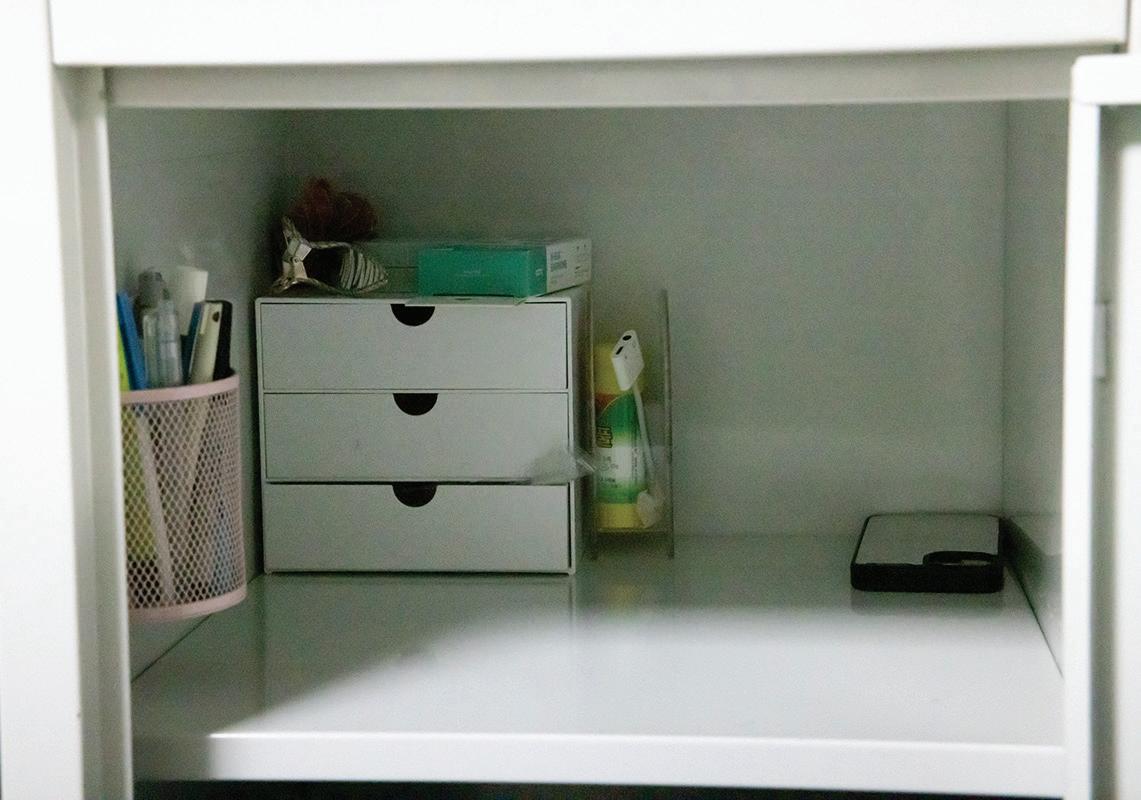
“I guess there's a little bit of pink in my locker, because my favorite color is pink, but I think it's minimalistic. I actually used to decorate my locker when I was in sixth grade and seventh grade, but then it's pretty hard to maintain, and most of the time I don't really look at the decorations a lot. So as I got older, I felt like there was no need to decorate my locker, because it's functional enough. So I just kept a little bit of decorations.”
“Sometimes I do stay in my locker because I'm a bottom locker. It's my first time being a bottom locker during the whole Middle School. And one thing that's good about being a bottom locker is, if you put your bag in here, you can put your head in here, and you can just lay down in the hallway. So sometimes during break, if I'm not hungry and I don't go to snack, I lay down in here and just put my head in here, and the light won't come in because it's inside the locker.”
“I have this piece of wood I made in design class. I'll keep it until I figure out what to do with it.”
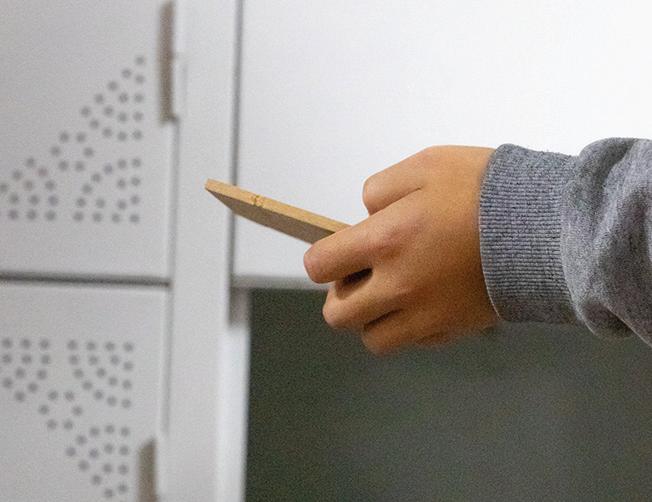
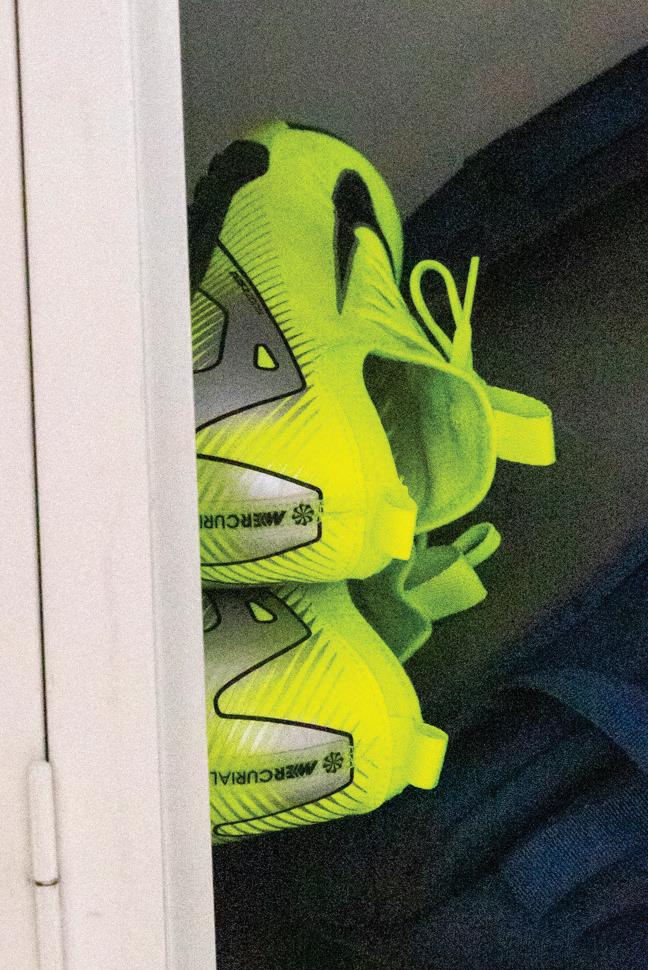
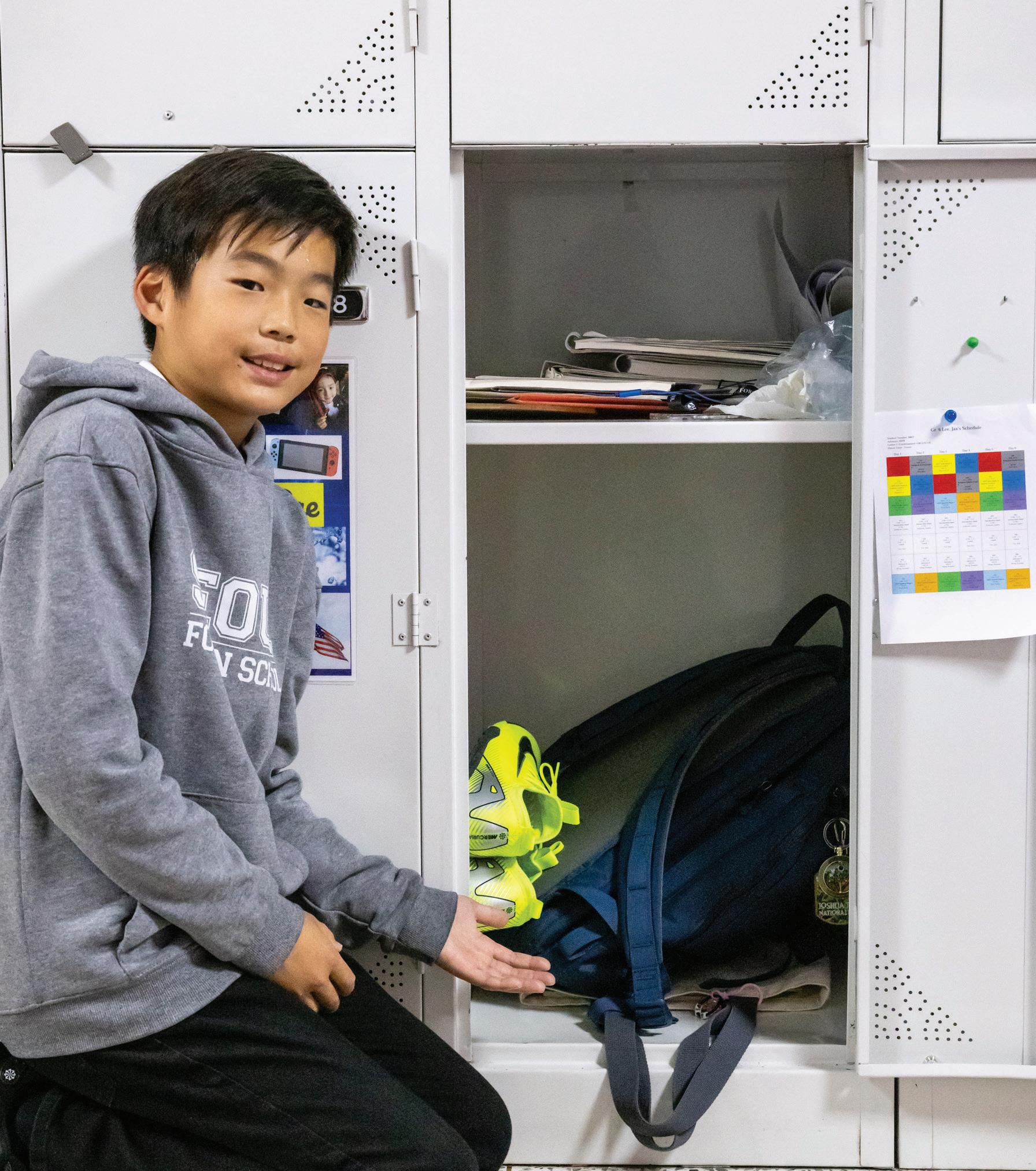
“My locker is definitely a boy and if it could talk, it would greet me in the morning, and if it could move, I would just tell him what to give me.”
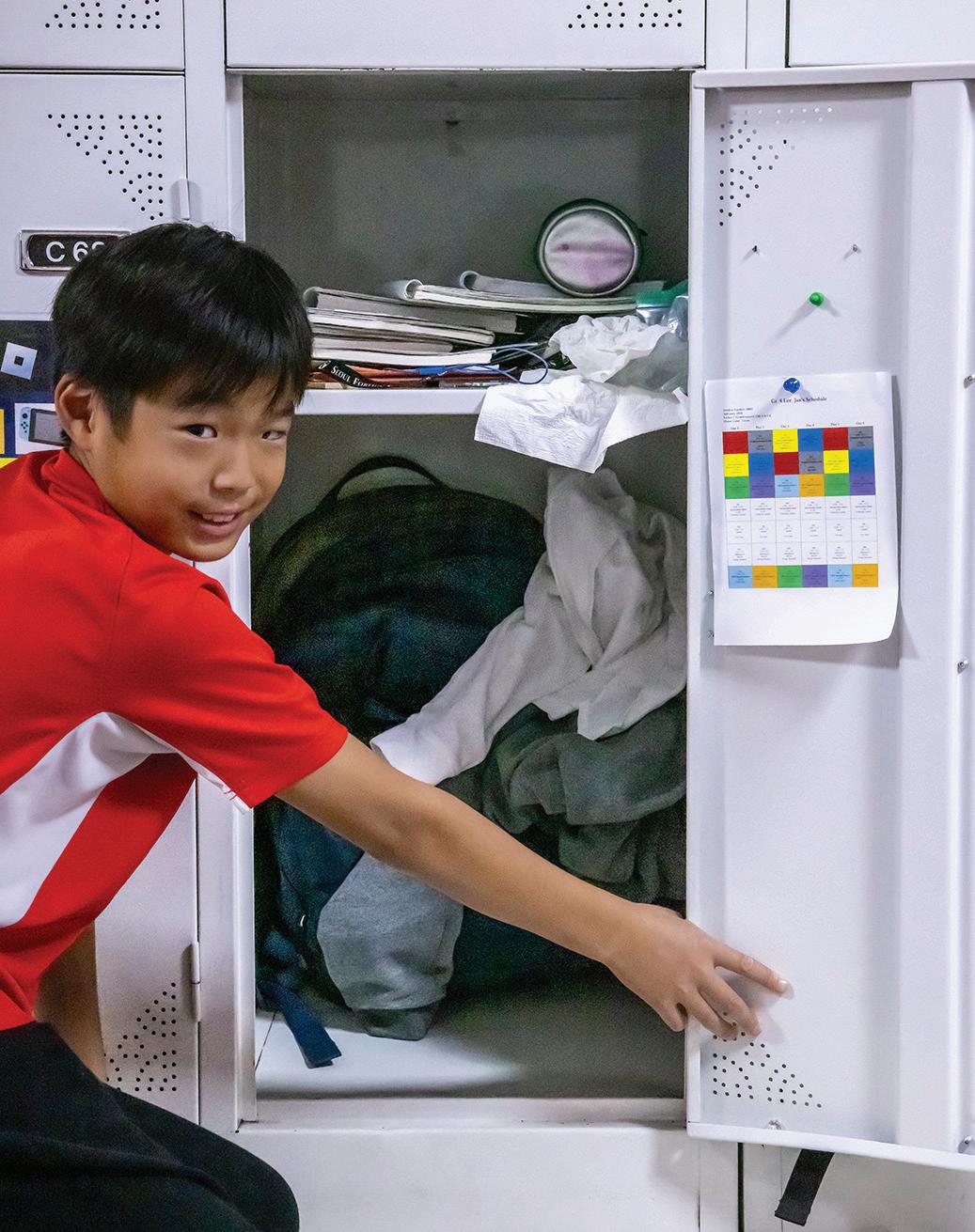
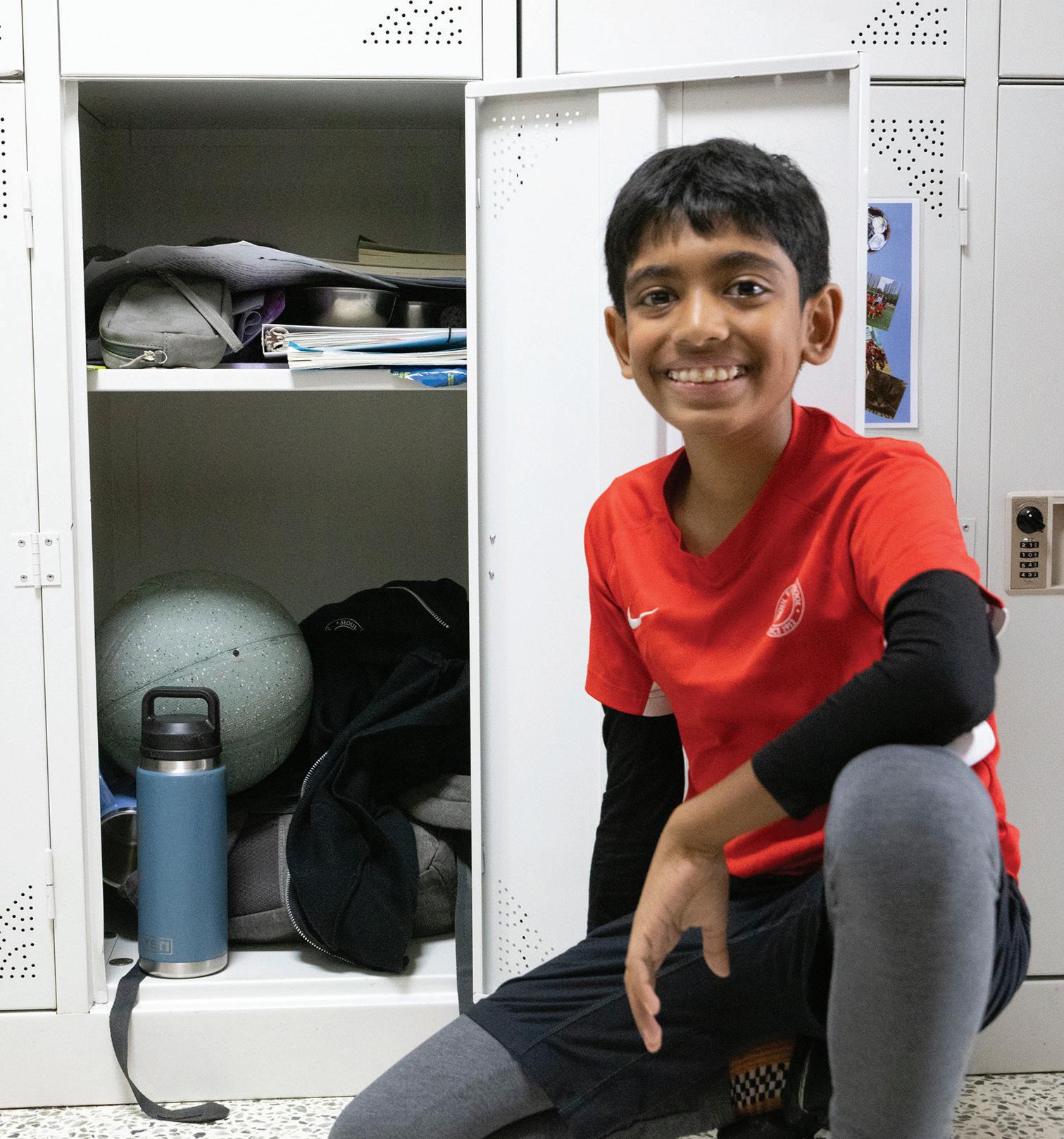
“My locker is really organized. I don't have a lot in it, so it's easy to keep organized. The most precious item I have are the photos on the side of my locker because they're good memories that I have, and it makes me happy to look at them.”
“I don't think my locker would say that I'm very nice, because I keep shoving things into it really quickly in between classes.”
Sahana Iyer -G7
“I wouldn't probably end up cleaning my locker unless I’m asked to. So every month or so, our advisors ask us to do a locker clean out, and we get awards for how well we clean it. For example, last time I got honorable mention, but mostly for the work I did, not for its cleanliness. It's supposed to be clean, but I don't really clean it. There are people who do a great job of keeping their lockers clean. I'm one of the people who don't do a great job at that.”

“I think I have a couple of bowls in here. I end up eating breakfast on the bus. We're not supposed to, but since I have to wake up early, I just do it.”
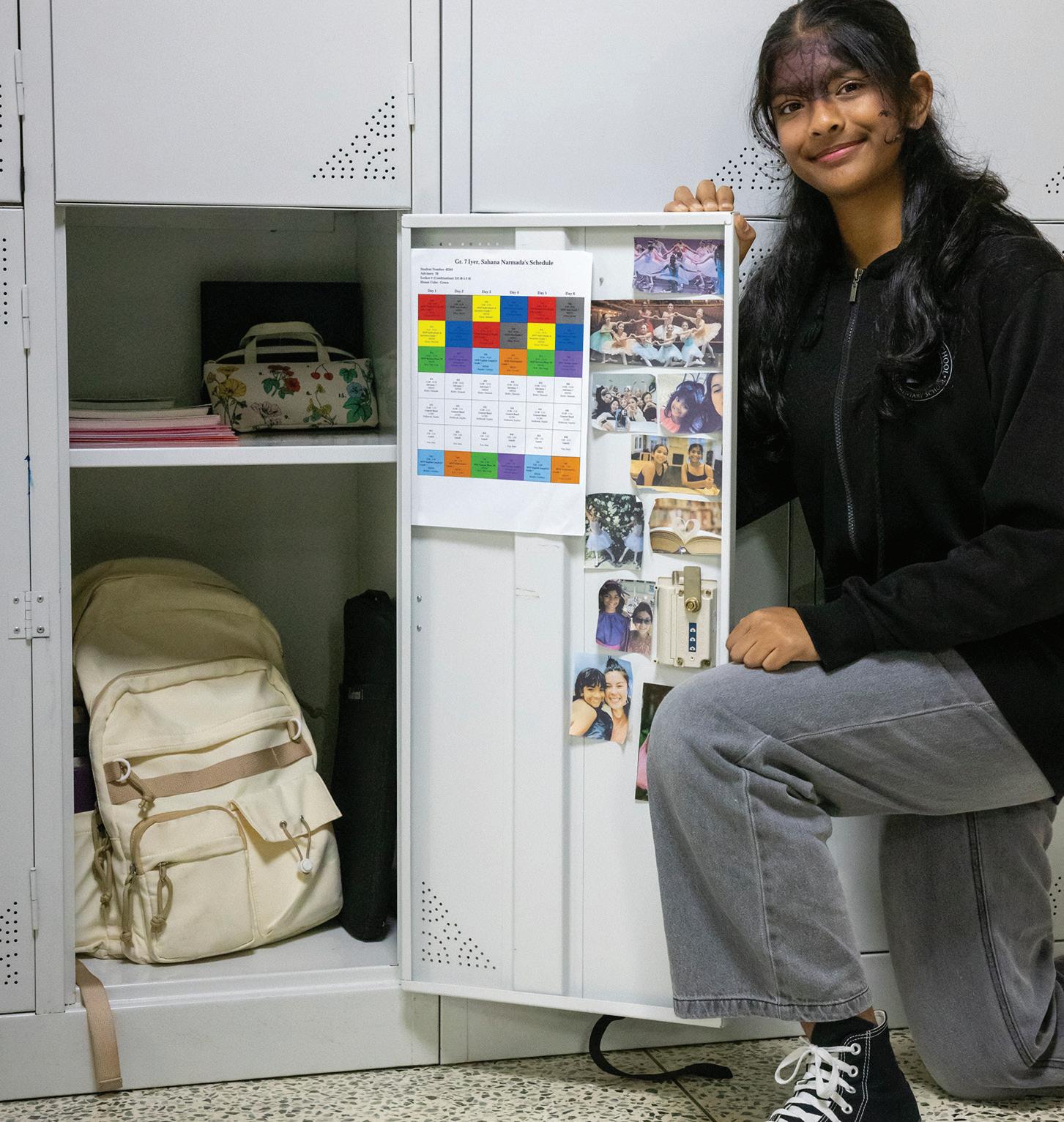
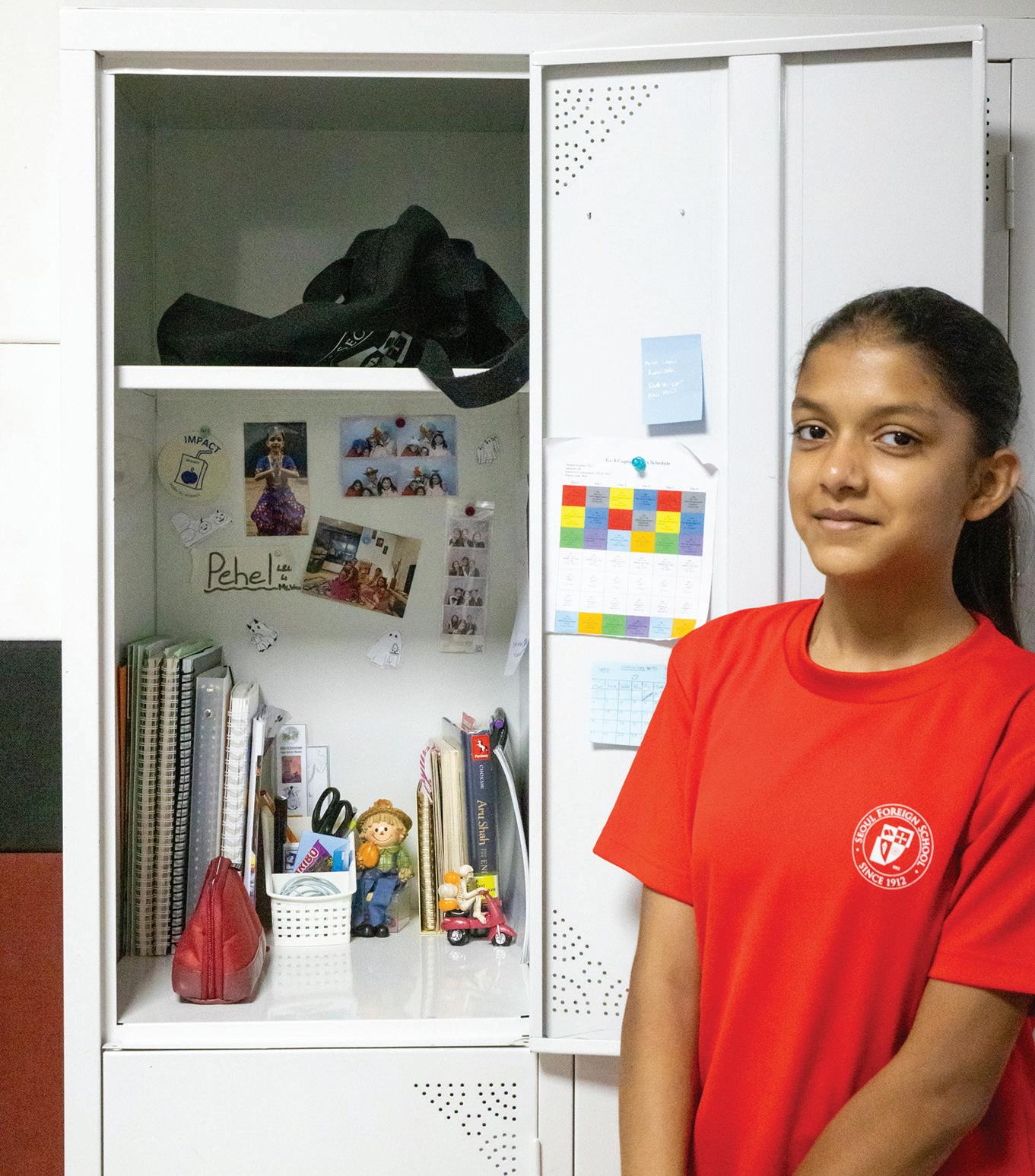
“I love dancing, and I have a photo of me performing when I was 6. It was my first dance ever, my first time performing in front of a big crowd. And I still kind of remember the steps and the music. It plays in my mind sometimes, and it reminds me of how good of a dancer I am, and how much I like dancing.”

“If my locker could talk, it would probably say that I’m a good locker owner, because I keep things nice and clean too. Sometimes.”
“It's just a locker. It's kind of messy because I don't really clean it up a lot.”

“One thing that I can't live without is probably a book, because I love reading and whenever, before class starts, I usually read my books.”
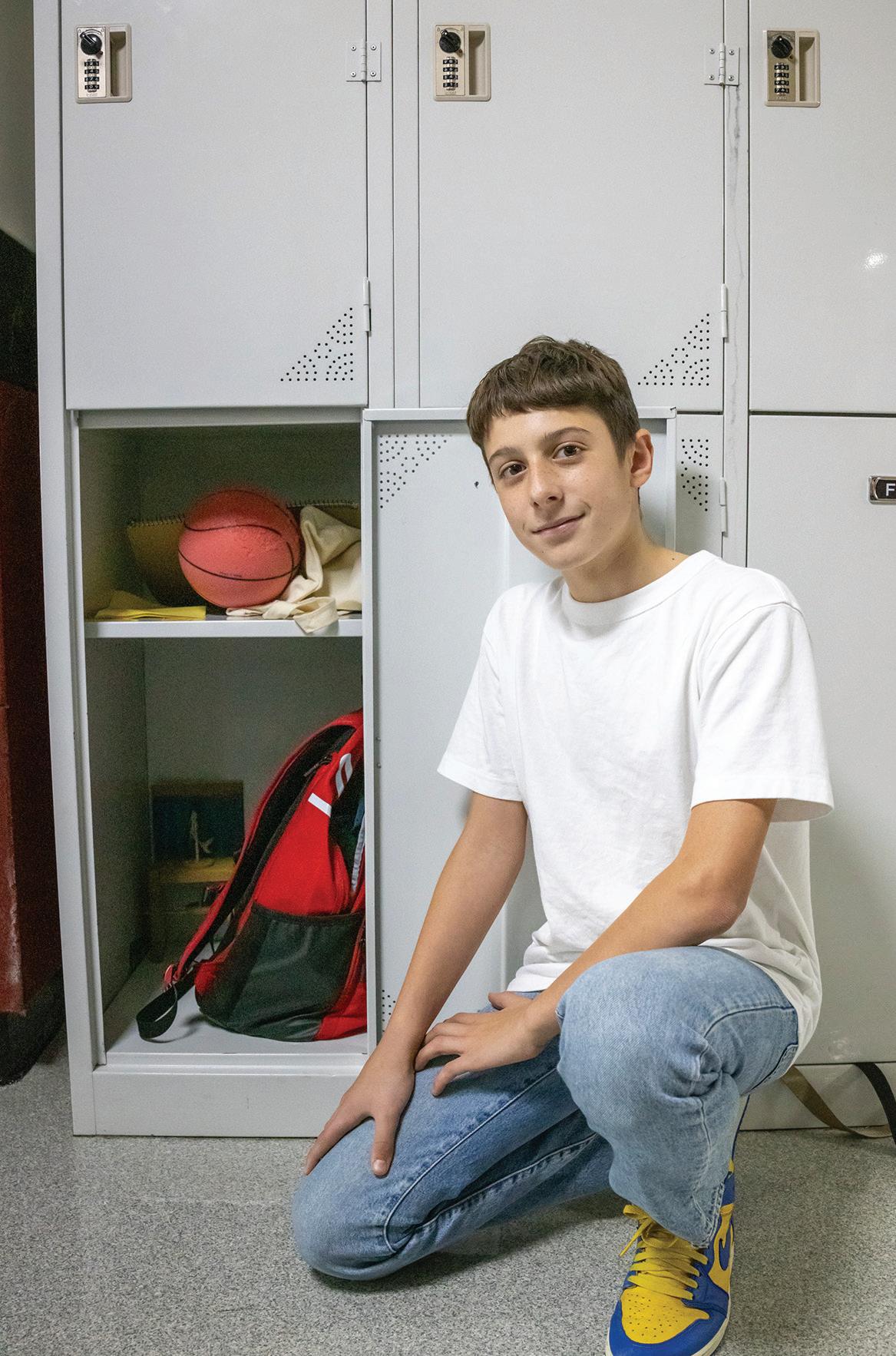
By John Kett
British School Assistant Principal
Theyear started in English lessons for Primary students at Seoul Foreign School - British School with a central text inspiring learning across the age ranges. If you have never come across the fantastic book, The Lost Words by Robert MacFarlane and Jackie Morris, I highly recommend it. Concerned with the preservation of language and the natural world, the text and gorgeous illustrations appeal to the reader’s emotions as we contemplate the loss of words, knowledge and experiences connected with the natural world in a world that increasingly revolves around activities that take place indoors or in more controlled environments. The opening words set the scene for the ‘spells’ that follow:
Once upon a time, words began to vanish from the language of children. They disappeared so quietly at first almost no one noticed - fading away like water on stone. The words were those that children used to name the natural world around them: acorn, adder, bluebell, bramble, conker - gone! Fern, heather, kingfisher, otter, raven, willow, wren… all of them gone! The words were becoming lost: no longer vivid in children’s voices, no longer alive in their stories.
You hold in your hands a spellbook for conjuring back these lost words. To read it you will need to seek, find and speak. It deals with things that are missing and things that are hidden, in absences and appearances. It is told in gold - the gold of the goldfinches that flit through its pages in charms - and it holds not poems but spells of many kinds that might just, by the old,
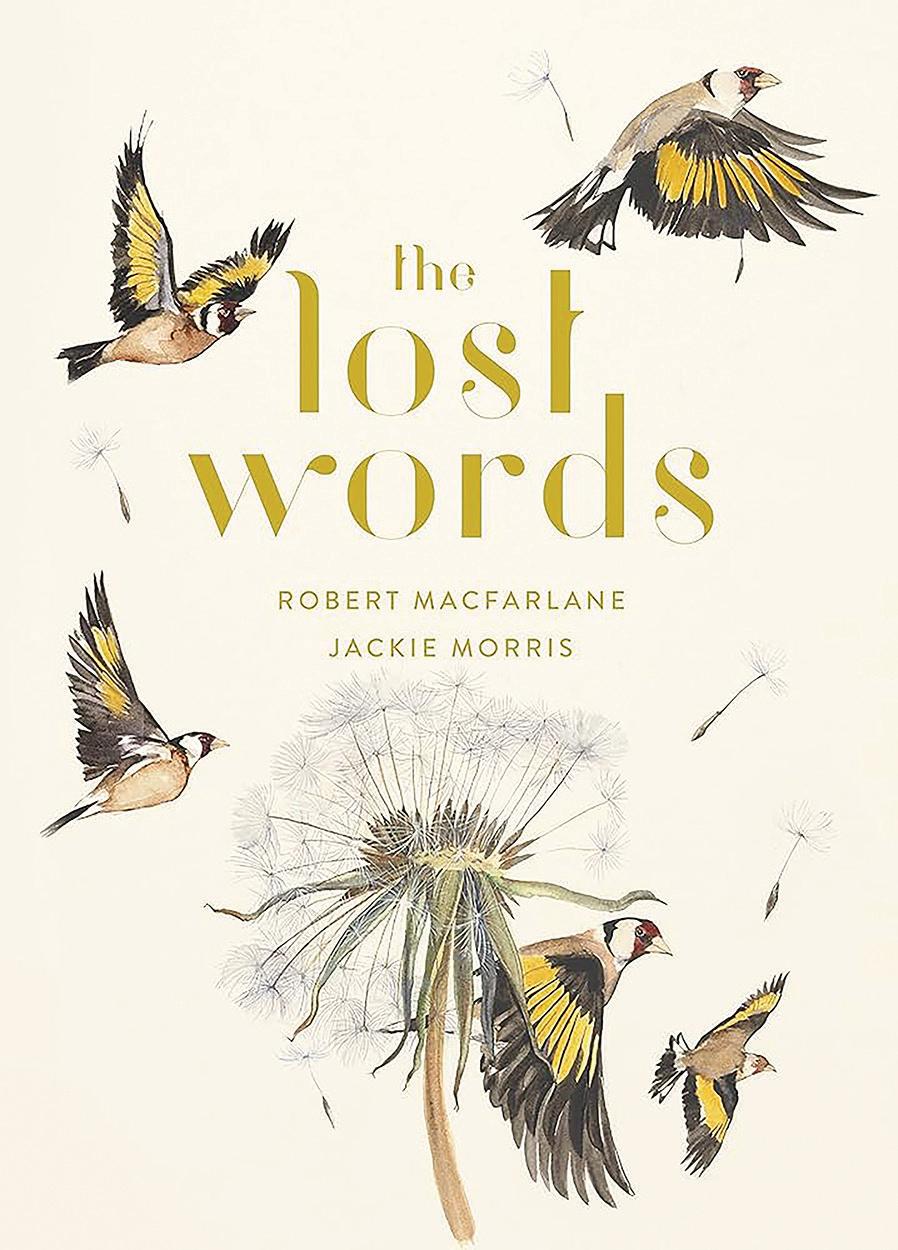
strong magic of being spoken aloud, unfold dreams and songs, and summon lost words back into the mouth and the mind’s eye.
Not only is the book a delight, so was my experience of joining Mrs Kett and Ms Julia from the British School and Elementary School respectively as they led twenty students for their Forest School SWEP last week. The experience was a treat, and an eye opener. I wasn’t expecting students to say they had never held a chestnut before, surprised by the spikiness of the casing. It was great to see students distracted by the smallest of curiosities - leaves, cicada shells and emerging holes in the ground.
Aside from the rich, explorative language that was ignited by the expedition I was struck most of all by simply having the time to explore. I, like the teachers who had planned several activities to engage the children over the ninety-minute session, had wrongly assumed the children would need several tasks to keep them occupied and engaged during the session. How wrong we were. It was heartening to see their curiosity, hear their million questions and take a step back to see them wholly absorbed by being in nature; something I realised we could all benefit from by taking the time to do it more often in an increasingly pressured and busy world.
I am so pleased to see this amazing resource being used at Seoul Foreign School to grow our children as learners and people - curious, inspired, articulate and creative.

Caroline Law
British School English & Humanities Teacher
Pride and Premeditation by Tirzah Price
YA/Murder mystery/Romance
As a fan of both Jane Austen and murder mysteries, this reimagining of Pride and Prejudice felt like it was written just for me. With Bingley on trial for murder, Mr. Bennet and the Darcys as rival solicitors, Lizzie determined to prove herself in a man's world, and Mr. Collins still being a complete waste of space (because some things never change), this book is a charming blend of charm and intrigue.
Nancy Le Nezet
High School Principal Time To Think by Nancy Kline Non-fiction


I'm currently completing a coaching course and this book was recommended by my professor. It is beautifully written and mixes philosophy, psychology and leadership advice. It highlights the importance of listening and giving othersand ourselves - time to think. This book had a life-changing quality and I cannot recommend it enough!
Devin Allen Middle School Art teacher Journey to the west
Anthony C. Yu translation Adventure/fantasy
I was watching the Mandalorian and it reminded me of a novel I read twenty years ago - Journey to the West. So I picked it up again and Anthony C Yu has an updated translation. Tang Sanzang travels to the west to collect scriptures from the Buddha, but he's just a lowly monk who can't defend himself. So, he acquires a dragon which changes to a horse, Zhu Bajie, an immortal who's been banished to the earth (and looks like a pig,) Sha Wujing (another fierce immortal monk,) and the hero of the story Sun Wukong aka The Monkey King. Along the way they have many adventures, rescue towns from demons, hang out with Guanyin and so much more. Check out the source for so much cultural reference in East Asia. Warning - it's a really long book!

We asked our faculty to share one book that they are passionate about. Most of these books are available at the library, so take your pick!
Lauren Elliott High School Teacher Librarian A Crane Among Wolves by June Hur Historical Fiction
This historical fiction is set during 16th century Joseon. 17 year old Iseul has lived a privileged life, until her sister is kidnapped by the tyrant King Yeonsan.
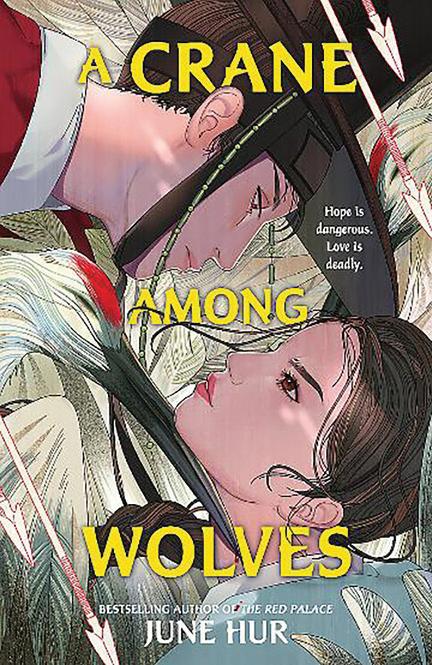
Prince Daehyun lives in the terrifying shadow of his brother, the King. Despite knowing that to challenge the King is to risk certain death, Daehyun and Iseul come together to stage a coup and save her sister. This story is a combination of adventure and historical fiction! All set during a terrifying period of Korea's history.
Audience: High School & Adult.
Elizabeth Watson
University Admissions Counsellor
Yellowface by Rebecca F Kuang Satire/Literary thriller
I read an interview with the author in an Australian newspaper earlier this year and was intrigued. I finally got hold of the book this month and it's an utterly addictive read. Set in the world of writing and publishing, it centres on a white woman stealing the unpublished manuscript of a Chinese/American woman and passing it off as her own work. Bringing in themes including cultural appropriation, friendship, the influence of social media, gaslighting, and the notion of 'otherness', Yellowface is also darkly humorous. Having studied publishing for my master's degree, I love the satirical edge the book brings to its representation of this industry.

AhYoung Chi - Associate Director of Communications and Alumni Engagement
Rising from the Ashes by Paula Yoo Non-Fiction
After meeting Paula during her visit to SFS in October, I’ve become a huge fan. Having moved to the U.S. in 1990, specifically to Los Angeles, I was a middle school student during the LA Uprising. This book—not yet on my bookshelf but in transit—will be like revisiting my immigrant childhood while also learning about this historical event from a whole new perspective, one I couldn’t fully grasp as a young Korean immigrant learning English.
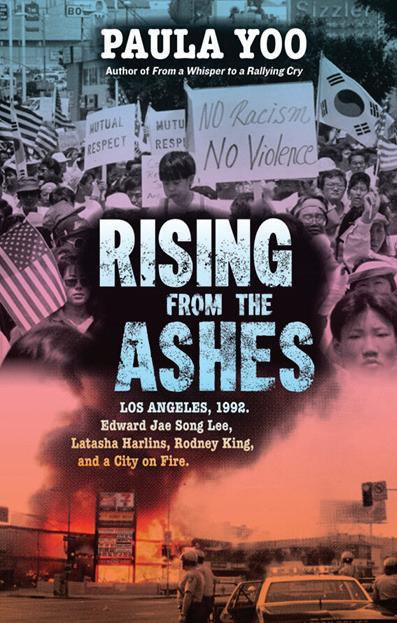
Adam Pollock
High School I&S and Economics Teacher
by Daniel Willingham Educational Psychology
There is no shortage of books promising the secret formula for effective teaching. Some emphasize prioritizing concepts over content, while others advocate tailoring lessons to individual relevance or specific learning styles. This book, however, offers compelling evidence to caution teachers against discarding traditional approaches, such as the value of building extensive background knowledge. It is giving me practical strategies to motivate students, and serves as a valuable reminder that true success still hinges on consistent practice and sustained effort.
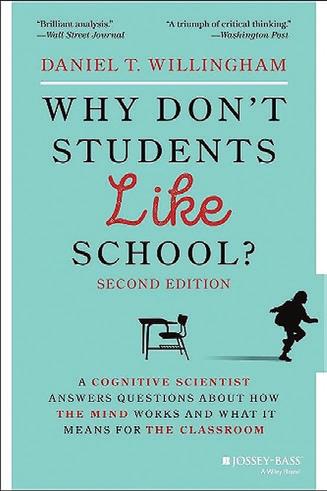
Colm Flanagan - Head of School
To Rhyme Or Not To Rhyme?: Teaching Children To Write Poetry by Sandy Brownjohn
Non-fiction
Recently dipped back into a book that transformed the way I taught writing. ‘To Rhyme Or Not To Rhyme - Teaching Children To Write Poetry’ by Sandy Brownjohn, not only made me a different English teacher, it also gave me an education in poetic forms. In a wonderful playful way , Sandy Brownjohn creates over 70 different ways to elevate and inspire children’s writing. From Renga to Rondelet and Cinquains to Pantoums this is a practical guide and a source of personal inspiration.
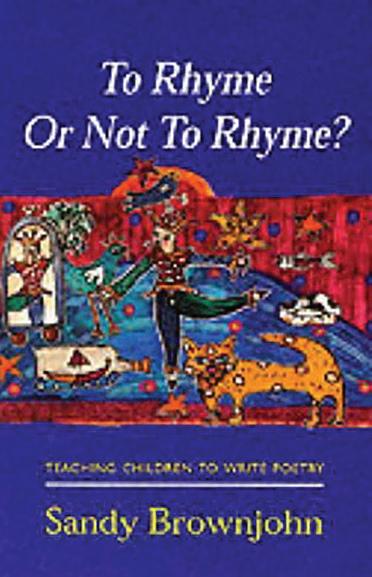
Chris Martin
British School Science Teacher
Anathem by Neal Stephenson Science Fiction
I'm currently halfway through Anathem by Neal Stephenson, and I'm really enjoying it. The story takes place in a unique world where scholars, called "avout," live in seclusion to focus on philosophy and science. This setting is fascinating to me because it explores deep questions about reality and knowledge, and I love how the characters engage in thoughtful discussions about these ideas.

Dave Gagnier
High School English Language & Literature Teacher
The Lives of Animals by J.M. Coetzee
Metafictional novella
This is a great example of purposeful metafiction done well: In real life, South African Nobel Laureate Coetzee is invited to speak at the Tanner Lectures for Princeton University. Instead of speaking about his career as a novelist, he reads aloud a new short story, about a fictional author invited to a fictional university who also decides to not speak about her career as novelist. Instead, she delivers a 2 night lecture about animal rights. The resulting narrative, which includes the entire transcript of the fictional lectures (and the strong responses to them) should be required reading for anyone who wants to have a place at the table in a debate about human/animal coexistence.
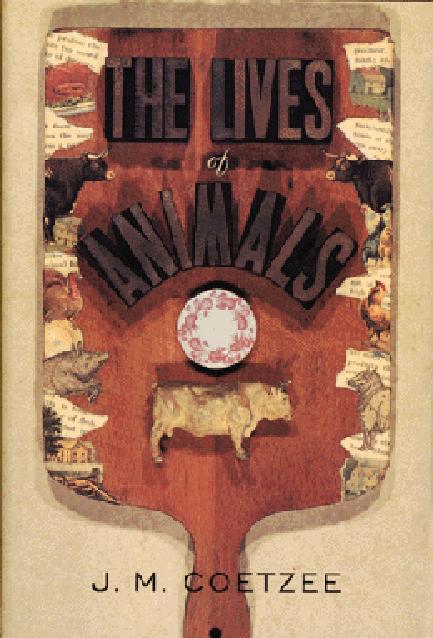
Joanna Brown - Middle School Learning Support Specialist
The Purpose Driven Life by Rick Warren Religious Self-help
An Instagram influencer, Nicholas John, who I am often inspired by, introduced this book in a personal story of its huge impact on his life, and I immediately sought it out on Kindle Amazon to read. I love that it is set up in such a way that you should really only read a chapter a day/ week, depending on your preference, so that you have time to contemplate its messages and figure out how it applies to your life in a meaningful way. I personally feel that I have some sort of bigger purpose to fulfill with my life, but I feel a bit torn about where exactly to direct my energy because of all of my varied interests and passions. I am hoping this highly recommended book will help guide me!

Jennie Purvis - High School Counsellor
The Heaven and Earth Grocery Store
by James McBride
Historical fiction
It is a vibrant, deeply moving novel that blends historical fiction with social commentary. Set in a small Pennsylvania town, it delves into the interconnected lives of a Jewish immigrant and a Black community navigating the 1930s. McBride's storytelling shines through his rich characters and lively dialogue, painting a nuanced portrait of resilience, community, and kindness amid hardship. With humor and heart, the novel confronts prejudice and celebrates humanity, making it both a joy to read and a powerful reflection on compassion in challenging times.
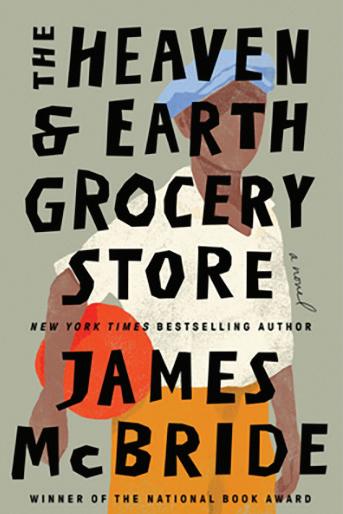
By Mia Yaniw Middle School Drama Teacher
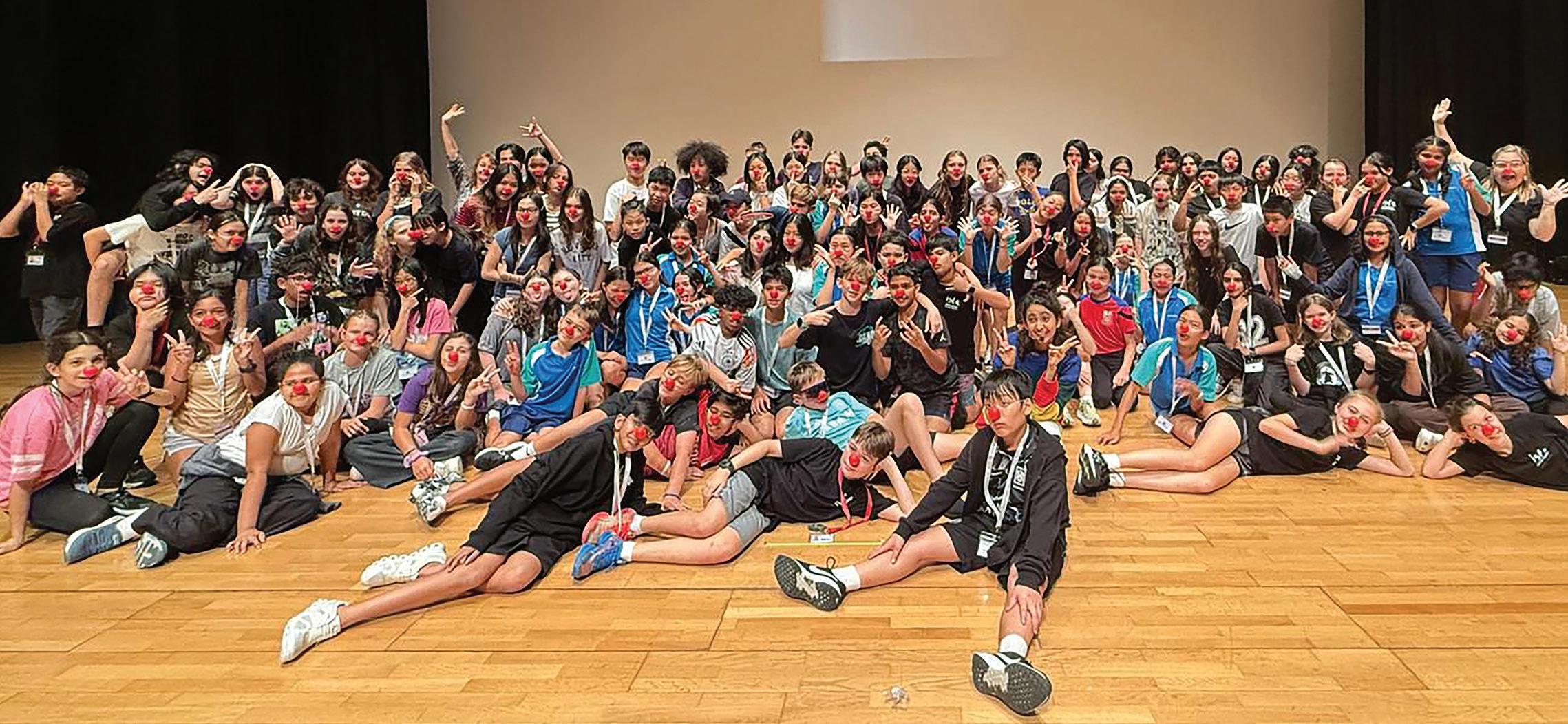
Overthree days in October, 21 SFS Middle School drama students participated in the first ISTA Deep Dive into Musical Theatre Festival called 'The Opening Number', at Dulwich College (Singapore)! This unique festival provided our young performers with hands-on experience as they explored and performed opening numbers from a variety of musical theatre shows.
Participants took part in specialist sessions with professional artists, delving into key aspects of performance—acting, singing, and movement. This hands-on approach allowed students to deepen their understanding of musical theatre while honing their skills. A standout moment was the song ‘I Will Fly,’ composed by artistic director, Daniel Sarstedt, in collaboration with the students. It beautifully captured the students' ideas and tied together the characters from the selected repertoire.
Students also collaborated with theatre students from around the world - including The American Embassy School, New Delhi, International School Manila, The Overseas School of Colombo, Taipei American School and UWC South East Asia (Dover) and from our host school Dulwich College (Singapore). Shoutout to the incredible ISTA artists— Daniel Sarstedt, Richard Free, Alice Johnston, Hannah Northcott, Revati Khattar,
Jane Alanna Coulston and Graeme Danby and ISTA Rep Leanne Fulcher and ISTA Event Manager Sophie Galton.
Thanks to Shanice Stanislaus and Creative Inspirit for the wonderful Clown Workshop and bespoke show, and to Rosie Townsend for all of her hard work she put into hosting this inspiring festival! And finally, a big thank you to SFS Nico Visahan, for chaperoning with enthusiasm and expertise!
Until next year!
we’re curious: what would your song be?
Foreign School · 21 songs, 1 hr 32 min




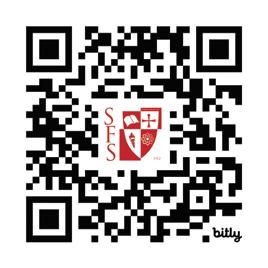
It's a song that gets me through when I am feeling down, and Coldplay emits a certain energy that can not be replicated through any other artist.
The first notes are so recognizable, and the song instantly puts me in a good mood. Plus who doesn’t love The Cure?! I selected this piece because of the melody and the lyrics. I feel like the melody and the overall mood of the music isn’t very intense and it's easy to listen to it multiple times. Also I think the lyrics are easy to relate to and could possibly help me emotionally and mentally when I feel like I am tired or burned out. It never gets tiring after lots of listening. It has a groovy instrumental and catchy melody. I love the contagious energy from the vocalists- it makes you want to get moving! I also love the call-and-response between the background and lead vocals because it feels like an inclusive sing-along It's such a great new wave song, very chill. Reminds me a lot of the 80's which I can still claim. Hahaha!
By Will Lee Class of 2006
As we get older, it becomes rare to be completely surprised in our daily lives. We fall into routines and structures, form opinions and expectations about most things before we experience them, or seek out experts to tell us what they think, allowing us to retreat into the comfort of knowing.
Why do we do this?
Perhaps it is a survival mechanism, where ignorance is seen as dangerous. This may explain why we so often feel frustration and uncertainty in situations where we don’t know what comes next. One of the most dangerous collateral effects of this is that we can unintentionally pass these feelings on to our students. I often observe students responding to the unknown in two ways:
• Frustration (stemming from discomfort and fear of the unknown)
• Indifference (stemming from the belief that denial is easier than caring)
Perhaps we see these behaviors so often in the classroom because there’s an expectation of ignorance. Students anticipate not knowing, which leads to these emotions preemptively. As a middle school science teacher, I’ve learned to lean into this construct of assumed ignorance. I believe there are few places better suited than the classroom for equipping students with the most powerful tool they can venture into the world with: the understanding that the unknown is not something to

fear, but an opportunity for them to take charge of satisfying their own curiosities.
One of my favorite classes at Seoul Foreign School was Theory of Knowledge with Ms. Denis, where we explored the epistemology of various subjects as part of the IB Diploma requirement. One of our discussions focused on the idea that the purpose of studying science is to pursue truth and develop the ability to question how we know what we know. Explicitly identifying the boundary between knowledge and ignorance can make people uncomfortable, as it forces them to acknowledge that there is far more we don’t know (and may never know) than we can control.
As this is the purpose of science, the science classroom is the venue for an incredible opportunity to prepare students for the world. It provides a safe, controlled environment where students can learn to identify the unknown and recognize it as an opportunity for knowledge development. This framework becomes a powerful tool for young adults. When they realize they have the agency to illuminate the shadows of their own ignorance, they can move forward with
confidence, driven by curiosity rather than paralyzed by fear of the unknown.
It’s important to recognize that curiosity alone isn’t enough to empower students. Curiosity can be exhausting. It requires experience, discipline, and comfort with ignorance—but never complacency. The intersection of curiosity and hard work lies at the heart of science. I always remind my students that it’s okay not to know something yet, but it’s not okay not to investigate. It’s crucial for them to learn that hard work and effort will always be rewarded—and there’s no greater reward than satisfying their own curiosities.
During my time at SFS, the Assistant Principal, Mr. Switzer, said something that has always resonated with me: the purpose of education should not be to fill students' minds, but to open them to the world. I believe that teaching students they have complete agency over how they engage with the unknown—with curiosity and hard work—is one of the best ways we can prepare them for whatever the world has to teach them. I hope to continue doing that for my students, in the same way that SFS did for me.
Will Lee ‘06 is currently a New York City Public School teacher, teaching 6th and 7th grades at George J. Ryan Middle School (JHS 216) in Fresh Meadows, Queens, NY. In addition to being a classroom teacher, he coaches the Robotics team (First Lego League) and advises the Board Game Club.
We reconnected with Will during his visit to campus in August 2024. It had been nearly 10 years since his last visit, and he was thrilled to tour the new High School building. As a science teacher, he was particularly excited to explore the science labs. During his time at SFS, Will was an active leader and participant in several activities, including Moonlight Choir, Jazz Band, Student Council, and Swimming, where he served as captain during his senior year. Will reflected on the importance of "Staying Curious," drawing from both his experiences as a teacher and his time as a student at SFS.

It’s not every day that a former SFS alumna returns to campus after four decades, especially someone as endearing as Paula Yoo—a multi-talented author, TV writer/producer, and musician whose career has spanned some of the most beloved and influential television shows of our time. Paula’s journey took her from the halls of SFS to Hollywood, where she’s written for The West Wing, Supergirl, and more, while also authoring award-winning children’s and young adult books.
We were thrilled to welcome Paula back to SFS as a guest author, where she spent time connecting with students of all ages and sharing stories from her remarkable career. In this conversation, Paula reflects on her experiences at SFS, her thoughts on the global rise of Korean culture, and what it means to tell stories that matter. Whether you’re an aspiring writer, a fan of Korean dramas, or just curious about Paula’s creative journey, her story is nothing short of inspiring and heartfelt.
TB: Welcome back to SFS, Paula! We’re so excited to have you here. Could you start by introducing yourself and sharing a bit about your background with SFS?
PY: Hi! My name is Paula Yoo, and I attended Seoul Foreign School from 1977 to 1982. I started here in the third grade and left after seventh grade. I haven’t been back to Korea or SFS since then, so it’s been 42 years. It feels surreal to be back.
By Cyrielle Bazin Director of Strategic Communications
I’ve spent much of my career as a TV writer and producer in Hollywood, and I’m also the author of children’s books and young adult nonfiction. I’m very excited to be here and to reconnect with the school that had such a profound impact on me growing up.
TB: It must feel strange coming back after such a long time. How did it feel stepping onto campus again after 42 years?
Paula: Honestly, I expected it to be more emotional—I thought I’d be tearing up and singing some sort of dramatic song about returning home. But it felt oddly normal. The biggest thing that struck me was the contrast between the Korea I knew and the Korea of today. The city has transformed into this amazing fusion of old and new. You have these beautiful tiled roofs, but also towering modern skyscrapers, and the fashion here is just incredible. Everyone looks like a K-pop star! But at the same time, you walk by a group of ajusshi smoking on the corner, and it feels like I’m back in 1979. It’s been fascinating to see how some things have changed so drastically while others remain so familiar.
TB: Speaking of K-pop, as a TV writer, what do you think about the global explosion of Korean culture, particularly Korean dramas and TV shows? It's been a phenomenon in the past decade.
PY: I think it’s amazing, and I’m not surprised at all. Korea has always been rich in storytelling traditions, and I think the world is finally catching up to it. When you think about Korean history—our occupation by Japan, the civil war that technically hasn’t ended—it’s no wonder we have so many compelling stories to tell. Korean dramas are intense, emotional, and deeply rooted in our culture, but the themes they explore are universal: love, loss, family, identity. That’s why they resonate so well with global audiences. I think the rest of the world is finally realizing that Korea is a hotbed of creative talent.
TB: You’ve had a very diverse career in the entertainment industry, writing for shows like The West Wing and Supergirl, as well as publishing books. How did you get started in TV writing?
PY: It was kind of an accidental career move. I was always a writer at heart. I majored in English at Yale and got my master's in journalism at Columbia. I worked for newspapers like The Seattle Times and People Magazine, and I had also started writing children’s books. A friend of mine knew how much I loved TV and said, “You write books, and you watch so much TV—why aren’t you writing for television?” So, just for fun, I wrote a TV script and sent it to the Warner Brothers workshop. Six months later, they called and said, “You start on Monday.” I couldn’t believe it! I ended up working on The West Wing as a staff writer, and one of the first episodes I wrote was about a North Korean pianist who wanted to defect during his recital at the White House. That’s how I began my career in TV.
TB: The West Wing is such a prestigious show to have on your resume. What was it like working on a show of that caliber, and what did you learn from that experience?
PY: It was a dream to work on The West Wing. Aaron Sorkin’s writing is legendary, and being part of that Emmywinning team was an incredible opportunity. What made it challenging, though, was that Aaron wrote most of the episodes himself, so staff writers like me didn’t get to contribute as much in writing full episodes. But I learned a lot about storytelling, structure, and how to collaborate in a writers’ room. After The West Wing, I moved on to shows like Eureka, Supergirl, and Defiance, which allowed me to stretch my creative muscles even more. In those roles, I had more responsibility and got to work on producing the episodes, which was a whole new learning curve.
TB: What was it like working on Eureka? It sounds like a
very different show compared to The West Wing.
PY: Eureka was so much fun! It’s a light-hearted family drama about a secret town filled with genius scientists working on top-secret government projects. The only person who isn’t a genius is the town’s sheriff, who uses his common sense to solve problems when the scientists get in over their heads. Working on Eureka was my first real experience with producing special effects-heavy episodes. We filmed in Vancouver, and I learned that all those cool sci-fi effects—like flying cars or robots—are just guys in cargo shorts holding tennis balls on sticks in front of green screens! It kind of ruins the magic when you see it from behind the scenes, but it also taught me how much work goes into creating those effects.
TB: Paula, you’re also an accomplished author, and you’ve written several books, particularly focusing on Asian American history and narratives. What inspired you to write these stories, especially for young audiences?
PY: I’ve always been passionate about telling stories that haven’t been told before, particularly those of AsianAmericans. Growing up, I didn’t see myself represented in the media, and I wasn’t aware of key figures in Asian-American history because they weren’t part of the curriculum. My first book, Sixteen Years in Sixteen Seconds, was about Dr. Sammy Lee, the first Korean-American man to win an Olympic gold medal. I found out about him almost by accident, and I was shocked that I hadn’t learned about him sooner. This inspired me to write children’s books that could teach young readers about these important figures, and to help Asian-American kids see themselves in stories.
TB: Your young adult non-fiction book, From a Whisper to a Rallying Cry, delves into the murder of Vincent Chin and its impact on the Asian-American movement. What drew you to this story?
PY: The killing of Vincent Chin in 1982 was a pivotal moment in Asian-American history, and yet, so many people still don’t know about it. Vincent was killed at the height of anti-Japanese sentiment in America due to the layoffs in the auto industry, even though he was Chinese-American. His killers received very light sentences, which sparked outrage and led to the first federal civil rights trial on behalf of an Asian-American. This event galvanized the Asian-American community and laid the foundation for the activism we see today. I wanted to tell this story in a way that would engage young readers, using narrative non-fiction to make it feel like they were reading a novel while also learning about history.
TB: That’s a powerful story. How do you approach writing about such heavy topics for younger audiences?
PY: I think it’s all about balance. You have to be sensitive to the subject matter, but you also have to trust that young readers are capable of understanding complex issues. My journalism background helps a lot in this regard. I conduct extensive research, interviewing people, reading court transcripts, and gathering primary sources. Then, I craft the narrative in a way that feels accessible while still retaining the gravity of the story. I focus on the human aspects—the emotions, the relationships—so that readers can connect with the people involved, even if they don’t have personal experience with the events.
TB: Do you find that your experience as a TV writer influences your approach to writing books?
PY: Absolutely. TV writing has taught me a lot about structure and pacing. When you’re writing for TV, you’re always thinking about how to keep the audience engaged from scene to scene. That’s something I carry over into my books, especially my non-fiction work. Each chapter has to feel like it’s driving the story forward, with cliffhangers and emotional beats that make the reader want to keep going. I also think about my books cinematically, almost like I’m writing a script for a miniseries. It’s about creating a visual and emotional experience for the reader.
TB: You’ve accomplished so much in both TV and publishing. What advice would you give to students at SFS who want to pursue a career in writing, whether for TV, film, or books?
PY: My biggest piece of advice is to stay curious and be prepared for rejection—lots of it. Writing is a tough industry, and you’ll hear “no” more often than you’ll hear “yes.” But every rejection is a learning experience. Find mentors who can guide you and help you improve your craft. Most importantly, focus on your voice. Don’t try to write like someone else or chase trends. Write the stories that matter to you, the ones that only you can tell. And don’t give up. It can be a long road, but if you’re passionate about it, it’s worth the journey.
TB: That’s wonderful advice. Let’s talk a little bit about your time at SFS. What was it like being a student here in the late 70s and early 80s?
PY: I have such fond memories of my time at SFS. The teachers here were incredible—they really shaped who I am
today. I still remember the names of my teachers: Mrs. Furman in third grade, Ms. Stanfield in fourth, Ms. Amnell in fifth, and Dr. Moon in sixth grade. I participated in everything from soccer to performing arts. I loved Field Day, even though I wasn’t the most athletic; I always got my participation ribbon, and I was proud of it! I also remember spending recess reading books in my favorite tree on campus. I even named it “Tree,” which, in hindsight, wasn’t very creative, but it was my special spot.
TB: It sounds like SFS played a big role in shaping your interests and passions.
PY: Absolutely. I was involved in so many activities here, from playing the violin to being in school plays. In sixth grade, I got to play Pinocchio in our annual elementary school play! I still remember the songs we sang and the excitement of performing on stage. The teachers and the community at SFS gave me the confidence to pursue my creative passions, whether it was in music, theater, or writing.
TB: Coming back after 42 years, does the campus still feel familiar to you?
PY: It does, surprisingly! When we drove up the hill, I immediately recognized the guard house with its Korean pagoda roof. The soccer field is still there, though a lot of the other areas have changed. The middle school building is new, and there are a lot more high-tech facilities now. But it still feels like home. That’s the magic of SFS—it’s not just about the buildings; it’s about the people. The teachers, the students, the community—that’s what makes SFS so special.
TB: Lastly, with everything you’ve accomplished and your deep connection to your roots, how do you see your identity as a Korean-American shaping your work today?
PY: My identity as a Korean-American is at the heart of everything I do. Growing up, I didn’t see people who looked like me in the media, and that had a huge impact on me. I think that’s why I’m so passionate about telling stories that center on Asian-American experiences. It’s not just about representation; it’s about making sure our stories are told with authenticity and care. I feel a responsibility to the next generation to make sure they see themselves in the stories they read and watch. And for me, that mission is deeply personal.
Thanks a lot to Paula for taking the time to talk to us.
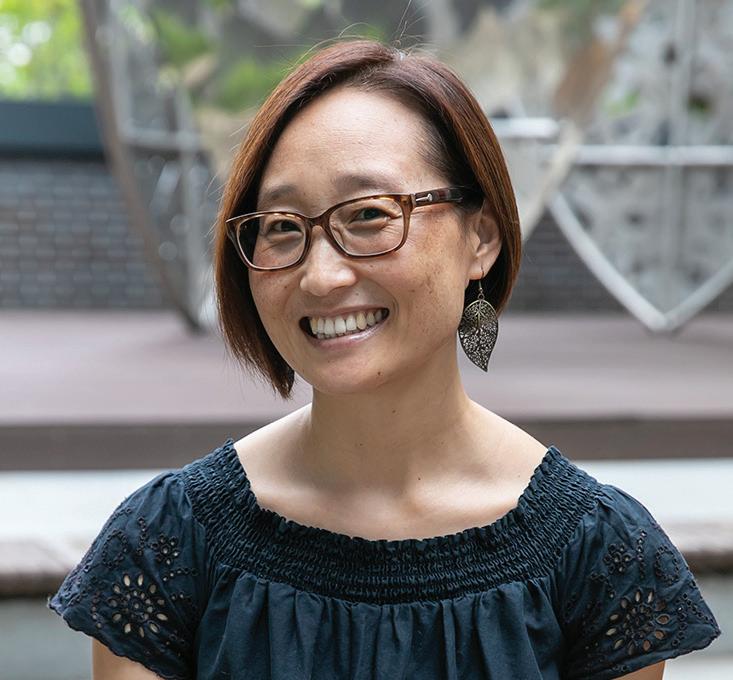
My name is AhYoung Chi, and I am excited to connect with SFS alums in Korea and around the world. Although this is a new role for me, I’m entering my fifth year at SFS, having spent the last four years as a University Admissions Counselor in the High School. Before moving to Seoul, I was a High School Counselor at an international school in Hong Kong, and prior to that, I held similar positions in California high schools and worked in a university admissions office.
Throughout my career, maintaining relationships with students after graduation has always been a priority, so I’m thrilled to now focus on building connections with our alums. Over the past three months, I’ve had the pleasure of meeting alumni ranging from those who graduated in the 1970s to our most recent graduates. We shared laughter and tears as they reminisced about their SFS experiences. Regardless of their age, one common thread among them is their deep gratitude for the school—its faculty, staff, and friends—who helped shape them into who they are today.
Thank you, SFS alumni community! Please feel free to reach out if you have questions, ideas, or just want to catch up. I would be happy to welcome you to campus or meet for coffee in the city!
AhYoung Chi
Associate Director of Communications and Alumni Engagement
The Banner always welcomes your Class Notes and submissions. To submit, please reply to emails or send notes to alumni@seoulforeign.org.
64
Eddie ’64 and Jim DeCamp ’67 returned to SFS with their families in September. Not only did they reminisce about their time at SFS, having spent their entire school years here, they managed to spot their aunt in a basketball picture dating back to 1925. It was an absolute treat to welcome them back and hear their stories. One of many special stories is that they were both part of the cohort who first moved to the Yeonhui-dong campus, back when it was a single story building and lots of gravel!
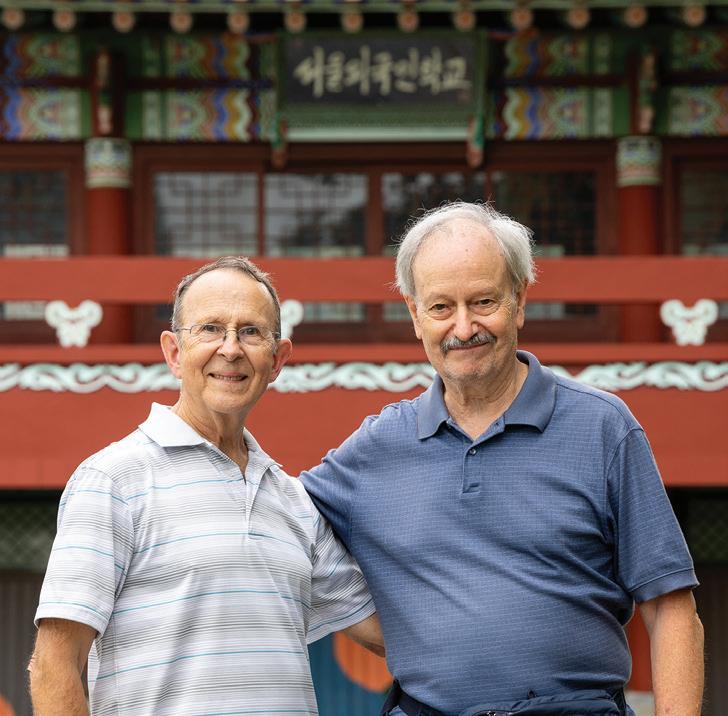
71
Brooks Frazier ’71 has published his second book, 4200 Days in Africa, a memoir that recounts his extraordinary childhood spent over 12 years in three African countries—Libya, Somalia, and Ethiopia. You can learn more about the book at www. brooksfrazier.com.
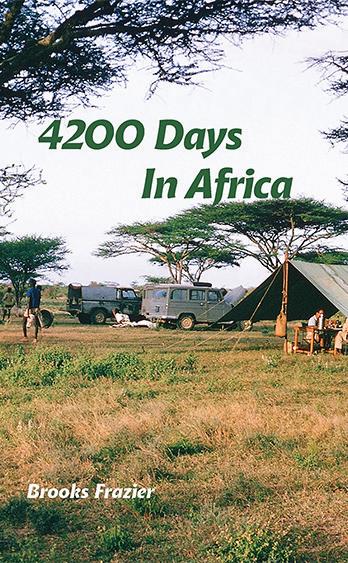
72Siblings Jim Hawley ’72 and Margaret (Hawley) Chung ’76 returned to SFS in September for a walk around campus. Margaret, now a retired teacher, joined SFS as a Kindergartener, and her favorite teacher was Ms. Suttie in G2. Jim joined SFS as a 2nd grader and was on the soccer team. They both live in Canada.

75Lori Reed (Basinger) ’75 and Lillian Prince ’77 came back to campus to revisit their old high school, only to be greeted by new buildings. They were surprised by how much the campus had changed but felt the same familiar energy from the students, who seemed just as engaged as they remembered. Their favorite new spot is the Art Room on the 4th floor of the High School building, with its natural light and stunning 180-degree view of the Seoul landscape. During their trip to Korea, they also visited Daecheon Beach, reminiscing about their visits there with SFS. Lori, who now lives in Iowa, recalled living near campus when her family was in Seoul. All five Basinger siblings attended SFS, with her brother Brian graduating in 1976 and her sister Denise in 1978. Lillian, now retired, lives in Texas, where she earned both an MBA and an MA in Communications during graduate school.
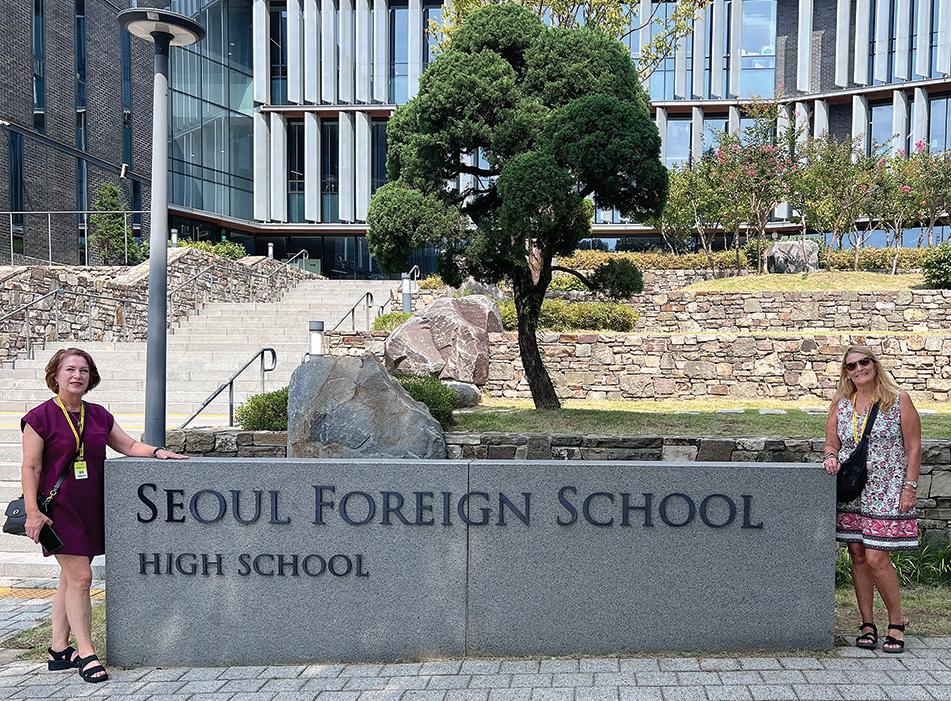
76
Glenn McGhee ’76, along with his wife Sherrie, returned to SFS, where everything seemed both different yet familiar and comforting. He fondly recalled playing soccer on the dirt field and chasing after the ball when it was kicked off, worried they might never get it back if it went over the hill. Glenn was named the soccer team’s MVP in 1976. Since 1993, he and Sherrie have lived in Ecuador, serving as missionaries with the Baptist Bible Fellowship. For the past five years, they have been working in the jungle of Ecuador, building a retreat center for their church. They have three children (in Missouri and Tennessee) and four grandchildren.

80~84Long time friends having dinner in Seoul this summer.
From left to right: Jimmy Rhee ’80, June Milliken ’81, Jennie Purvis ’83, Sam Lim ’83, David Park ’84, and Jay Theis ’80

81Sisters Rose Byrd Gifford ’81 and June Byrd ’81 reminisced about their school and home as they walked around the campus in September. It was Rose’s first time back in Seoul in more than 25 years. Rose lives in Colorado, and June lives in Seoul.

82Georg Breidenstein ’82 and his wife visited SFS in September, marking his first trip back to Seoul since he left in the early ’70s. He attended SFS for first grade in 1970-1971, during which time his family served as German missionaries. His memories of SFS mainly revolve around the elementary school and the back gate leading to Yonsei University. Despite the long absence, he is delighted to return and witness the many
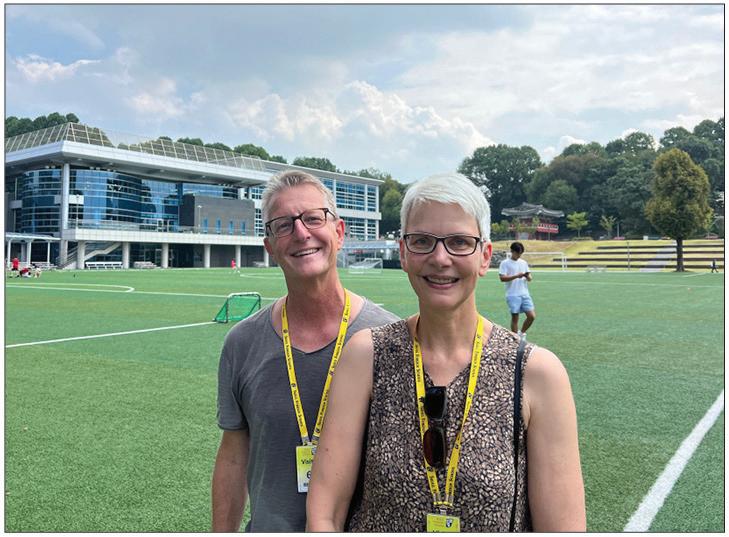
changes on campus. He is currently a professor at Martin Luther University Halle-Wittenberg in Germany.
Bruce Richter ’90 hadn’t been on campus since 1991, when he visited his parents while he was in college. At the time, his father was the Elementary School Principal and his mother was the High School Guidance Counselor. Returning after more than 30 years, Bruce was excited to see how much had changed. The soccer pitch, once just a dirt field where he used to play in the mud on rainy days, is now a healthy turf. He was also thrilled to finally see the swimming pool—something promised during his time as a student but that didn’t open until after he graduated. The gym, which he still calls the "new" gym, felt like a time capsule. He reminisced about all the time he spent there as both a basketball and volleyball player. In fact, Bruce was on the first men’s volleyball team in 1989. Before volleyball, he ran cross country. Drama was another big part of his SFS experience. He was in several plays directed by Edie Moon. However, he humorously admitted that he was too intimidated to take Jack Moon’s biology class, opting for chemistry instead. Bruce now lives in North Carolina with his wife, Angie, who is visiting Korea for the first time. Determined to give her the full SFS experience, Bruce insisted they walk up the infamous hill to campus—but found it wasn’t nearly as long or as steep as he remembered it from over 30 years ago.
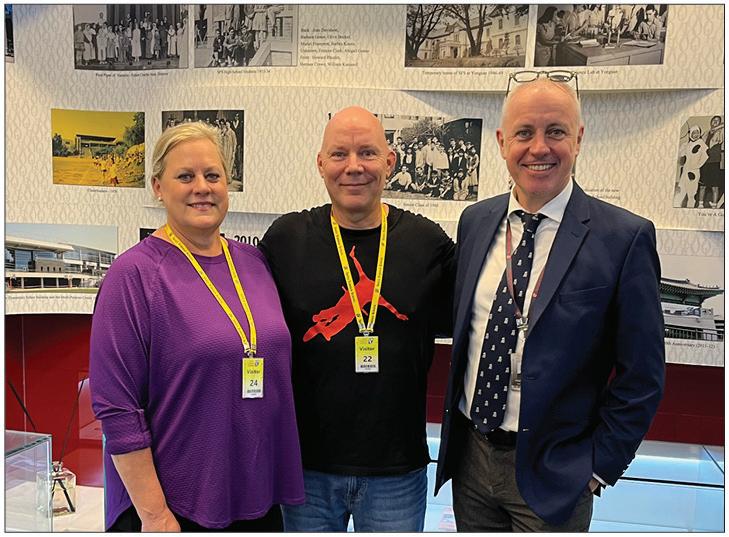

Wittig ’91, and Ralf Wittig ’92 reunited in Los Angeles, where Malin and Ralf recently moved. The group had a fantastic time attending Celebrity Jeopardy tapings as Ken’s guests on October 20, 2024. What a memorable day with friends and fun!
Larry Park ’93, our gracious host for the Los Angeles mini-reunions, is still proudly serving as a Police Sergeant with the LAPD. He is the Officer In Charge of radio communications and police technology, keeping the force connected and up-to-date.
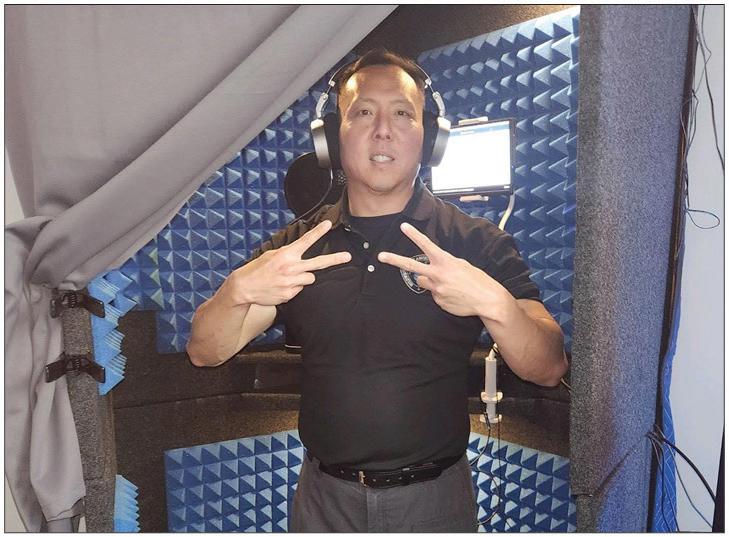
95
visited SFS during their trip to Seoul. Louise had lived in Seoul from 1990 to 1994 and attended SFS from 8th to 11th grade before returning to Geelong, Australia, to finish high school. She has been with Spencer Travel for 22 years, where she met Dale while working in the travel industry. They married in 2022 and now live in Sydney, Australia, where they share a love for travel.
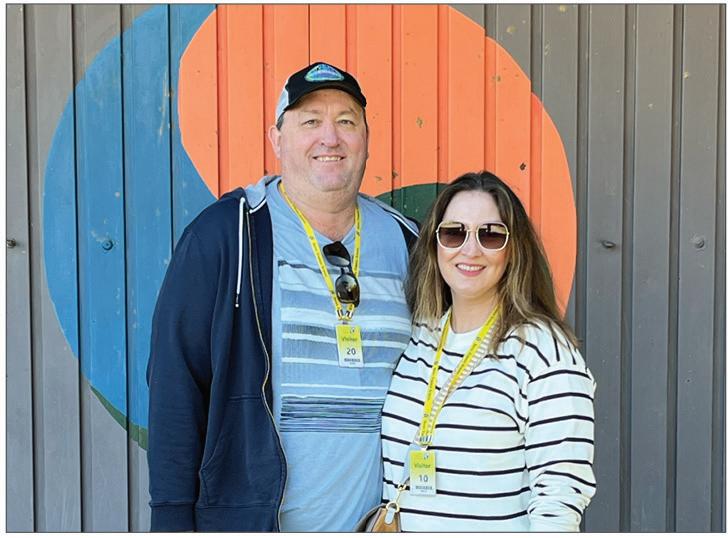
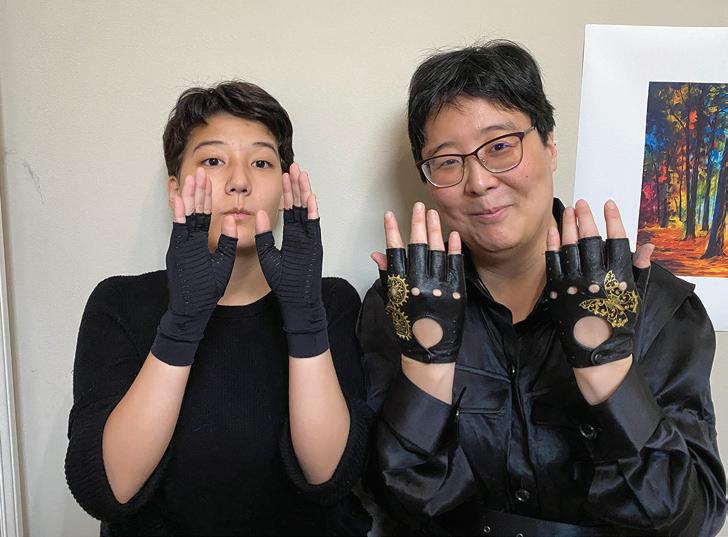
97
Yoon Ha Lee ’97. After years away from music, Yoon Ha began an M.A. in Professional Media Composition (focused on film, TV, and game scoring) through ThinkSpace Education, accredited by Arts University Bournemouth. He is deeply grateful for the patience and guidance his SFS teachers provided during what he considers his messy teenage years. He’s never forgotten how Mr. Raatz taught him to trust his ear, Ms. Preuss’s direction in the orchestra, or how Mr. Huyge allowed him to sit in and listen to the band. Featured in this photo are Yoon Ha and his daughter, who is now in college. Yoon Ha is married to his college sweetheart, and they live in Louisiana.
99During a business trip to Seoul, Jenny Kwon ’99 made an impromptu visit to SFS. It had been 30 years since she last stepped on campus, and she was struck by how beautiful it had become. Walking through the hallways of the Middle School building brought a wave of nostalgia, as she remembered her math and science classes with Dr. Cook and the many conversations she had with friends while sitting on the wooden bench. Jenny now lives in San Francisco and works as legal counsel for the University of California College of the Law, San Francisco.
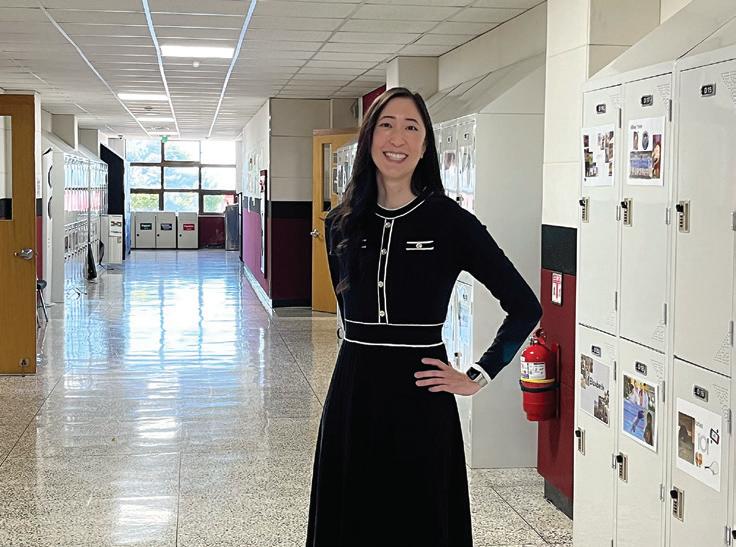
00
Louise Vesterby ’00 visited SFS on July 9, 2024, with her husband, Jon, and their two children, Asbjoern and Thea. Louise attended SFS from 1986 to 1988, and she reminisced about her time as a kindergarten student while walking through the Elementary School hallways and classrooms. Currently
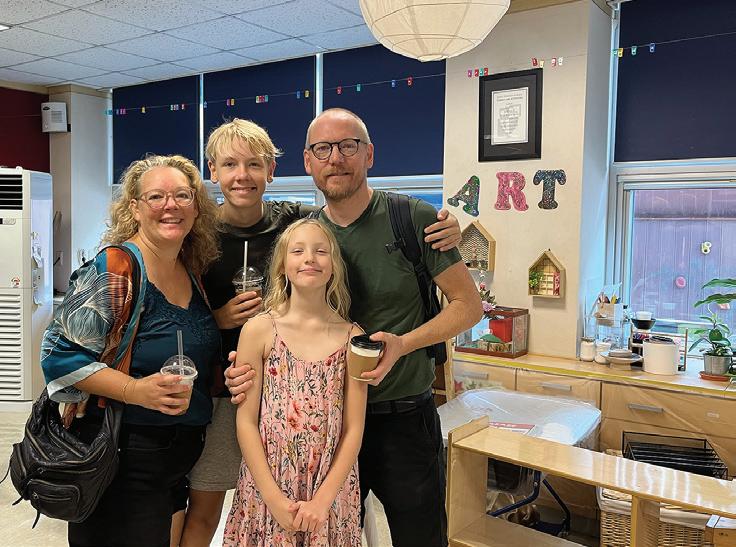
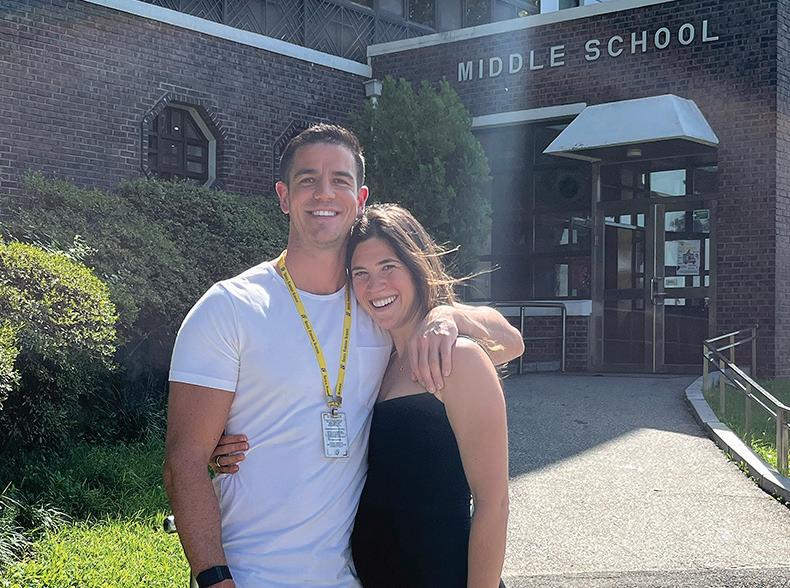
living in Denmark, their visit to Korea was part of a months-long educational and experiential trip around Asia.
06
Martin You ’06, returned to campus for the first time since graduating, accompanied by his wife, Zoe, and their daughter, Bella. He works in cancer diagnostics in the biotech industry and lives in San Diego, California.

Will Lee ’06, returned to Korea this summer and visited campus for the first time in almost 10 years. Will has been teaching middle school science in a New York City public school for 10 years and serves as the advisor for the robotics team. As a student at SFS, he participated in many different activities, including student council, swimming, and music—his numerous appearances in the yearbook say it all! He values the work ethic he developed during his time at SFS, as well as the lessons about belonging and community, which are central to his work as an educator.
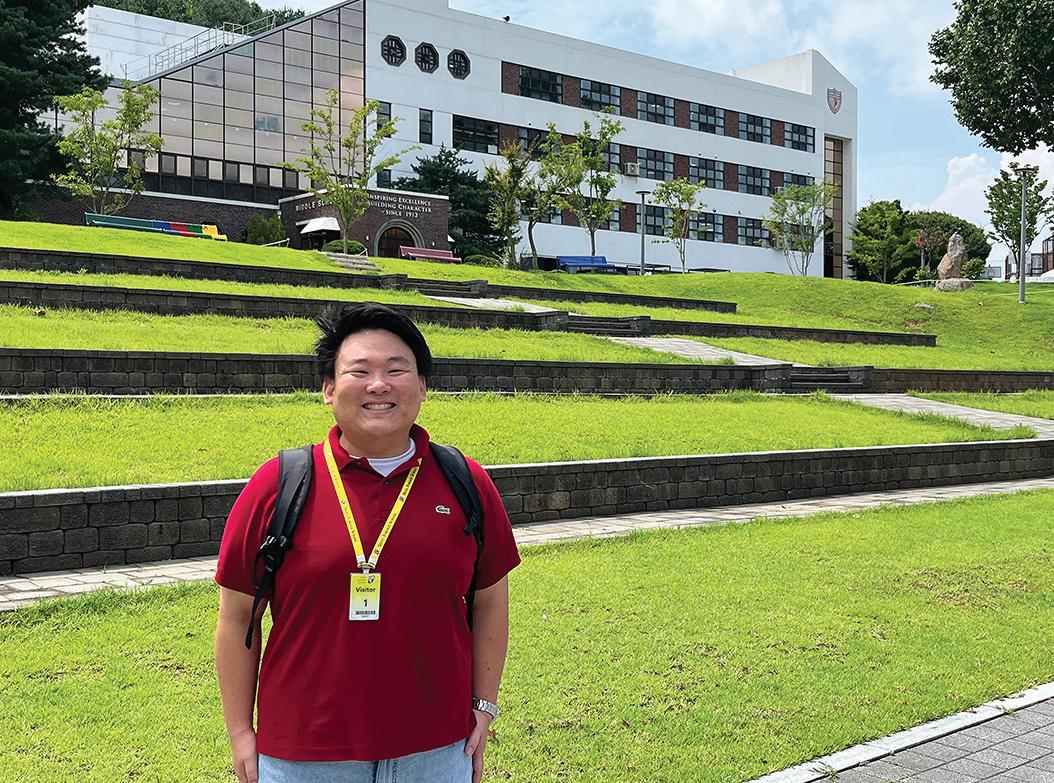
09
Kate Mahler ’09 currently lives in Australia with her husband, Kyle, and is expecting a boy in February 2025. She attended SFS from 2002 to 2005, moving to Singapore after completing 8th grade. It was fun to go through the Middle School yearbook, which she created during her time as a student here!
Jimin Lee ’09 began her school journey at SFS as an elementary student before moving back to Northern California for 11th grade. During a recent visit to campus with her parents, they spoke fondly of their 12 years here. Jimin spotted familiar faces in the photos lining the halls, while her mother reminisced about setting up for the International Fair, and her father recalled the many conversations he shared with Dr. Linton. Now living in San Francisco, Jimin works as a pharmacist at UCSF, but the memories of her SFS days remain vivid.

10
Clayton Baker ’10 and Ben Erny (SFS faculty 2016-2018) were part of the coaching staff for Concordia International School Shanghai during the Super APAC Boys Volleyball tournament, hosted by SFS on October 17-19, 2024. Clayton was a star athlete during his time at SFS and currently holds the school record for Boys Volleyball with 756 career kills and 387 single-season kills. Pictured with Clayton and Ben is Paul Rader ’04.
14
Ysbrand H. Lamers ’14 returned to campus, excited to give his partner, Dahran Çoban, a tour of the British School where he attended from 2001 to 2004. As they walked through the familiar hallways, he
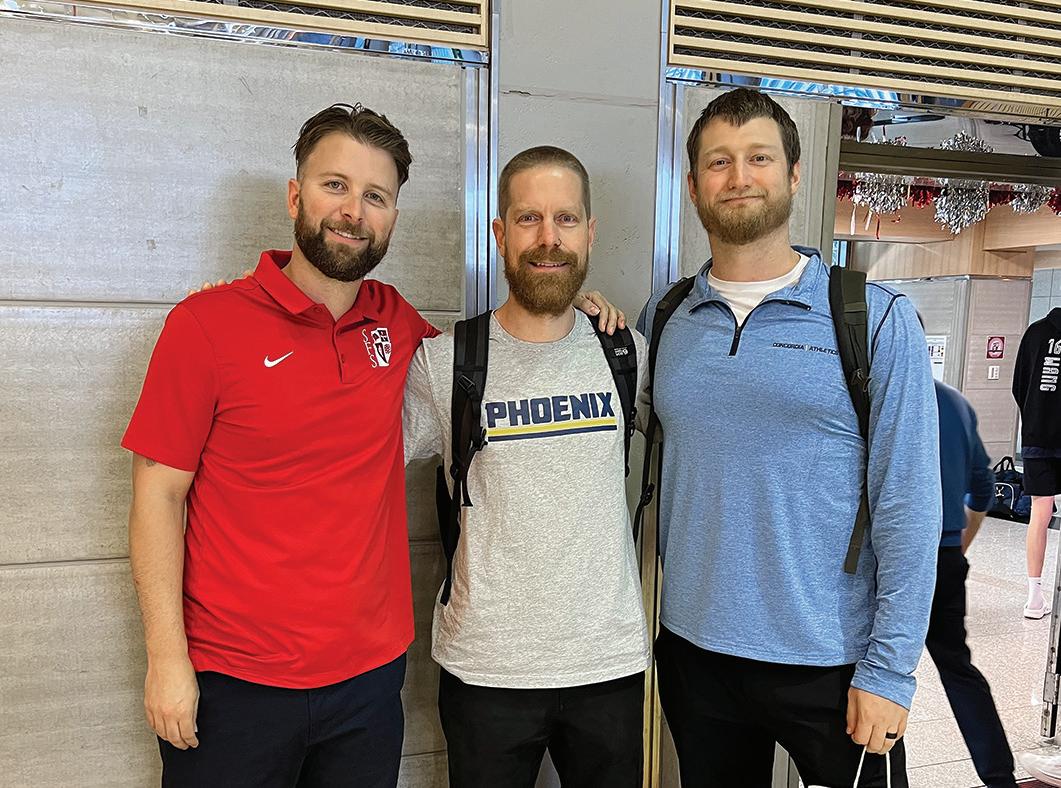
shared fond memories of racing down them as a student and had fun flipping through old yearbooks, spotting photos of himself and his sister. After leaving SFS, Ysbrand’s journey took him to Japan and then China, where he completed his IB Diploma. He studied law at Leiden University in the Netherlands, where he met Dahran. He currently lives in Germany but plans to move back to the Netherlands soon.
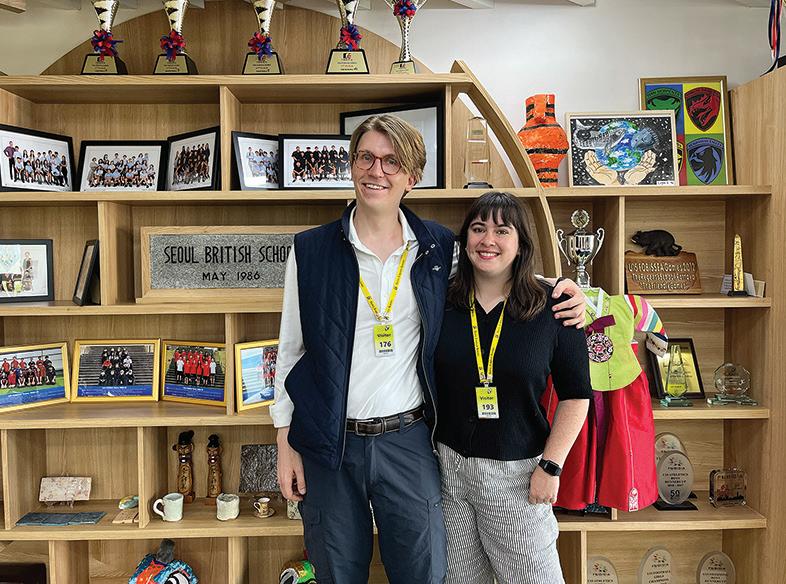
16
Omer Argamon ’16 attended the British School from 2009 to 2012, completing Year 9 before moving away. Reflecting on his recent visit to the school, he described it as a long-overdue return and a true trip down memory lane. Omer now lives in Tel Aviv, Israel.
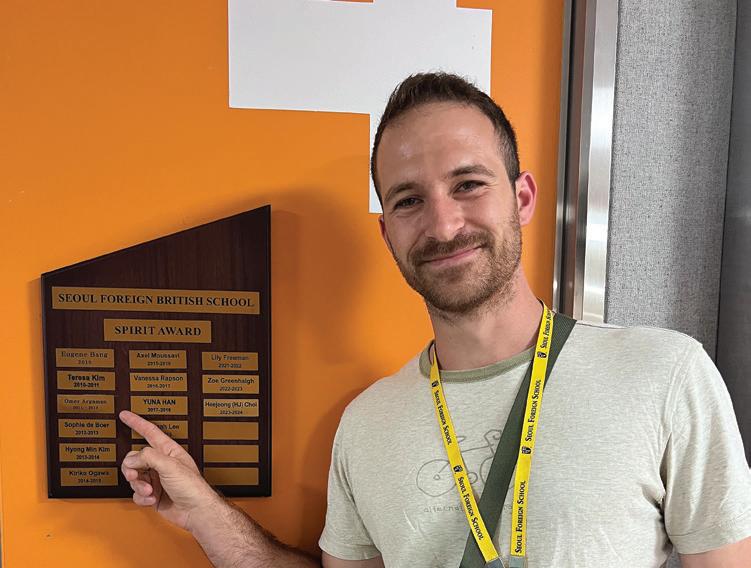
18
Ilona Rodriguez Reed ’18 was filled with joy as she toured the SFS campus with her friends. Although she didn’t get the chance to study in the new high school building, she fondly recalled painting the walls of the old one before it was torn down. After graduating from SFS, Ilona went on to study Drama and History
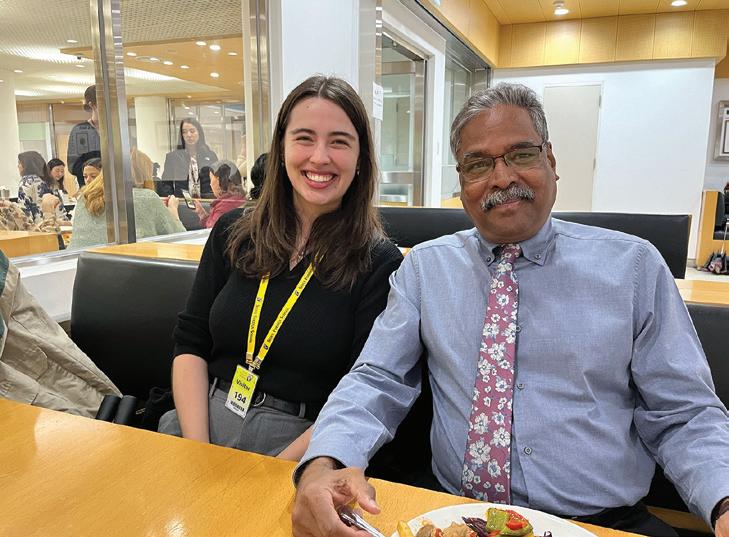
at Brock University in Canada. During her visit, she was thrilled to reconnect with Mr. Elish, expressing gratitude for his patience during her rebellious teen years.
21
Hojae Lim ’21 completed his BSc in Physics with Theoretical Physics (Hons) at the University of Manchester and began an MPhil program in Scientific Computing and Atomistic Modelling at the University of Cambridge this fall. Before leaving Manchester, he was awarded the ’Best Experiments’ prize by the Physics department, the sole recipient from his graduating class.
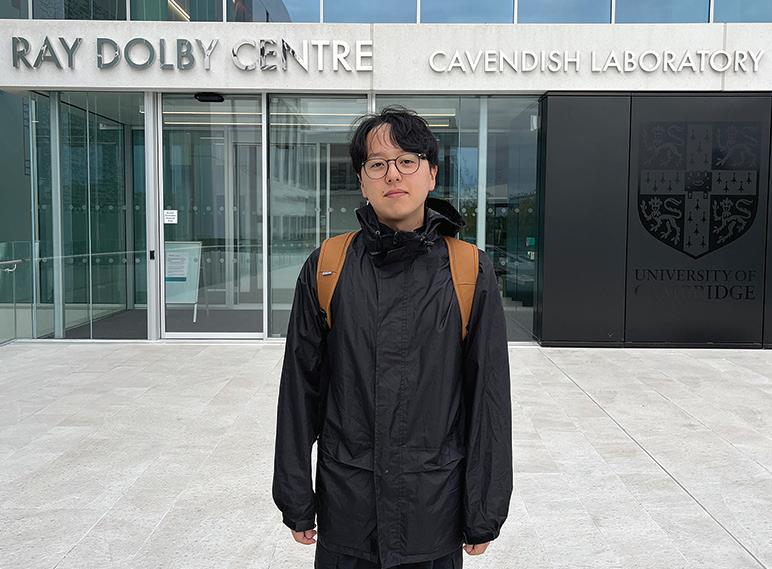
Annette Hong ’21 was excited to reconnect with her former teachers and reflect on her time as a high school student at SFS during her recent visit to campus. As an active member of STUCO, she was a student leader during her years here. Annette is now studying Economics at UC Irvine.
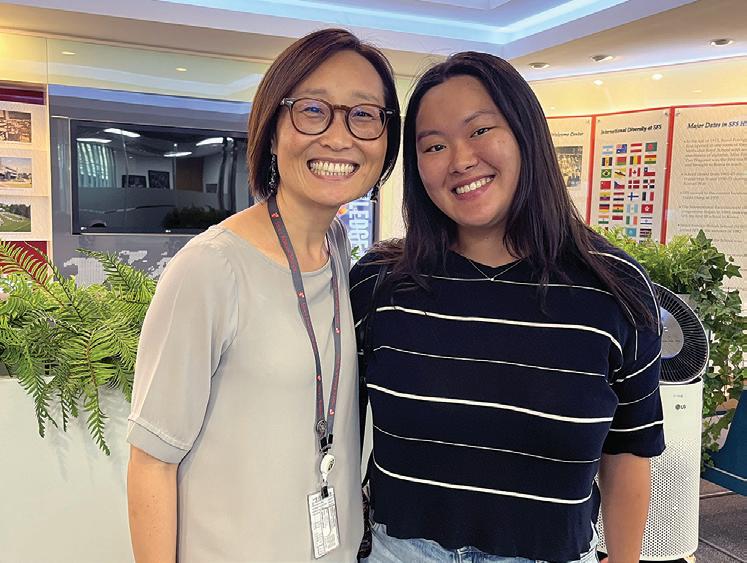
23

Yale University! Janice, who is majoring in Biomedical Engineering, is on the pre-med track and has started volunteering in the Yale New Haven Hospital. Kate, who is majoring in Cognitive Science and English, has recently joined an on-campus lab where she studies computational cognition and works on the board of the Yale Literary Magazine.
JJ (Jungjin) Kim ’23 spoke to the High School Discipleship+ group about what it means to be an ambassador for God, just before his upcoming enlistment in the Korean military. During his time at SFS, JJ was an active member of the Vida Nueva community and served as a Student Rector in his senior year. After completing his first year at Northwestern University, he has taken a leave of absence to fulfill his military service.

24
Ethan Cho ’24 started his undergraduate degree in Environmental Science and Computer Science at Duke University. He is currently working as a sports and news photographer for the Duke school newspaper

The Chronicle and as a staff photographer at the Sarah P. Duke Gardens. Ethan is also working as a research assistant at the Duke Donohue Lab for a project investigating how seed dormancy influences adaptation to different seasonal environments in order to extrapolate how climate change impacts seed biology. He is excited to take advantage of all the amazing opportunities relating to environmental science, computer science, and marine biology at Duke!
Yunjeong Choi ’24 is currently in the Philosophy, Politics, and Economics (PPE) program at King’s College London. YJ took part in interviewing and asking questions to a past UK ambassador to the Democratic People’s Republic of Korea at an event hosted by the Foreign Policy and Security Committee at King’s College London. It was a great opportunity for YJ to learn more about the political structure of North Korea and the ambassador’s experience during his time in the country. It was especially meaningful to YJ as she is South Korean, and has always been interested in North Korean politics, as well as how ambassadors work in the climate.
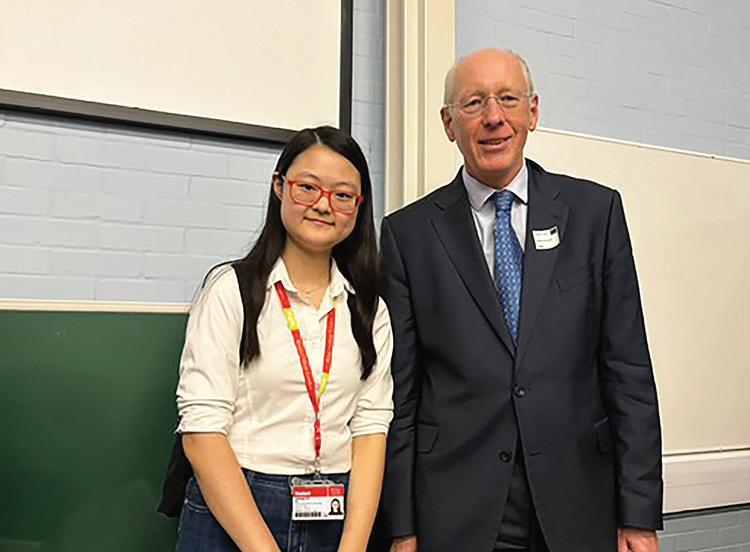
Amelie Rosenberger ’24, currently a firstyear student at the University of Amsterdam, conducted an interview with a licensed psychologist and shared her findings. She created interview guides focused on exploring different career paths across several psychology specializations, including clinical, experimental, and developmental psychology. Amelie interviewed a psychologist who specializes in conflict mediation, assists
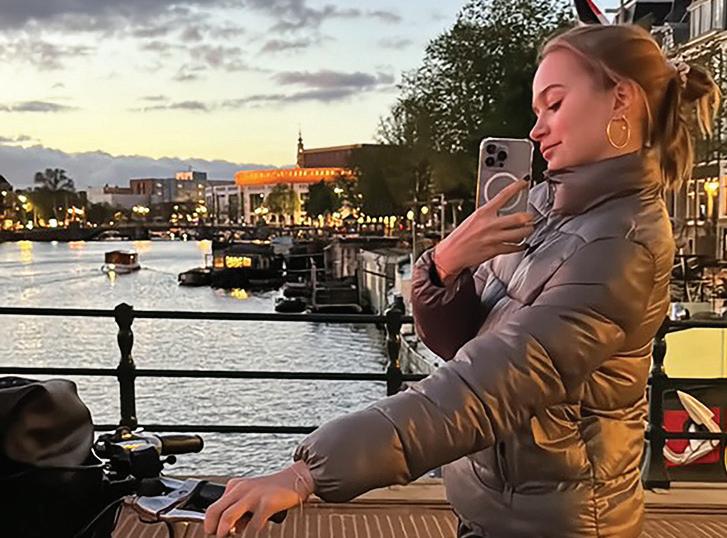
individuals in resolving conflicts, and teaches lawyers about the communicative and ethical aspects of the legal profession. Amelie is loving university life so far!
26Jenny Wang ’26, a British School alumna, revisited the SFS campus on July 30, 2024. While exploring, she recognized herself in several photos, including one highlighting the arts program. She ended her visit by enjoying some time on the swings in the British School Playground. She is now in her junior year in Beijing with aspirations for a career in Chinese politics.
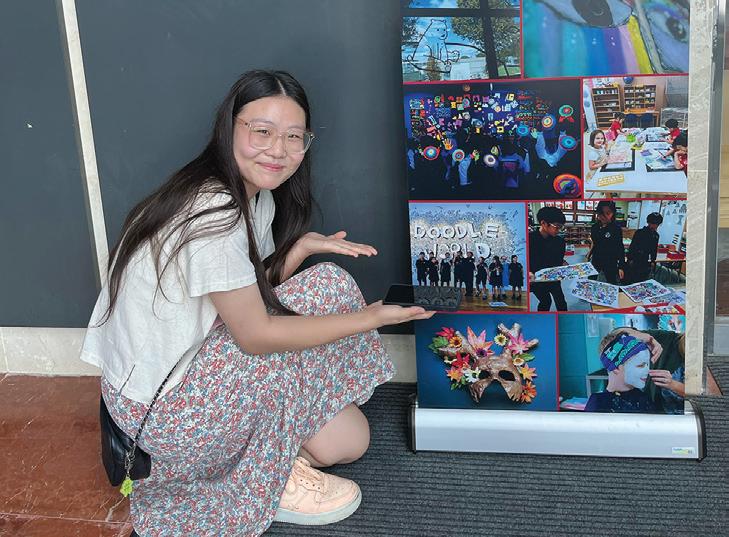
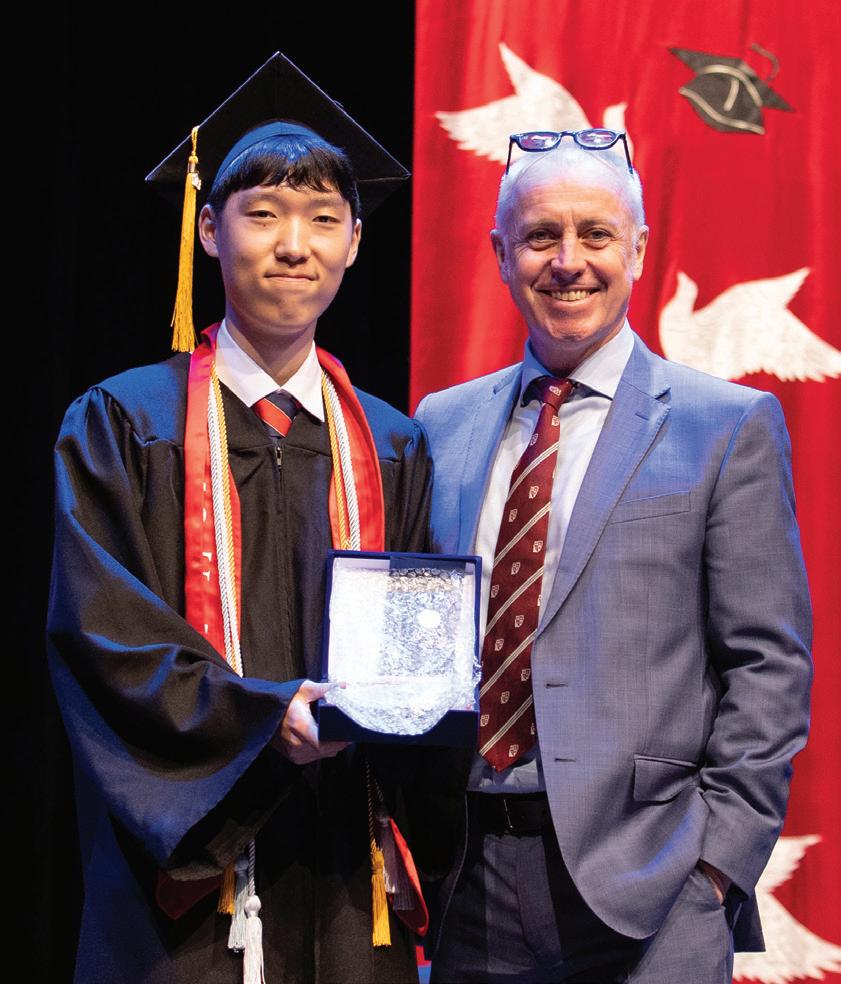
TheAlumni Committee Award recognizes a graduating senior who has made significant contributions to SFS beyond the classroom and is committed to maintaining an active relationship with the school after graduation. Applicants submit a reflective essay about an experience at SFS and its impact on them while also addressing how they plan to strengthen connections among SFS classmates, other alums, and the school. The Alumni Committee reviews all applications, interviews selected candidates, and then makes a final decision.The award recipient serves as a liaison between SFS and their graduating class and joins the SFS Alumni Committee for a three-year term. In addition to the honor, the recipient receives a $1,000 scholarship.
Congratulations to Ethan Cho, the 2024 recipient of the Alumni Committee Award! Ethan exemplifies what it means to be a fully engaged SFS student: he led delegates through MUN conferences, served as co-editor-in-chief of The Spirit, organized WWF outings, and facilitated Stress Zero programs, among many other contributions. As a Senior Class Representative, Ethan helped create lasting memories for the class, including planning their Senior Trip. If you followed the sfs_seniors2024 Instagram page, you know that Ethan was the person behind the posts. He is now at Duke University, majoring in Environmental Science and Computer Science.
There is so much happening at SFS on any given day that it would be impossible to capture everything in one magazine, so we’ve rounded up a few events that happened this semester at Seoul Foreign School.
Ishel Brimhall British School Art Teacher
Students at the British School are exploring the lives of artists and individuals who have left a lasting mark on the world. We are discovering how some people throughout art history have had such a strong influence that their work continues to inspire people today.
In this unit, students are studying the works of artists who have made history. For instance, in art class, students learned about Keith Haring, whose artwork has been inspiring people for decades. Students used mixed media techniques to create a range of art pieces inspired by his influential style.
This unit is so exciting for students in Years 3 and 4. As soon as they enter the art room they become focused creators inspired by Haring’s drawing style. In just a few art classes students created many images that represent love, friendship, teamwork, kindness and unity. The students are so engaged that they are making enough artwork to fill the halls of the British School!
What could you create to make a difference? Let’s explore!
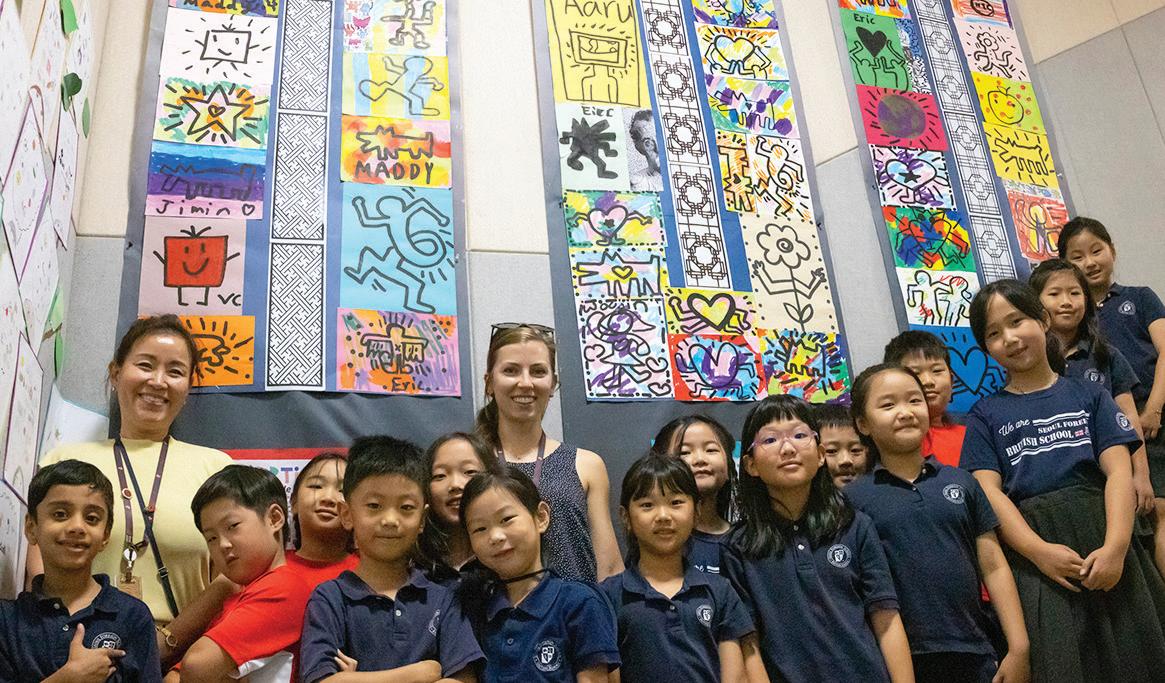
There’s always something happening at SFS. Follow us on social media and don’t miss an update!
Website: www.seoulforeign.org
Instagram: @seoul_foreign_school
Facebook: https://www.facebook.com/seoul.foreign.school/
Youtube: Seoul Foreign School
LinkedIn: Seoul Foreign School
Twitter: @SFS1912
Mr. Pollock had a treat for his DP Economics on the first day of school, as they engaged in a “Candy Shop” activity to learn the basics of supply and demand. A “shopkeeper” was chosen to set prices for the candy, while the rest of the students placed orders for their desired quantity at each price. Using real money and candy, students were curious and excited to see how demand for the goods was influenced by the changes in price. The information was used to draw our first demand curve, which we’ve been able to reference throughout the year as our knowledge grows.

Lauren Elliott High School Teacher Librarian
Our Grades 11 and 12 Diploma students are so busy! Often reading for interest or pleasure is the last thing on their minds. Some of our DP classes have partnered with the High School Library to encourage free reading, with a focus on increasing subject knowledge.
Students in both Ms. Emrich’s DP ESS class and Ms. Johnson’s DP Music class have visited the High School Library to hear book talks from Mrs. Elliott. These quick 1 minute book introductions from a selection of books related to the class subject, biographies, non-fiction, fiction, or graphic novels, introduced students and teachers to books we have available here in the library that could support their classroom learning.
Students and teachers are now starting each class with 10 minutes of free reading around their subject. Not only is this giving students the opportunity to extend their learning, they are also taking time in their day to read a book of their choice.

Dear SFS Community,
Thank you for your ongoing generosity and philanthropic support to help drive our mission forward. I want to take this opportunity to express our gratitude for your generous support which has played a crucial role in helping us achieve our mission and positively impact our students and community by creating new opportunities for learning. With this momentum, we are off to a great start to the school year, with 100% participation from the Board of Governors and Senior Leadership Team and more than 77% from our faculty and staff. We have raised KRW 152,098,939 for the Annual Fund and a total giving of KRW 185,244,026 as of October 25, 2024.
The Annual Fund is a vital fundraising initiative which makes a direct impact on school learning. Each year, these voluntary charitable donations allow us to go beyond traditional measures of success, from supporting new programs, improving our facilities and bringing world-class professional development to our educators. Here are a list of projects that received support from the Annual Fund last year and you can read more about the impact on the following pages 60 and 61:
•
In addition to the Annual Fund, your philanthropic support in other designated areas of need, such as the Building for the Future Fund, Scholarships, Golf Training Facility and Temporarily Restricted Funds was truly appreciated in making an additional impact on our students’ learning journeys.
Every gift, regardless of size, makes a significant impact. We encourage you to join us in this effort, knowing that together we can make a difference. Your support not only fuels our programs but also inspires others to get involved. Thank you for your ongoing commitment and support to SFS and our shared mission. We are excited about what the future holds and are committed to using your support wisely to continue making a difference.
With much appreciation,
Yoojin Um Director of Advancement
Every gift has a major impact on our students and community. Here are a few testimonials from our community members on how your gift enhanced the learning experiences of our students.
“I am grateful for the resources that the school continuously provides: a wide range of digital resources, brand new iMacs, brand new Wacom tablets, and full Adobe Creative Cloud licenses demonstrating a strong commitment to supporting creative excellence. The new iMacs and Wacom tablets in the High School Digital Lab are functioning as transformative digital tools across the grade levels, especially within the new MYP Media Arts course, MYP Design course, and the new DP Film course contexts. Access to these advanced digital tools allow students to explore media, film, and graphic design with professional-level precision.
In addition, these state-of-the-art digital tools help me align my classroom practice further to the Universal Design for Learning (UDL) principles as a working professional. These newest advancements encourage personalized learning pathways and student choice in how students express their ideas, which aligns well to the principle of meeting diverse learning needs through multiple means of representation.
This investment in technology empowers students to experiment, collaborate, and develop skills that are crucial for future careers in creative industries. Overall, the SFHS digital lab has become a hub for innovation, where students are encouraged to excel and explore their full creative potential, and also contribute to their
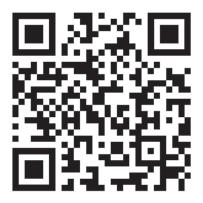

communities through their creations. Thank you for your warm support and contributions to such advancements.”
MICHELLE HWANG, F aculty
HS M y P D e S ign an D M e D ia a rt S
"The iMacs have significantly impacted my learning as I get to do explorations on After Effects and different apps on the iMacs. I have done a lot of complicated and advanced animations thanks to the iMacs as they are really efficient and fast."
YATHARTH SINGH , g ra D e 10
“I have been using the Wacom tablets for illustrating using adobe during the Media Arts class. I have also been using them for clubs like Frame by Frame. I have been really enjoying them. They are incredibly useful and a great way to bridge the gap between me drawing on paper and me saving things to Google Drive.”
— JIMENA MARTI, g ra D e 10
“I love that the school has made a warm, very wellorganized and well-advertised (with ample advance notice) effort to engage parents of all age groups to become familiar with the MYP.”
“The presentation around how assessments work was really great, especially breaking down each grade level, and the communication between the parents at the table to learn from each other.”
“Attending MYP workshops helped me by staying informed, and fostering a positive learning environment at home. Thank you for this.”

“As a writer for The Spirit, I had the amazing experience of interviewing Neal Shusterman. I loved the behind the scenes peek into one of some of my favorite books. It was fascinating to share unique insights from his creative journey—including his third grade short story—to our community.”
JINA SONG , g ra D e 10
"From June Hur to Neal Shusterman, I can say one thing for certain: they make me aspire to be a better writer. From author visits, I learnt about the publishing process, worldbuilding, and dialogue, all of it making me daydream about possibilities for the future. So for that, I say "thank you" because I truly find author visits to be some of the most informative and impactful guest visits for all readers, writers, and students alike."
ZOE
GREENHALGH , g ra D e 10
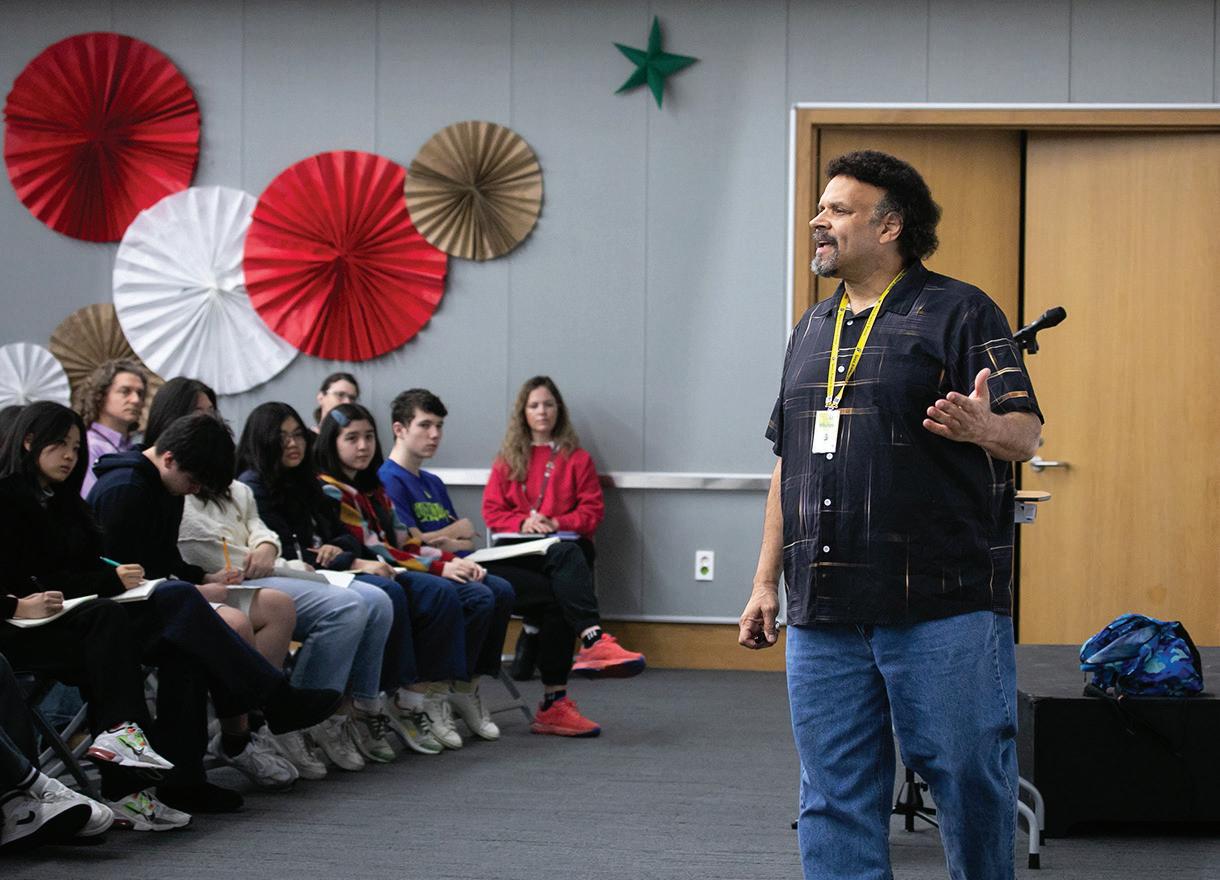
“The KORCOS IEC conference was an invaluable experience, allowing our teachers to connect with educators across disciplines and exchange innovative ideas. These new connections have inspired fresh strategies to enhance student learning in the classroom. Additionally, the Universal Design for Learning (UDL) training has been instrumental in ensuring that all of our unique learners are supported. By providing flexible pathways for engagement, representation, and expression, UDL empowers every student to succeed, regardless of their learning style. This professional development is directly contributing to the growth of our teachers and the success of our students.”
NICO VISAHAN, FACULTY, MYP/DP MATHEMATICS
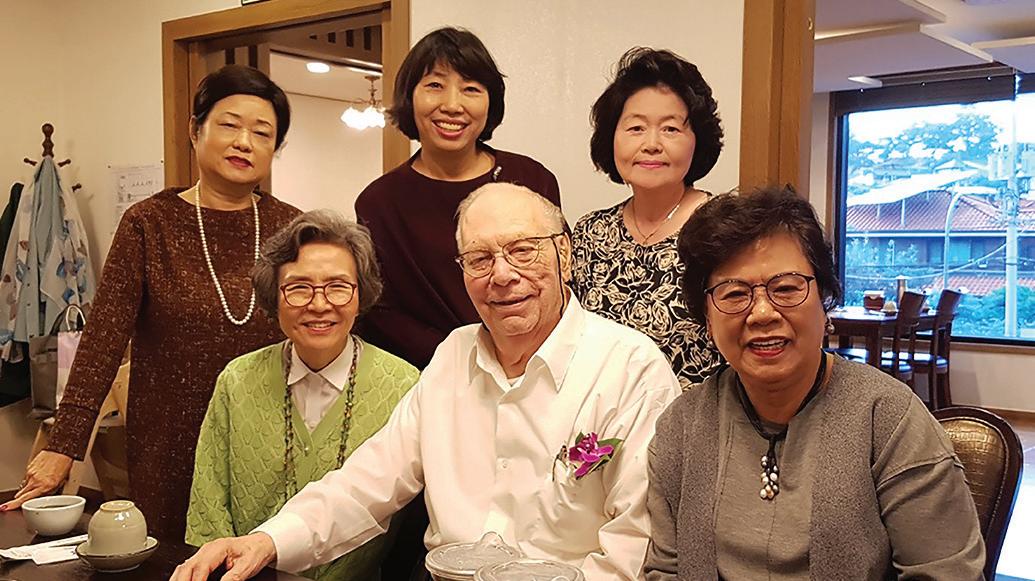
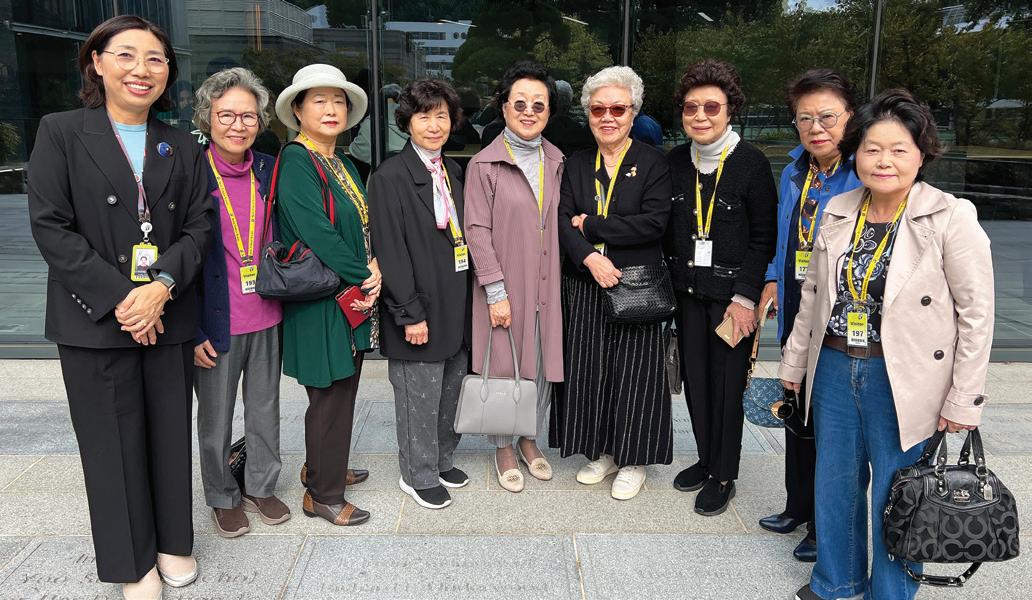
SFSRetiree staff made a collective gift in honor of Mr. Richard F. Underwood engraving a Centennial Stone in his name. They were happy to make this contribution for the love and memories they shared together with Mr. Underwood while wishing for the growth and support of the future of SFS. Thank you so much for your dedication over the years and your generous support!
We, SFS retiree Korean staff, are pleased to be a part of donors for the benefit of Seoul Foreign School. We are also happy to have an opportunity to pay a tribute to Mr. Richard F. Underwood who passed away on June 25, 2023 through our donation for a Centennial Stone. It’s not too much to say that Mr. Underwood is the cornerstone of what Seoul Foreign School is now. His love for SFS was so unfathomably deep that it felt like he would live as Head of SFS forever. He led a very frugal life while he was running the campus. We would say that his thrift and saving reflected not only his discipleship as a missionary but his deep affection for SFS. We do believe that his spirit and love
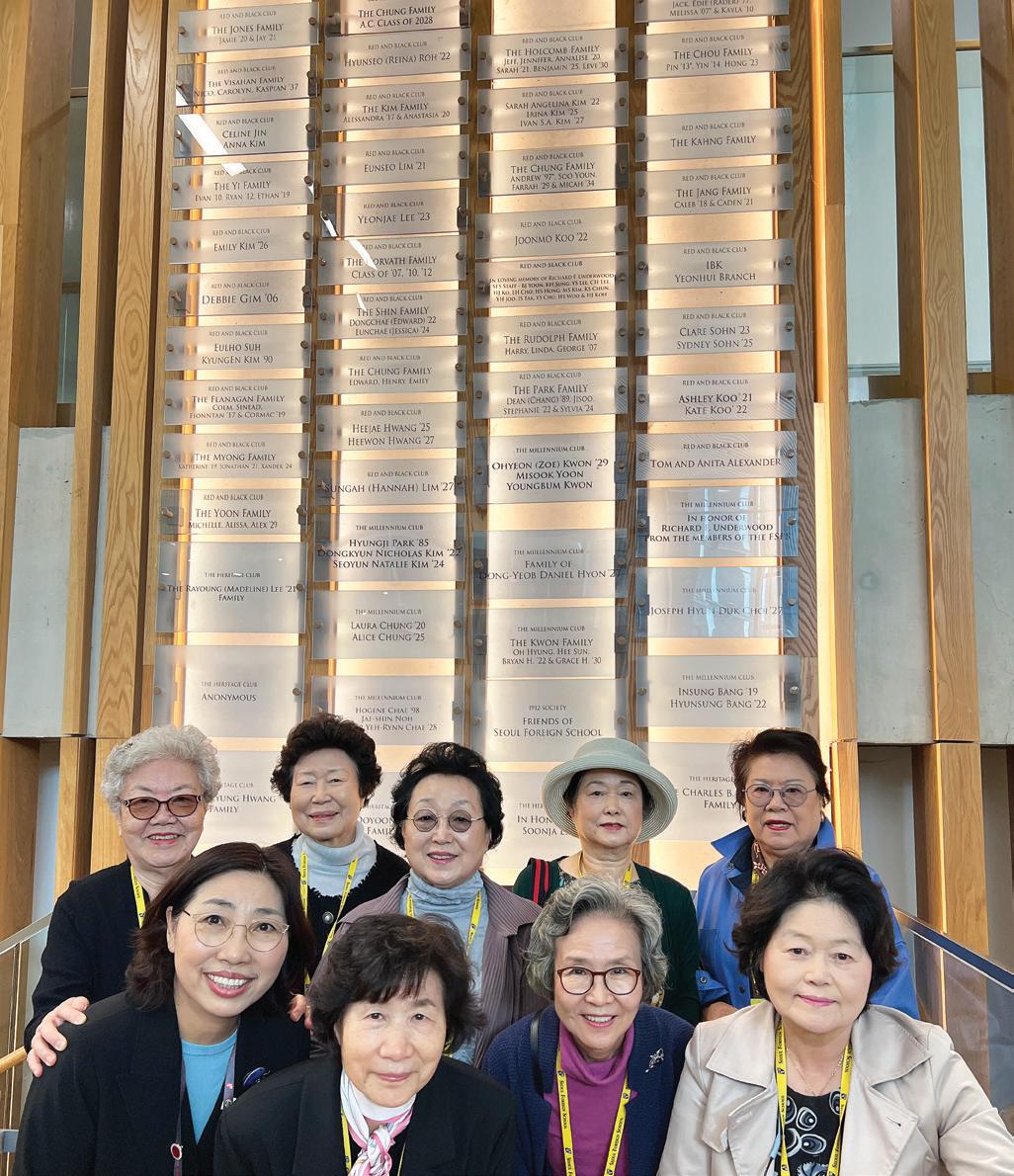
is still alive all around the campus so that it may be his legacy for the unfailing prosperity of Seoul Foreign School.
It was a blessing that we worked at Seoul Foreign School for many years, sharing joys and sorrows with one another during our service to the school. We hope that the school will have more support from more donors for the students and the advancement of the school in the days to come. We would like to say that the Centennial Stones and Donor Wall drive is undoubtedly a brilliant move. We appreciate that we could take part in this project.
Seoul Foreign School will be in our prayers for God’s overflowing grace and blessings.
Cordially,
BuhmJin Yoon, KeeHyun Sung, ChangHwan Lee, YoungSun Lee, Hee-Je Ko, EunHi Cho, HyunSook Hong, MyungSook Kim, KiSoon Chun, In-Sil Tak, HyeSun Woo, YooSoo Cho, YoungHee Joo & HaeJin Koh SFS Retiree Staff
Centennial Stones are exclusive and limited to 100 stones which are engraved on the entrance of the High School building. We have 6 Centennial Stones that are available at the moment. If you would like to leave a lasting legacy and contribute to the future of Seoul Foreign School, please contact the Advancement Office at advancement@seoulforeign.org
The ‘International Businessperson of the Future Award’ is given to a graduating senior who is pursuing a college degree leading to a career involved in the private international business sector. This scholarship was endowed anonymously in honor of Kevin and Ellen O’Donnell. Kevin O’Donnell forged a career in international business and along the way, he brought the Peace Corps to Korea. Ellen O’Donnell spent her early years in China, the daughter of medical missionaries. She happily moved a family of eight children from Ohio to Korea, to support her husband’s dream. Throughout their lives, Kevin and Ellen have been positive role models for values and ethics. It is in their honor that the Seoul Foreign School International Businessperson of the Future Award is presented to the graduating student who best exemplifies a strong set of personal ethics and fairness in dealing with others, who shows a facility for exchange and who visualizes a career supporting international understanding through private enterprise and business development. Last year’s recipient was Jioh Kim ‘24.

Kim has lived all over the world. She is bilingual in Korean and English and has been studying French for several years. She is passionate about the Arts Council and has been president, treasurer and communications team member, and Jioh has also been a performer of our HS dance team and has been in two of our major theater productions on campus.
Jioh wants to work in either the fashion or entertainment industry as a creative director of projects or a company. At the university level, she wants to gather skills in marketing, communications, advertising, business, the arts and more in order to reach these goals. She is at the University of Amsterdam studying Media & Culture and Business Administration.

‘The American Journal of Health Promotion Award’ sponsored annually by Michael O’Donnell ‘70, is awarded to an SFS Junior who best exemplifies optimal health in physical, intellectual, social, emotional and spiritual dimensions. Nicole Kang was the recipient in 2024.
TheAmerican Health Promotion Award 2024 goes to Nicole Kang. Nicole was in Grade 11 (at the time of receiving this award), and she is the perfect embodiment of this award. Nicole is a member of the varsity golf and cheer teams; her achievements in the IBDP Sports, Exercise and Health Science have been excellent. Nicole is curious and intrinsically motivated, and she serves the community through her HEAL club which is present at all sporting events helping the EMT. She is also a positive and enthusiastic influence on her peers.
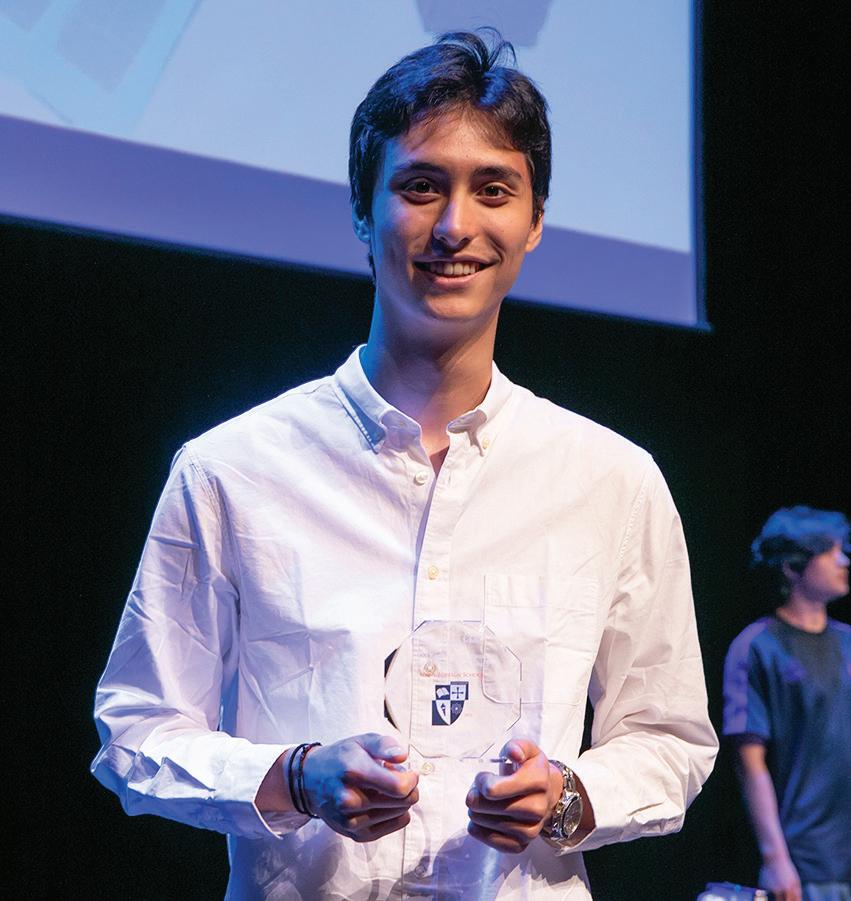
This scholarship has been sponsored by Langston K. Rodge (Former Assistant Head of School - Operations) and Linda Rodge (Former Faculty) to a graduating senior who has demonstrated outstanding talent and abilities in either Performing or Visual Arts. The recipient of the ‘Langston K. Rogde Memorial Visual and Performing Arts Scholarship Award’ was Tyler Yoon ‘24.
Tyler Yoon has been involved in theatre for several years and in several contexts. He has shared his effervescent talent on campus, in Seoul, and internationally. On campus, this student has brought a wide range of characters vividly to life on all three performance stages and has developed consistently imaginative standup comedy, in-depth world theatre exploration, and expansive directing vision in DP Theatre. In Seoul, he has actively pursued opportunities such as regular improvisation training and performances. And internationally, he has been an inclusive and collaborative ensemble member of the APAC Theatre troupe which has taken him to festivals in Seoul, Manila, and Hong Kong.
With Jack Moon’s retirement in December 2019, we announced the launch of the ‘Jack R. Moon Biology Scholarship’ to honor Jack’s 35 years of service at Seoul Foreign School and to help continue his passion for Biology and model the tradition of inspiring academic and creative excellence. This award of $1,000 (USD) is awarded to a Grade 11 student who has a passion for Biology and exhibits the mission and values of Seoul Foreign School. With the generous support of our SFS community, we were able to present the Scholarship for the fourth year. The 2024 recipient of this award was Ian Kim ‘25 and he shares his summer experience below.
Hello everyone! My name is Ian Kim, and I had the honor of being named the 2024 recipient of the Jack Moon Biology Scholarship, which I received at the end of my junior year. This scholarship allowed me to achieve a dream of mine since childhood. I will explain the inspirations behind my journey and the valuable lessons I've gained from this experience.
HOW DID I UTILIZE THIS SCHOLARSHIP?
Right before summer break, I contacted a learning center for refugee and migrant children. For three months, I worked
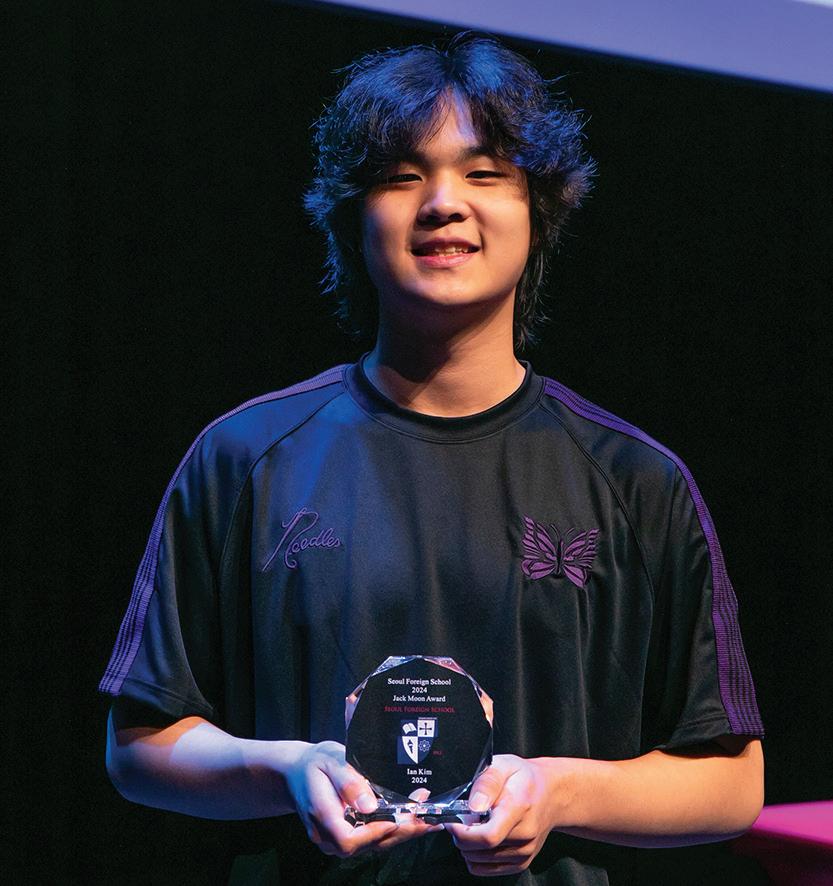
with eight children—four boys and four girls—to co-author a series of picture books focused on pathogens (bacteria and viruses).
Each child illustrated one virus and one bacteria and gave them superhero or supervillain "backstories." Afterward, I weaved their pathogen characters into stories designed to teach children about how pathogens work, with the hope of sparking a passion for microbiology in readers, while also inspiring the refugee and migrant children who co-authored the books.
The illustrations, drawn by a team of artists given the
In a broader sense, I learned that pursuing the flashiest projects for recognition isn’t always necessary. Sometimes, it’s okay to let your inner child take over. “ ”
children’s sketches, are expected to be completed in a few months, and once finished, I plan to donate the books to the elementary school library as well as libraries across the USA, where I plan to pursue higher education.
As a child, I frequently read about microbes, so much so to the point that I made my own encyclopedia of pathogens using pieces of A4 paper folded in half and stapled along their crease.
This, along with my passion for entomology, sparked my interest in biology as a whole. However, I was often alone in my hobby, as others often found diseases to be morbid or insects to be disturbing, though they are an integral part of our world.
As the president of the school science club, I found an outlet to share my passion for science with others. However, after opening my old drawer with my book of diseases, I realized that I hadn’t focused on projects in the areas I’m most passionate about. With the help of the scholarship, I was finally able to not only revisit my childhood but also inspire a marginalized community in Korea.
In a scientific sense, creating the books allowed me to delve deeper into my interest in pathogens. I discovered real-life pathogens that possess "powers" similar to those the kids imagined, such as the ability to produce electricity or ice, or an immunity to extreme radiation.
In a broader sense, I learned that pursuing the flashiest projects for recognition isn’t always necessary. Sometimes, it’s okay to let your inner child take over. Initially, I considered interning at a lab like many others, and while internships are valuable for those wanting to deepen their understanding of
specific areas of biology, I found that creative projects like this one have potential to have a more profound impact. By inspiring the refugee and migrant children, along with the readers of their books, I hope to spark a love for biology that they can share with others in the future.
To a generation of children who have grown up with a negative image of viruses due to COVID-19, I was able to provide insight into the many beneficial pathogens that exist in our world. I hope that they will, in turn, share this knowledge with family members or school friends, helping to spread a more accurate understanding of pathogens. In addition, I found the experience to be a beneficial way to connect with children from other cultures on a deeper level, which was only possible through the scholarship.
I want to express my gratitude to the donors for investing in an experience that has impacted many, including myself. As I plan to study either microbiology or entomology for my undergraduate education then attend medical school to specialize in pathology, this opportunity has broadened my perspective and prepared me greatly for my future career.
We are continuing to perfect the books for the remainder of the school year, publishing them one by one. They will be available both digitally and in print, open to any children in the elementary school. I also plan to create a website that may allow children worldwide to submit their own drawings. Additionally, I will be donating the books to libraries across the USA, where I am originally from. Hopefully, if the project garners enough attention, I’ll be able to continue publishing these books in college.
As of October 24, 2024
Faculty and Staff (F/S), Alumni (A) (USD 1 = KRW 1,380.1)
The Heritage Club
1912 Society
The Millennium Club
Red and Black Club
The Crusader Club
The Crest Club
Centennial Club
$ 100,000 +
KRW 100,000,000 +
$ 50,000 - 99,999
KRW 50,000,000 - 99,999,999
$ 10,000 - 49,999
KRW 10,000,000 - 49,999,999
$ 5,000 - 9,999
KRW 5,000,000 - 9,999,999
$ 2,500 - 4,999
KRW 2,500,000 - 4,999,999
$ 1,000 - 2,499
KRW 1,000,000 - 2,499,999
$ 100 - 999
KRW 100,000 - 999,999
The Legacy Club Under $ 99 Under KRW 99,999
Ian Chung ’36
Junghan Kim and Kyungmi Lee
RED AND BLACK CLUB
Anonymous (1)
Olivia Cho ’28 Family
Mikl Choi ’33
Yon Sog Choi and Jennifer Oh
The Chung Family - Ashley ’28
The Cremers Family
Colm and Sinead Flanagan (F/S)
Goldman Sachs Matching Gift
Jun Family - Christian ’36 and Sarah ’38
Sieun (Ashley) Kay ’31
Yule ’31 and Jeanne ’33 Lee
Davin Park ’29
Minsoo Choi and June Kang (A)
Mathilde ’21, Hugo ’26, Marieke and Jeff Doherty (F/S)
Goldman Sachs Matching Gift
Maryclaire Seo Yeon Kelly ’35
Anonymous (2)
Ethan Albano ’24 (F/S)
Isaiah ’38, Abe ’35, Tim and Cyrielle Bazin (F/S)
Eric Choi
Ella ’24 and Gwyneth ’25 Chun
Claire Francis (F/S)
James and Sarah (Hubbard) ’71 Gunberg (A)
Noah Heo ’35
Michael and Danielle Jarvis Lucchesi (F/S)
Agnes Ji (F/S)
GaHyun Kim ’33
Joohun ’22 and Jueun ’25 Kim
Roel Kim ’34
Nancy Le Nezet and Adam Bernard (F/S)
Chloe Lee ’31 and Yoojin Um (F/S)
Piotr and Marta Mazowiecki-Kocyk (F/S)
Emily Lauren ’33 and Olivia Catherine ’33 No
Emily and John Park Family (A)
Susan Park and Minhoo Bae (F/S)
The Prest Family (F/S)
Jason Ro ’95 (A)
Grace Song (F/S)
Lei On (Ian) Tou ’32
Jessica ’15, Michael ’18 and Stephanie ’25 Woo (F/S)
Joanna and James Yoo (F/S)
Anonymous (7)
Kurt, Andreea, and Zoey ’38 Amundson (F/S)
Man Ok Baik
Jamie Bacigalupo Song (F/S)
Melissa Brabon (F/S)
Joanna Brown (F/S)
Nancy and Lexis ’30 Calimlim (F/S)
Dana Cha (F/S)
AhYoung Chi and Dave Han (F/S)
SooJin Cho (F/S)
Ilsoo Choi (F/S)
Makayla Choi (F/S)
Moses Choi, Dahee Kim, Adeline Lia Choi ’34
Reina Choi (F/S)
Yun Jeong ’24 and Hee Jeong ’28 Choi
Andrew Chung ’97, Soo Youn Nam, Farrah ’29 and Micah ’34 Chung (A)
Chan Kun Chung (F/S)
Alejandro ’34 and Leonardo ’36 CuelloFederighi
The Elliott Family (F/S)
Kley and Alisha Feitosa (F/S)
Ann Fuell
Dave Gagnier (F/S)
The Gilmores (F/S)
Ling Guo (F/S)
Jee Hye Ha (F/S)
Ryan, Sophie, William ’32, Florence ’34 and Alfie ’37 Hammerberg (F/S)
Catie Han (F/S)
Sam Han (F/S)
Chenhsi and Carl Hanson
The Holbrook Family (F/S)
Choongpyo Hong (F/S)
Chris, Julie, Calla ’36 and Zinnia ’39 Horan (F/S)
Byeongguk Jeon (A)
Sungwoo Jo ’28
Matt, Sophia, Caden ’35 and Kaya ’36 Johnson (F/S)
Jamie ’09 and Jonathan ’11 Jun (F/S)
Jiyoung Jung (F/S)
Suho Jung ’35
Elenore Kang (F/S)
Seung Min Kang (F/S)
Ted Yekwon Kang ’34
Catherine Keep (F/S)
Catherine Kim (F/S)
Crystal Kim (F/S)
Esther H. Kim (F/S)
Hannah Kim (F/S)
Jean Kim (F/S)
Jinheon ’27 and Gahyeon ’30 Kim
Jinny Kim (F/S)
Marie Kim (F/S)
Michelle Kim ’00 (F/S) (A)
Nikki Kim (F/S)
Paul, SueKyung, and Hazel Kim (F/S)
Kimberly Clark Matching Gift
Eunha Ko (F/S)
Dongwook Koh (F/S)
Soora Koh (F/S)
Samuel Ku (F/S)
Jae Eun Lah (F/S)
David Lee ’29
Geonchul Lee (F/S)
Helen Lee (F/S)
Hugh Lee (F/S)
Jinseop Lee (F/S)
Joshua Jihan Lee ’32
Kyoungjae Lee (F/S)
Seulgee Lee (F/S)
Seunghee Lee (F/S)
Lee-Seo Family
Arabella Lespine (F/S)
Hayoon Lim ’33
Sooyeon Lim (F/S)
Yanghee Lim (F/S)
Vasile Lozneanu (F/S)
Zuzana Matusova (F/S)
Elizabeth McGarroch-Slack (F/S)
Mariana Miroiu (F/S)
Donghoon Moon (F/S)
Rebecca Murray (F/S)
The Murphy Family (F/S)
National Taiwan Normal University
Justin Park (F/S)
Sarah Park (F/S)
Paul ’04 and Hannah Rader (F/S)
Jacqueline Sadohara
Shannon and Justin Smith (F/S)
Gracie Suk (F/S)
The Sykes family (F/S)
The Teather Family (F/S)
Kelly Yuan Tian (F/S)
Prema Thomas and Elish Pangiraj (F/S)
The Visahan Family (F/S)
The Walker Family (F/S)
Donna Wang (F/S)
Matt, Dee Dee, Lily ’24 and Olivia ’26 Wasmund
Hyesun Woo (F/S)
Mia and Joshua Yaniw (F/S)
Jeonghee Yoon (F/S)
Anonymous (8)
Younjin Ahn (F/S)
Lychelle Bruski (F/S)
Jennifer Bush (F/S)
Ja Yong Choi (F/S)
Jong Chul Choi (F/S)
Hannah Chung (F/S)
Cristina Cockrum (F/S)
Kang Hoe Do (F/S)
Haruka Hattori (F/S)
Seong Hoon Hong (F/S)
Hyunjee Im (F/S)
Hose Jeong (F/S)
Wootak Jeun (F/S)
Emmalee Johnson (F/S)
Rebecca Johnson (F/S)
Jin Hyuck Joo (F/S)
Jungkyo Jung (F/S)
Calvin Kamphuis (F/S)
Dongsuk Kang (F/S)
Sang Oh Kang (F/S)
Sophia Kang (F/S)
Yoon Kang (F/S)
Borah Kim (F/S)
Chul Hoi Kim (F/S)
Daisy Kim (F/S)
Hyung Gil Kim (F/S)
Jiyeon Kim (F/S)
Nampil Kim (F/S)
Sook Young Kim (F/S)
Sung Duck Kim (F/S)
Hong Seo Koo (F/S)
Seongeun Kye (F/S)
Hyesoo Lee (F/S)
Jae Hun Lee (F/S)
Jinju Lee (F/S)
Jiwon Lee (F/S)
Jung Young Lee (F/S)
Seogyeong Lee (F/S)
Seung Jae Lee (F/S)
Seungwoo Lee (F/S)
Catherine Lorenz (F/S)
Christina Yuan Sheng Luo (F/S)
Amy Midgley (F/S)
Young Sik Moon (F/S)
Indira Pappaterra (F/S)
Jay Park (F/S)
Laura Park (F/S)
Priscilla Park (F/S)
Sumin Park (F/S)
The Pollock Family (F/S)
Alena Pyne (F/S)
Michael Riley (F/S)
Angela Seewald (F/S)
Woochul Seol (F/S)
Jany Shim (F/S)
Dong Jin Shin (F/S)
Hyesoon Shin (F/S)
Kee Ryeung Song (F/S)
Stephenson (F/S)
Lily and Simon Trevor (F/S)
Leila Webb (F/S)
Angie Won (F/S)
Hannah Won (F/S)
Emma Woo (F/S)
Chang Kun Yang (F/S)
Jackie Yoon (F/S)
Jiyae Yoon (F/S)
Xin Zhao (F/S)
RED AND BLACK CLUB
Family of Dong-Yeob Daniel Hyon ’27
Christopher Koh ’99 (A)
THE CREST CLUB
Dae Woon Kim (F/S)
Hyungji Park ’85, Dongkyun Nicholas ’22 and Seoyun Natalie ’24 Kim (A)
CENTENNIAL CLUB
Anonymous (1)
Youngwoo Cho (F/S)
Lilly and Scott Day (F/S)
Nate and Julie Doelling (F/S)
Louise Fernandez (F/S)
DongHo Han (F/S)
Emma Han ’27 and Erin Han ’30 (F/S)
Youngnam Joo (F/S)
Amy Yerin Kim ’32 (F/S)
Nami Kwon (F/S)
Kyriazopoulos Family
Jina Lee (F/S)
Moonjin Lee (F/S)
Marcus Li ’26 and Leo Malik ’31 (F/S)
Elena Pinkston (F/S)
Angela and Shin Son (F/S)
THE LEGACY CLUB
Jun Hee Cho (F/S)
Caleb Kim (F/S)
Rafael Jimenez and Ana Mazul (F/S)
Juyeon You (F/S)
THE CREST CLUB
John ’04 and Stephanie ’05 Black (F/S) (A)
CENTENNIAL CLUB
Chris Een-soo Kim (F/S)
THE LEGACY CLUB
Anonymous (1)
Elizabeth Watson (F/S)
RED AND BLACK CLUB
Younghan, Grace, and Isaac ’34 Hahm (F/S)
THE CRUSADER CLUB
SFS Catholic Mass (F/S)
THE CREST CLUB
S. Cary Family (F/S)
In Honor of Kevin and Ellen O’Donnell (A)
The Striffler Family (A)
CENTENNIAL CLUB
Jennifer Rader Purvis ’83 (F/S) (A)
THE LEGACY CLUB
Julie Lee (F/S)
CENTENNIAL CLUB
Lisa and Arnaud Boulestreau (F/S)
THE LEGACY CLUB
Ikhwan Kwon (F/S)
Byung Ju Lee (F/S)
Ella ’24 and Gwyneth ’25 Chun
Ellie ’28 and Isaac ’31 Suh
Min, Hyejin and Ethan Suh ’25 Family


1.
2.
3.
I have keys but no locks. Space but no room. You can enter, but you can’t go outside. What am I?
What can travel around the world while staying in a corner?
What begins with T, ends with T, and has T in it?

Are you ready for a campus-wide adventure? We’ve hidden four red SFS mugs with our vintage logo around campus, just waiting for the keenest eyes to find them! This is your chance to explore, uncover hidden treasures, and win a prize along the way!
1. Find a hidden SFS mug – they could be anywhere, so stay curious and look in every nook and cranny! But be careful, the mug will have a special signature on it, so look inside for it.
2. Bring the mug to your sectional office – show them your awesome find!
3. Receive a gift card to the Spirit Shop – use it to pick out your favorite SFS gear!
Who will be the lucky treasure hunters to track down these classic mugs? The hunt is on, so grab a friend, keep your eyes open, and let the adventure begin!
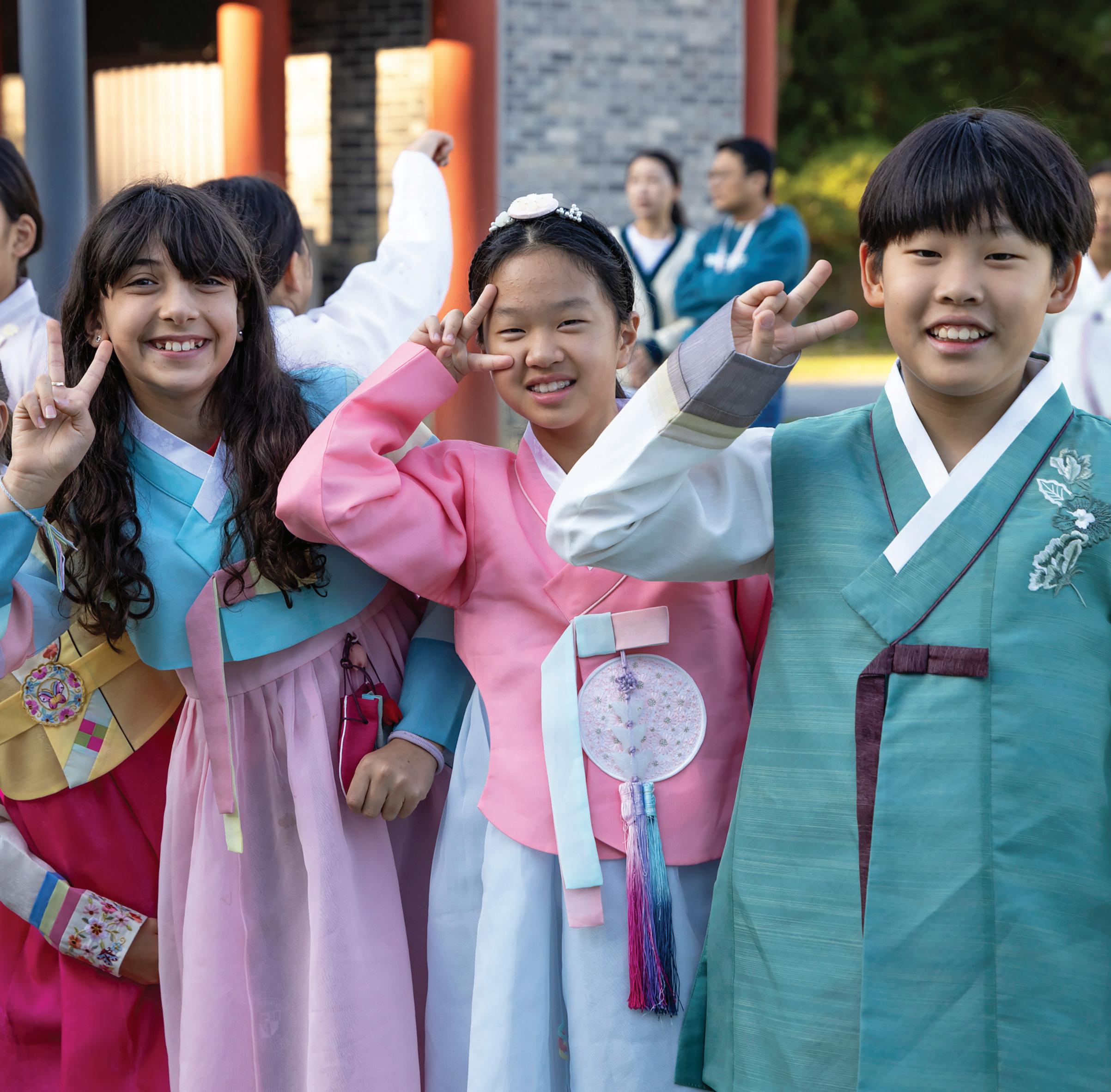
Seoul Foreign School
39 Yeonhui-ro 22-gil Yeonhui-dong, Seodaemun-gu Seoul, South Korea 03723 www.seoulforeign.org
For the digital version of this issue, scan the QR code or visit https://bit.ly/banner2024fall
